Breadcrumb
- Home
- Archive & History
- History
- Notable Middle Templars
Archive & History
- Archive - Information & Access
- Archive of the Month
-
History
- The Knights Templar
- Beginnings & the Medieval Inn
- Middle Temple under the Tudors
- The Seventeenth Century - Fire & War
- The Eighteenth Century - Stagnation and Neglect
- The Nineteenth Century - Revolution and Revitalisation
- The Twentieth Century: Destruction and Renewal
- The Inn Today
- Masters of the Bench – History of the Title
- Notable Middle Templars
- Black Middle Templars: Past and Present
- Oral History Project
- Interactive 3D Historical Tour
Notable Middle Templars
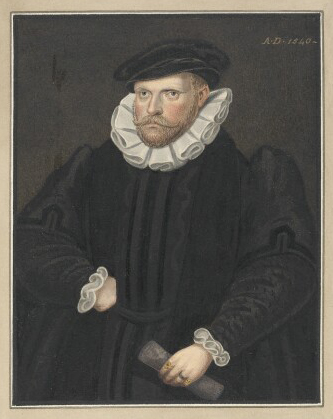
-
Lord Chancellor of England
Richard Rich was born around 1496, and while there is no record of his admission, he was appointed 'Butler for Christmas Time' in 1516 and Reader in 1529. He became Attorney-General for Wales in 1532, Solictor-General to the King in 1533, Speaker of the House of Commons in 1536, and Lord Chancellor in 1547. Rich was an important figure in events of his day - taking part in the prosecutions of Thomas More, Bishop Fisher and Stephen Gardiner, eagerly enforcing the dissolution of the monasteries under Cromwell, and intriguing during the reign of Edward VI. From the accession of Elizabeth I in 1558 he lived largely in retirement, until his death in 1567.
Richard Rich, 1st Baron Rich, attributed to Thomas Athow, after Unknown artist, possibly after Hans Holbein the Younger. Watercolour, early 19th century. NPG D23248 © National Portrait Gallery, London. This image has been cropped and is licenced under a Creative Commons Attribution-NonCommercial-NonDerivs 3.0 Unported Licence. https://creativecommons.org/licenses/by-nc-nd/3.0/legalcode
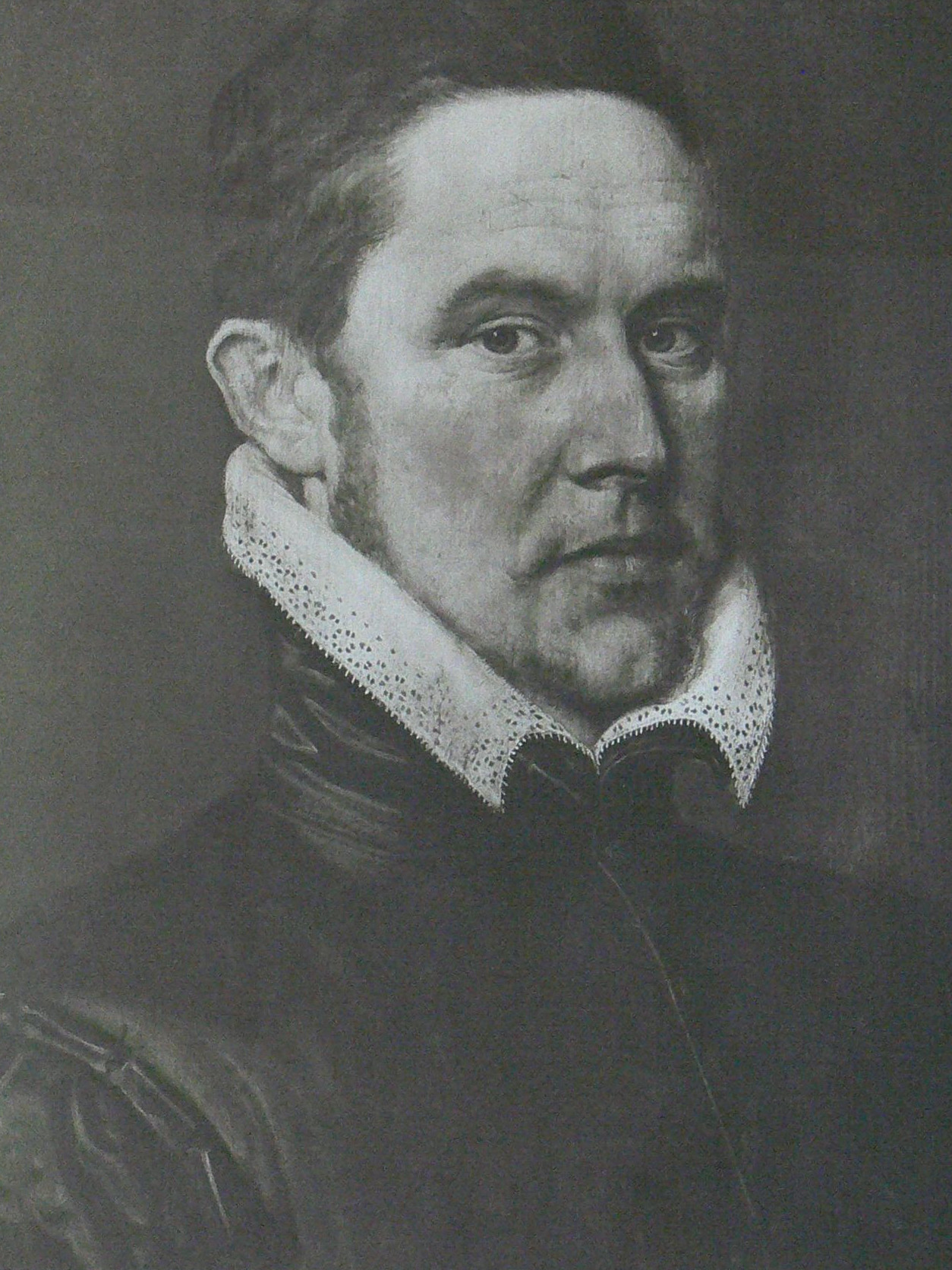
-
Lawyer, legal scholar and theorist
Edmund Plowden is a figure of central importance to the Inn’s history, as well as having been a notable legal figure in his day. Admitted as a student member in the mid-sixteenth century, after studying philosophy and law at Oxford and Cambridge, he went on to a successful career at the Bar. A Roman Catholic in a time when that invited disadvantage and persecution, he became known for defending his co-religionists, and due to his faith was never raised to the judicial bench. A favourite of Queen Elizabeth I, it is said that she offered to make him Lord Keeper if he would change his religion, but that he refused to do so. He was known for his Case Reports, published in 1571. He served as the Inn’s Reader in 1557 and 1560, and as Treasurer from 1561 to 1567. It was during his Treasurership that the construction of Hall began, and he continued to manage the project until its completion in the early 1570s. His contribution to the Society is commemorated by his marble bust at the East end of Hall, and his coat of arms in the stained glass window of the south transept.
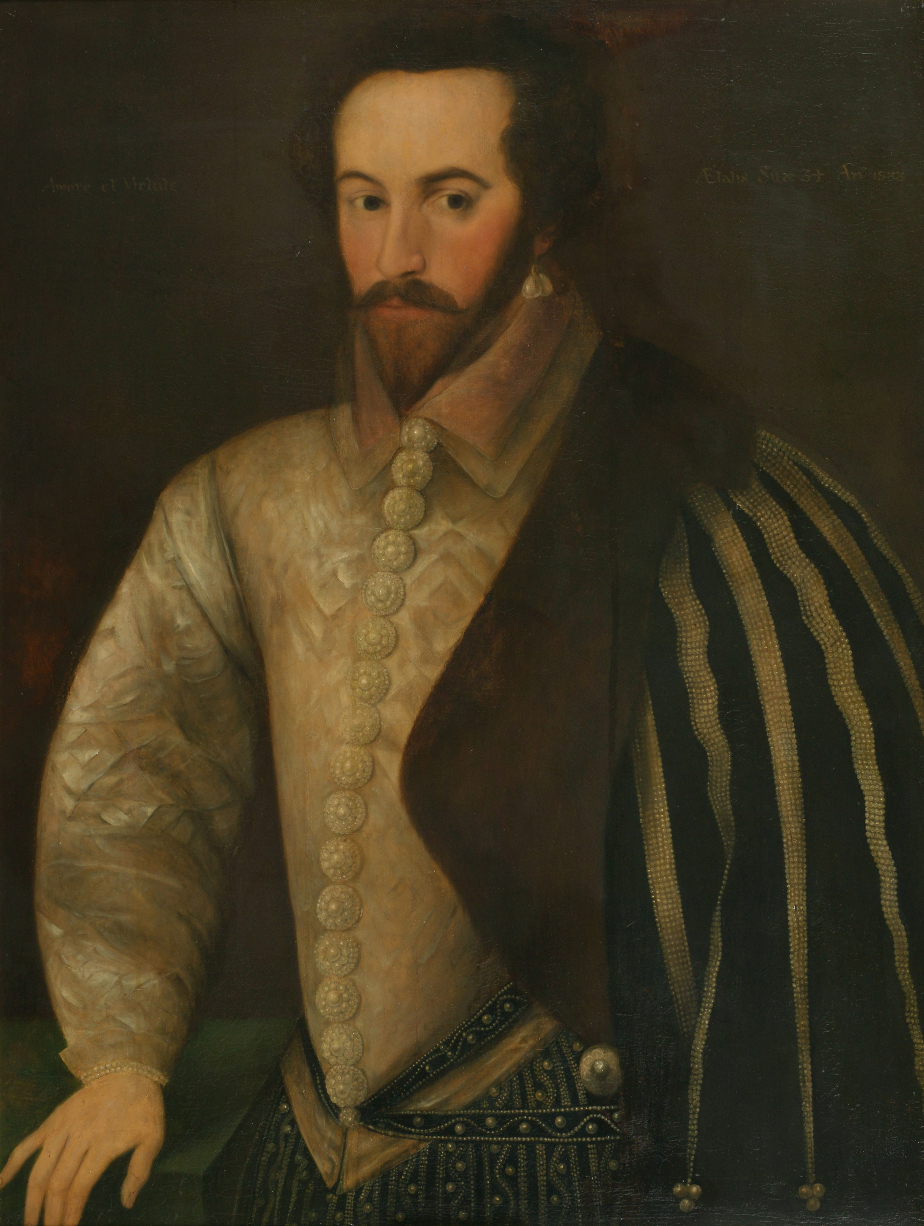
-
Explorer, politician, courtier, writer and spy
Walter Raleigh was born in the 1550s to a Protestant family and after studying at Oxford and Lyons Inn (one of the Inns of Chancery) was admitted to the Middle Temple in 1574/5, though he was never Called to the Bar. He travelled to North America with his half-brother in 1578, drawing the censure of the Privy Council for activity against Spanish shipping. Raleigh fought in Ireland in service of the Queen, later being rewarded with lands seized from Irish rebels, and swiftly became one of her favourites. In 1584, the Queen granted Raleigh a charter authorising him to explore, colonise and rule any "remote, heathen and barbarous lands, countries and territories, not actually possessed of any Christian Prince or inhabited by Christian People," in return for one-fifth of all the gold and silver that might be mined there, and in 1585 he sponsored the foundation of the ill-fated Roanoake colony, paving the way for future English colonisation of the New World. He is credited for the popularisation of the use of tobacco and bringing it to England for the first time in 1586. Falling out of favour with the Queen in 1592, he continued to serve in the military and explore the world, but following the succession of James I was implicated in the Main Plot and imprisoned in the Tower of London until 1616. He was released in 1617 to conduct an expedition to find El Dorado, but following an attack by his men on Spanish territory, the death sentence was at last carried out and he was executed on 29 October 1618.
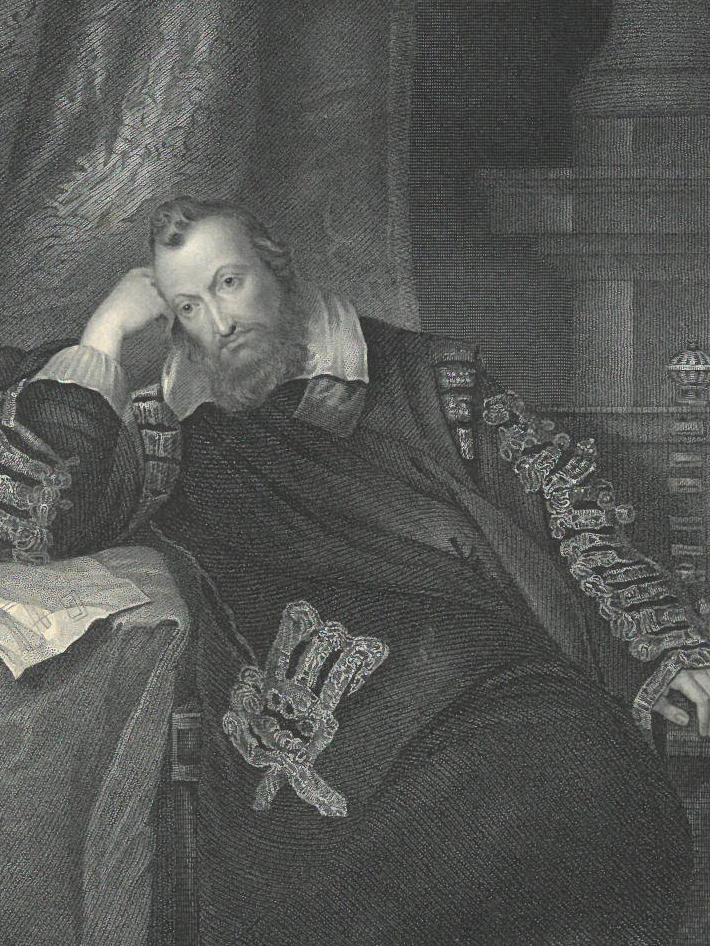
-
Nobleman and alchemist, courtier of Queen Elizabeth I, imprisoned by King James I
Henry Percy was the eldest son of the 8th Earl of Northumberland and succeeded to the Earldom in 1585. He was admitted to the Inn in 1594 on the same day as his younger brother, Sir Charles Percy, though there is no record of his ever having practiced the law. He had a successful military career in the Low Countries and in the defeat of the Spanish Armada, was engaged in scientific and alchemical experiments, and moved in literary circles. Following the accession of James I to the English throne, Percy became implicated in the Gunpowder Plot, owing to the involvement of his second cousin once removed Thomas Percy, and was imprisoned and fined £30,000. He spend seventeen years in the Tower of London, during which he occupied himself in mathematical studies, gaining the sobriquet ‘The Wizard Earl’, and also had a bowling alley installed in his prison tower.
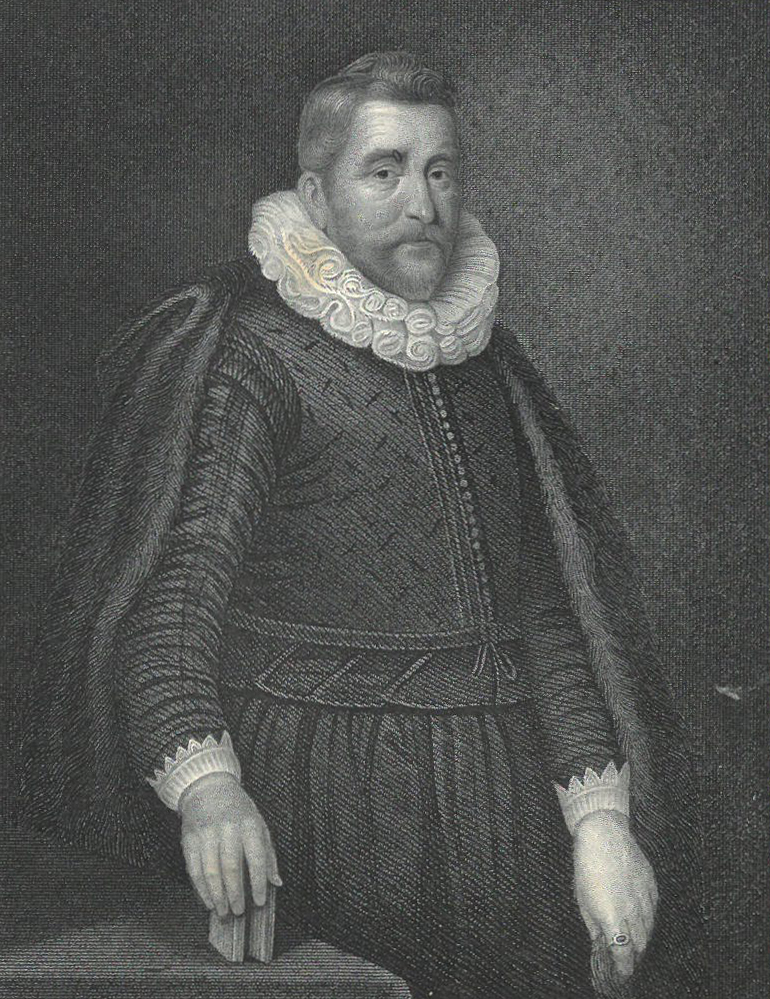
-
Author, diplomat and politician
Born in Kent in 1568, Henry Wotton was educated at Winchester and Oxford, before leaving the country to travel Europe for a number of years. Shortly after his return to England, he was admitted to the Middle Temple, and around the same time became an agent of the Earl of Essex. Following Essex’s downfall, Wotton escaped to the continent, briefly travelling back to Scotland to warn James VI (later James I of England) of a plot against his life. This act paid off when, on James' accession to the English throne, Wotton was knighted and sent as his ambassador to Venice, where he spent the majority of the following twenty years. On returning to England he was made Provost of Eton College, a position which he held until his death in 1639.
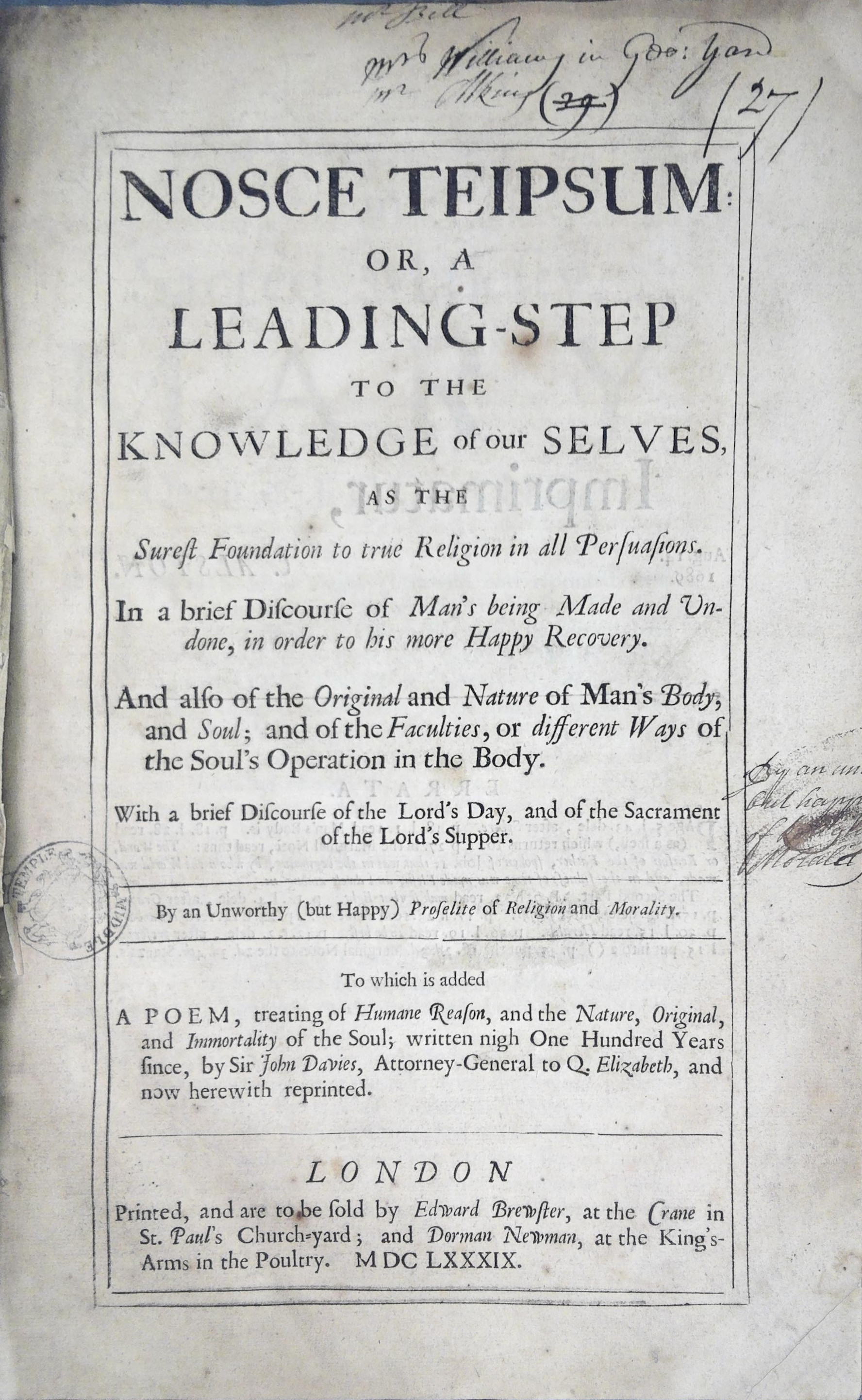
-
Poet, Attorney-General for Ireland and Speaker of the Irish House of Commons
Born in 1569 in Wiltshire and educated at Winchester and Oxford, he was at New Inn (one of the Inns of Chancery) before progressing to the Middle Temple in 1588. Called in 1595, he was involved in several disciplinary matters, culminating in 1598 when he assaulted fellow Middle Templar Richard Martin in Hall with a ‘bastionado’ and escaped the Inn by boat to Oxford, being expelled and disbarred in absentia shortly afterwards. Devoting his time to poetry, writing such notable works as Nosce Teipsum, Hymnes of Astraea, he became a favourite of Queen Elizabeth I and was rehabilitated at the Middle Temple in 1601. He progressed under King James I through a successful legal career, serving as Attorney General for Ireland from 1606 and being appointed Lord Chief Justice of the King’s Bench in 1626, although he died before taking office.
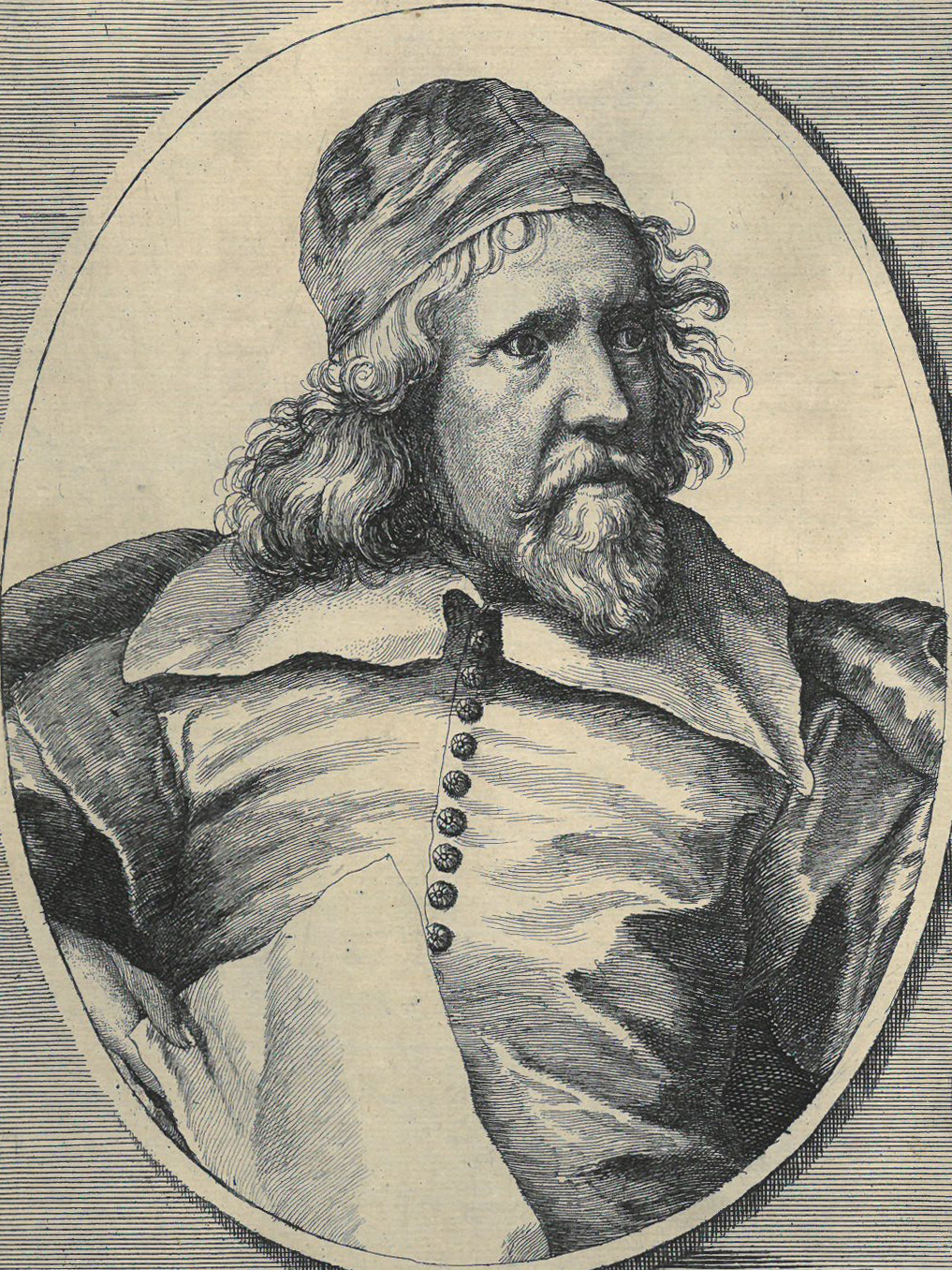
-
Architect
Inigo Jones was born in 1573 to a Welsh clothworker and studied in Italy before working for the King of Denmark. He became a prominent stage designer, working closely with Ben Jonson, and was particularly influenced by the ideas of Palladio and Vitruvius. He was admitted to the Inn in February 1613, having designed the scenery and decorations for a masque held jointly by the Middle Temple and Lincoln's Inn to celebrate the marriage of Princess Elizabeth to Frederick V, Count Palatine of the Rhine. Following a formative tour of Italy starting in 1613, he was appointed Surveyor-General of the King's Works, and in the course of his glittering career was responsible for designing the Banqueting House in the Palace of Whitehall, the Queen's Chapel at St James's Palace, Covent Garden Square and Lincoln's Inn Fields. His career did not survive the outbreak of the Civil War, and he died in 1652.
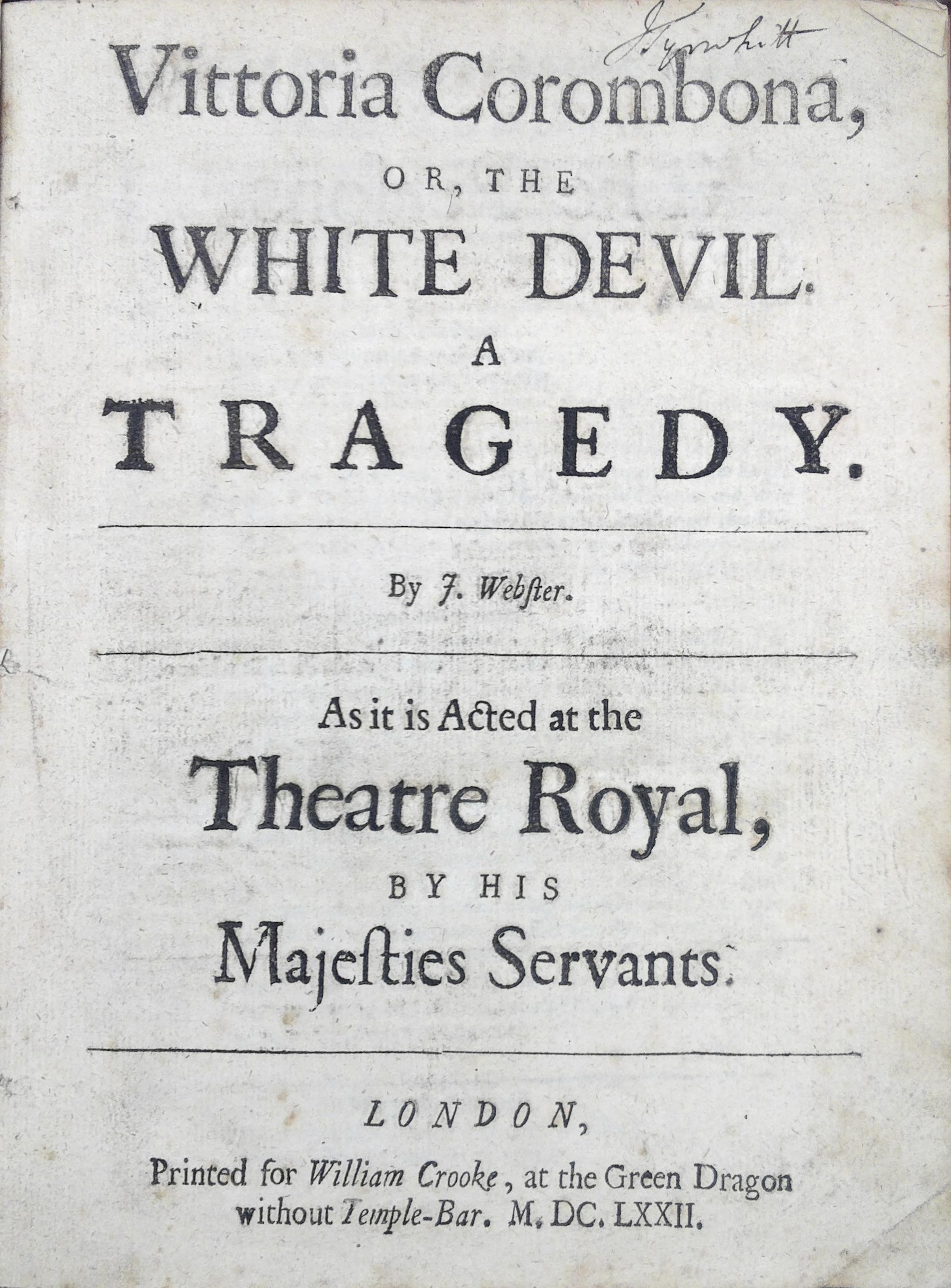
-
Playwright and poet
Webster was born in London around 1580, and educated at Merchant Taylors’ School. The prominent portrayal of the legal system in his work, and his links to other members of the Inns of Court, is the basis for the conclusion that he was the John Webster admitted to the Middle Temple in 1598. He was collaborating on theatrical works by 1602, and his best-known plays, The White Devil and The Duchess of Malfi, were staged in 1612 and 1614 respectively.
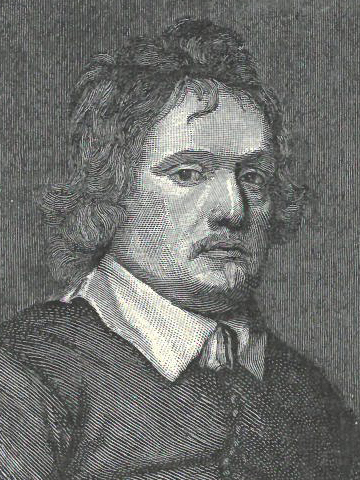
-
Republican statesman
John Pym was born in Somerset in 1584 and was admitted to the Inn in 1602 after legal education at Oxford, though he does not appear to have been Called. He became a Member of Parliament in 1614, and in 1626 was instrumental in drawing up the articles of impeachment against the Duke of Buckingham. Pym conducted the proceedings against the Earl of Strafford and Archbishop Laud in 1640 and 1641, two events which contributed to the King's abortive attempt to arrest him and four other members of Parliament in 1642, an event which triggered the outbreak of the English Civil War. He was appointed Lieutenant of the Ordnance early in the war but died not long after in December 1643.
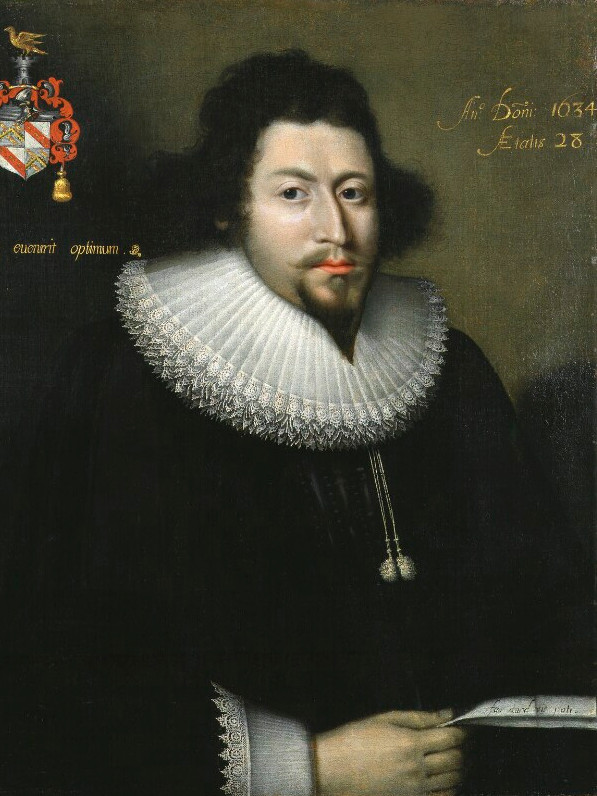
-
Lawyer, writer, Parliamentarian, Lord Keeper of the Great Seal of England during the Commonwealth
Bulstrode Whitelocke was born in 1605 and was admitted to the Middle Temple in 1619. He was Called in 1626, serving as Treasurer shortly afterwards in 1628. In 1633, the Inns of Court placed him in charge of the music for The Triumph of Peace, the great masque they jointly staged at Whitehall Palace for the King and Queen. Whitelocke was elected an MP in 1626, and later took Parliament's side in the Civil War. He played a role in negotiations with Charles I throughout the war, and was made a Commissioner of the new Great Seal on the establishment of the Commonwealth, a position he held until 1654 and lost following his resistance to certain reforms of Cromwell's. During the Restoration he was treated reasonably well due to his moderation, pragmatism and honour, and was allowed to retire quietly with most of his property intact. He died in seclusion in 1675.
Bulstrode Whitelocke by Unknown artist. Oil on canvas, 1634. NPG 4499 © National Portrait Gallery, London. This image has been cropped and is licenced under a Creative Commons Attribution-NonCommercial-NonDerivs 3.0 Unported Licence. https://creativecommons.org/licenses/by-nc-nd/3.0/legalcode
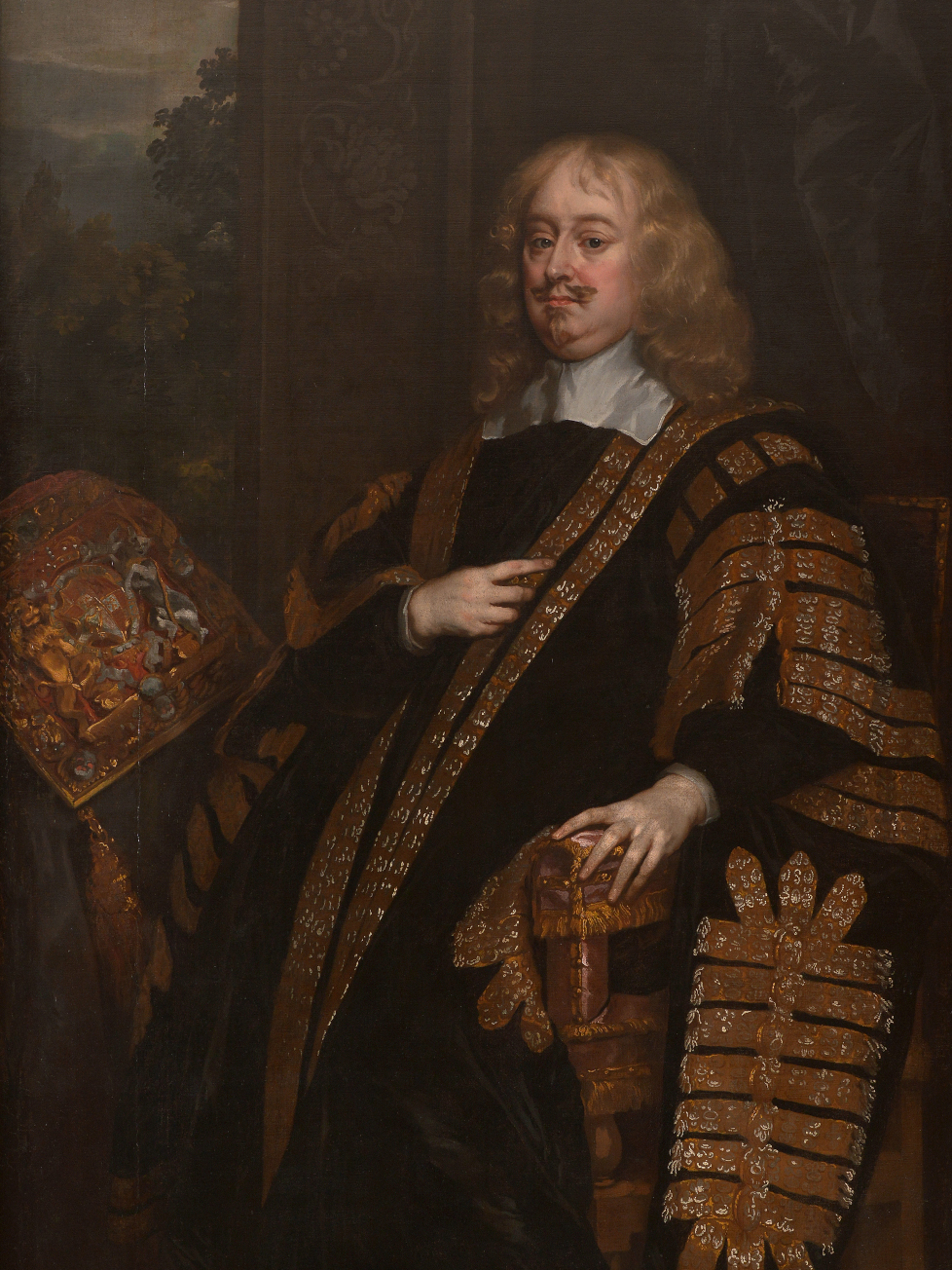
-
Statesman, Lord Chancellor of England and historian
Edward Hyde was born in 1609, the nephew of Sir Lawrence Hyde, Attorney General and also a Middle Templar. After studying at Oxford, he was admitted to the Inn in 1626, though he was not Called to the Bar until 1633, having preferred to immerse himself in a community of scholarly and literary friends including Ben Jonson and John Selden. After several successful years at the Bar, Hyde was elected an MP in 1640, growing gradually closer to the King and joining the Royalist side on the outbreak of the English Civil War in 1642. Going into exile with the Prince of Wales, he soon found himself a close advisor to the future King and was made Lord Chancellor in 1658. Following the Restoration, Hyde continued to play a prominent political role, and saw his daughter married to the King's brother, the future James II, but by the mid-1660s his star had waned. He was impeached by the Commons and forced into exile in 1667 and died in France in 1674, having completed his magisterial History of the Rebellion and Civil Wars in England. Both of his granddaughters, Mary and Anne, would go on to be queens of England.
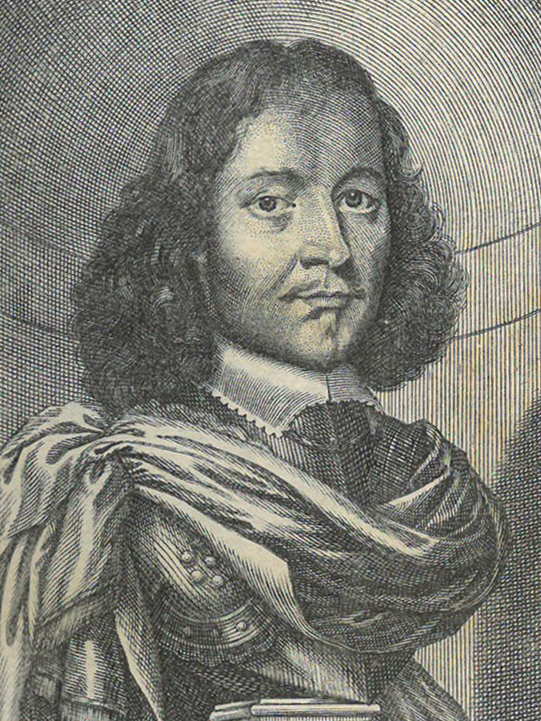
-
Antiquary, politician, officer of arms, astrologer and alchemist
Ashmole was born in Lichfield in 1617 and qualified as a solicitor in 1638, beginning a successful practice. A Royalist, he left London on the outbreak of the Civil War and served the King in various positions until 1646. He spent the 1650s in the study of alchemy, antiquities and heraldry and in the production of catalogues. Ashmole was admitted to the Inn in November 1657 and was Called to the Bar in 1660. He was invited to the Bench, an honour which he declined. Following the Restoration of the Monarchy, Ashmole was appointed Windsor Herald, Comptroller-General and later an Accountant-General of the Excise. These lucrative positions enabled his assembly of a considerable collection of antiquities, books, prints, plants and other curiosities. Much of this collection went on to form the basis of Ashmolean Museum in Oxford, completed in 1683, though a significant part of it was destroyed in the Middle Temple fire in January 1679.
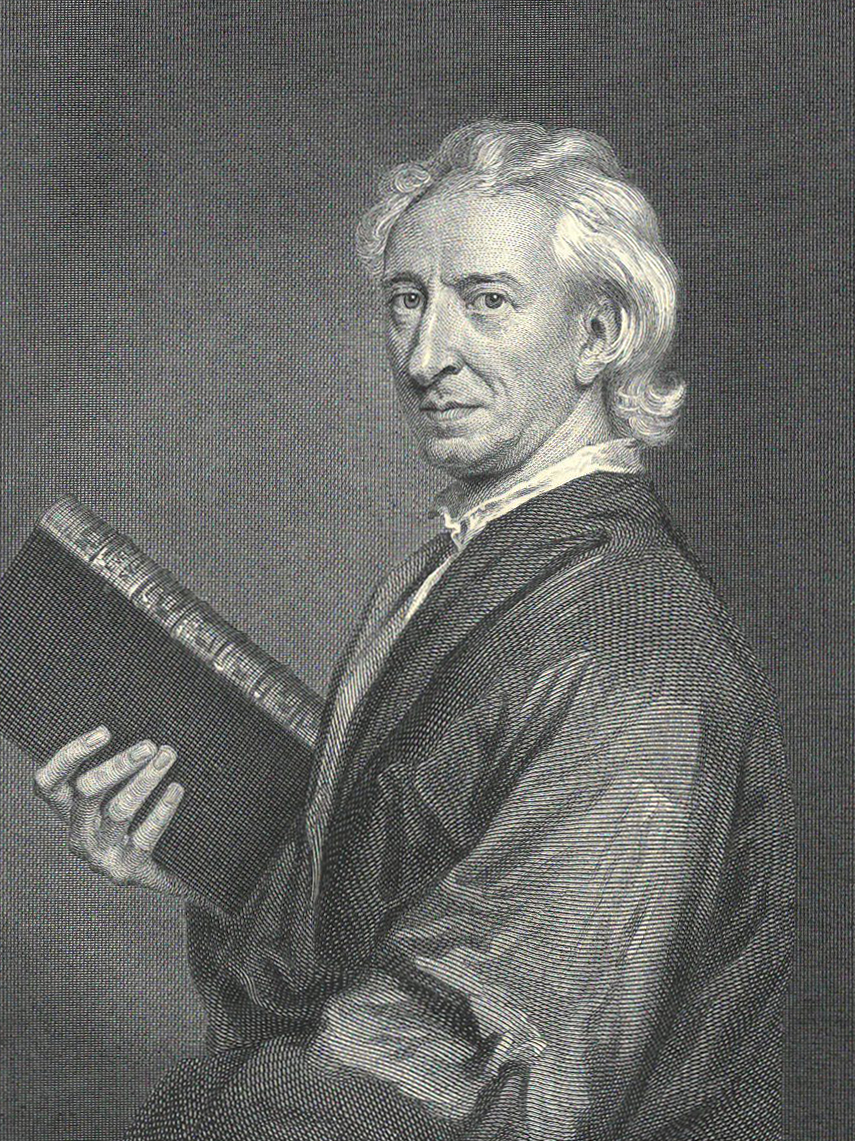
-
Writer, gardener and diarist
John Evelyn was born in 1620, and after an education at Oxford took up residence in the Temple. He was elected in 1642 one of the Comptrollers of the Temple-Revellers, but was overtaken by events and, on the outbreak of the Civil War, was excused this duty to go into the country, being a staunch Royalist. After spending ten years travelling and studying on the continent, he returned to England and lived quietly until the Restoration of the Monarchy, after which he held various offices at court. A polymath, Evelyn was one of the founders of the Royal Society and wrote books on a vast range of topics including horticulture, theology and air pollution. His diaries are an important source for the history of his times, running from his student days at the Inn to the time of his death in 1706. He memorably describes the Inn's Revels as 'an old, but riotous custom' with 'relation to neither Virtue nor policy', and Sir Henry Peckham's Reader's Feast as 'a pompous entertainment'.
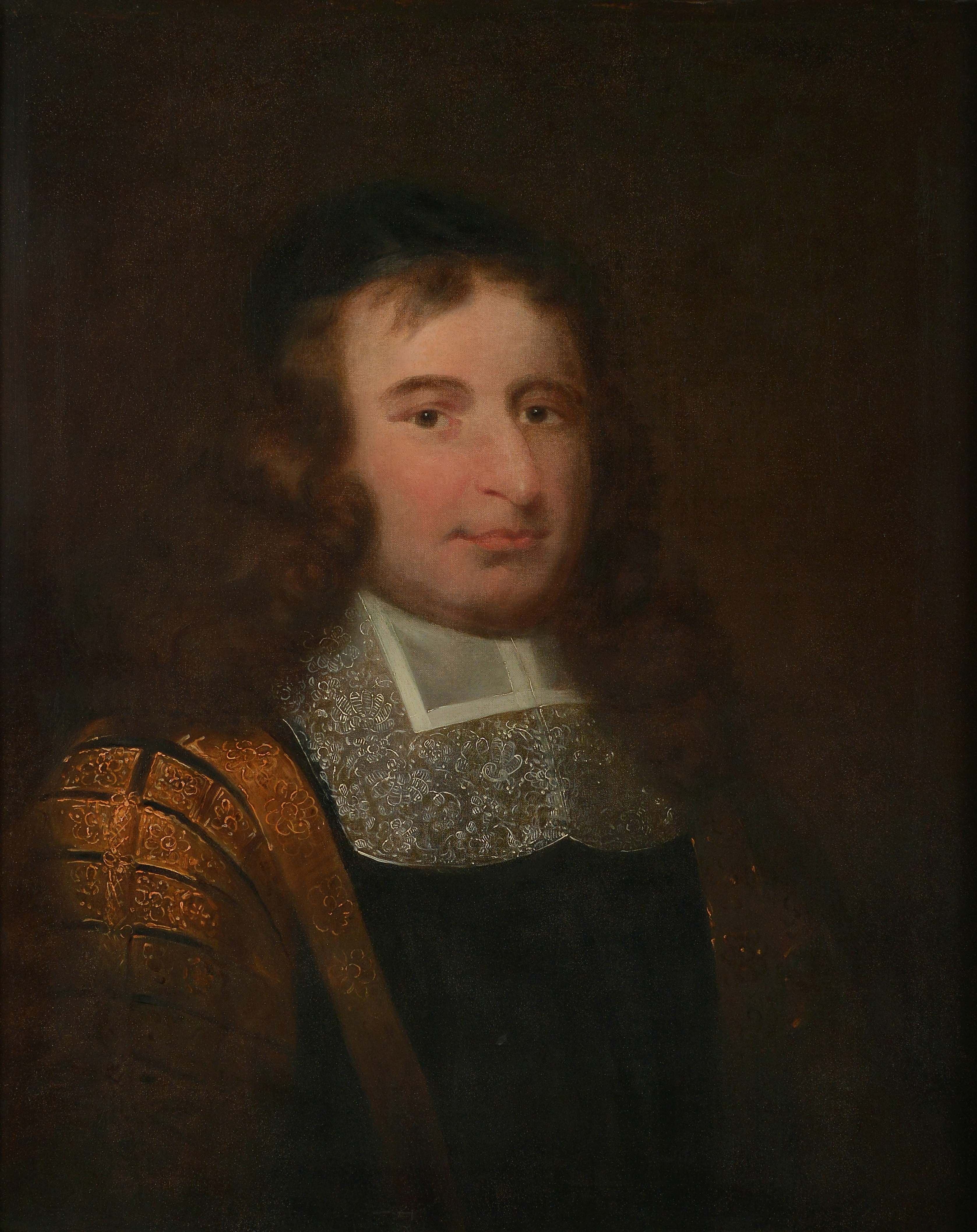
-
Lord Keeper of the Great Seal of England and Great Britain
Francis North was educated at St John’s College, Cambridge and was admitted to the Inn in 1655, being Called to the Bar in 1661. He had an eminent career in the law, being made a KC in 1668 at the tender age of 31, at which point he was made a Bencher of the Inn. His Reader’s Feast in 1671 was described by his brother Roger as one of ‘debauchery, disorder and waste’. He was appointed Solicitor General in 1671, Attorney General in 1673, and was made a member of the Privy Council Ministry in 1679. On its dissolution, he was made a member of the Cabinet. In 1683 he was created Baron Guilford after becoming Lord Keeper of the Privy Seal. He was a staunch Royalist and a strong supporter of the Royal Prerogative, and sat as a judge at some of the Popish Plot trials. He died unexpectedly at Wroxton Abbey, his country house, in 1685.
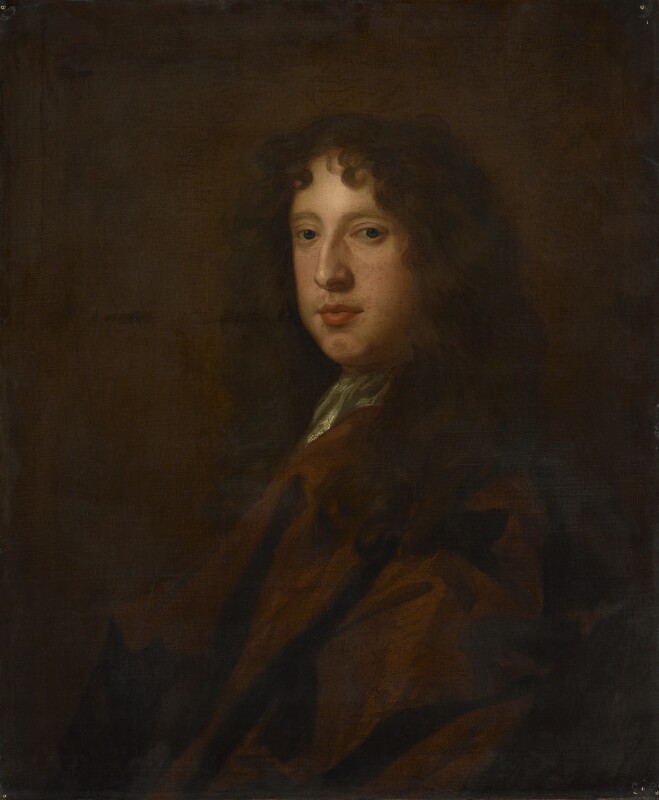
-
Lawyer, biographer and musician
The youngest son of Dudley, fourth Lord North, and younger brother to Francis, later Lord Guildford, Roger was born in Suffolk in 1653. Called to the Bar by the Inn in 1674, he was appointed Lent Reader in 1682 and Treasurer in 1683 at the age of just thirty. Solicitor-General to the Duke of York (later James II) from 1684, and MP for Dunwich from 1685, his star waned after the Glorious Revolution and he retired to his estate at Rougham in Suffolk. He is better known today as a prolific collector of books and for his many writings, including A Discourse of Fish and Fish Ponds, Memoirs of Musick, A Discourse on the Study of the Laws, and the biographical Lives of the Norths, which remain a valuable resource today for the history of his period, including a vivid account of the Middle Temple Fire of 1679.
Roger North after Sir Peter Lely. Oil on canvas, based on a work of 1680. NPG 766 © National Portrait Gallery, London.
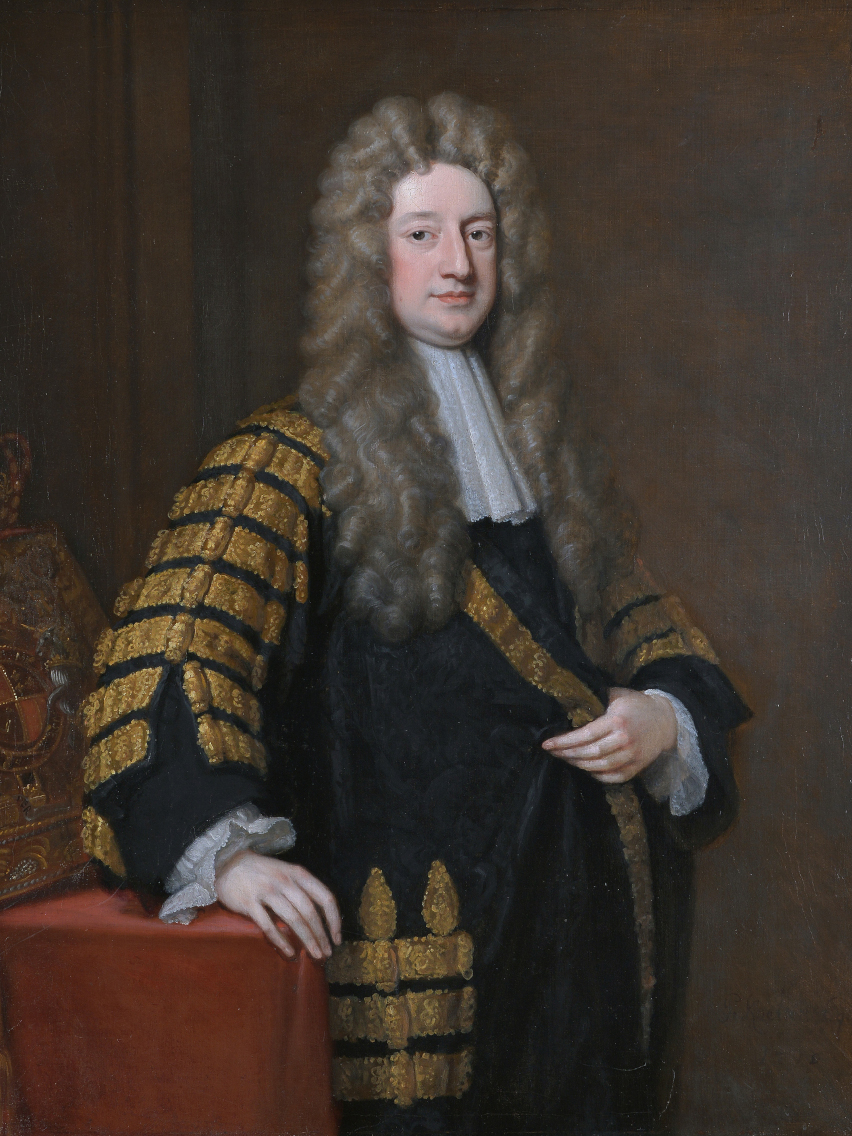
-
First Lord High Chancellor of Great Britain
Born the son of Sir William Cowper of Hertford Castle, William Cowper was admitted to the Inn in March 1681-2 and after being Called in 1688 rose rapidly through the profession, becoming a KC in 1694. The following year he was elected a Member of Parliament and became a significant Whig voice in the Commons. Becoming Lord Keeper and a Privy Councillor in 1705, Cowper played an important role in the Union of England and Scotland and was subsequently made the first Lord High Chancellor of Great Britain.
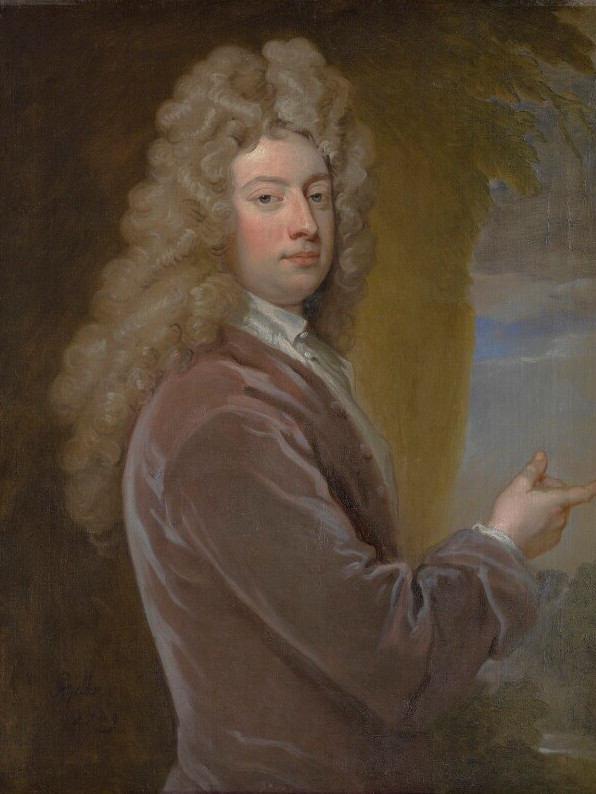
-
Playwright and poet, friend of Swift and Dryden
Born in Yorkshire in 1670, Congreve spent most of his childhood in Ireland. After being educated at Kilkenny College and Trinity College Dublin, he moved to London and was admitted to the Middle Temple in 1690/1 with the intention of studying the law. He soon drifted away from the law into the literary world, attending gatherings in coffee houses and associating with John Dryden. Congreve enjoyed a period of considerable success as a playwright in the last years of the eighteenth century before changing public tastes and morality saw his popularity wane. He continued to write poetry and translate the classical authors and became involved for a time in Whig politics.
William Congreve by Sir Godfrey Kneller, Bt. Oil on canvas, 1709. NPG 3199 © National Portrait Gallery, London. This image has been cropped and is licenced under a Creative Commons Attribution-NonCommercial-NonDerivs 3.0 Unported Licence. https://creativecommons.org/licenses/by-nc-nd/3.0/legalcode
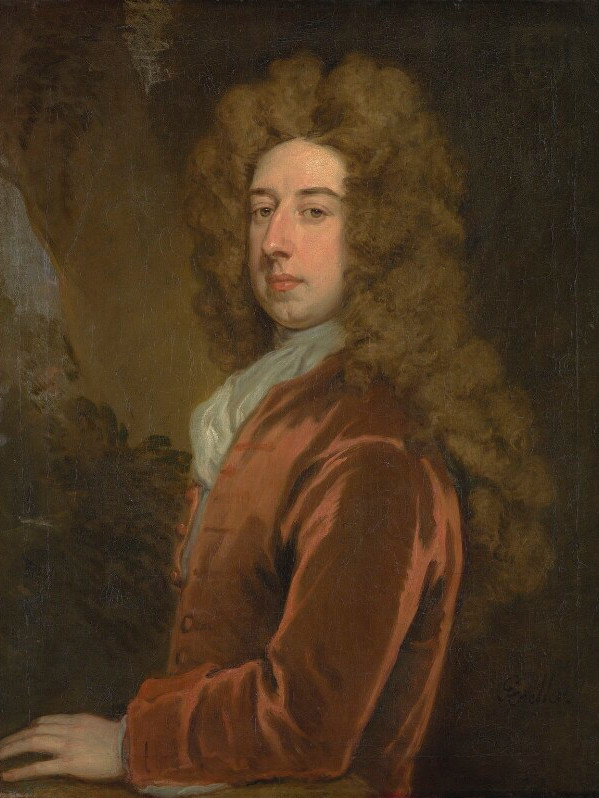
-
Statesman and Prime Minister of the Kingdom of Great Britain
After studying at St Paul's and Trinity College Oxford, Spencer Compton, third son of the 3rd Earl of Northampton, was admitted to the Middle Temple in 1687. Elected to Parliament as the member for Eye in 1698, he soon became a prominent Whig, and associated with Robert Walpole, traditionally said to the be the first Prime Minister of Great Britain. He went on to serve Speaker of the House of Commons from 1715 to 1727 and was appointed Lord Privy Seal in Walpole's government in 1725. Compton was created Baron Wilmington in 1728 in an attempt on Walpole's part to remove him from the Commons. In 1730 he was created Earl of Wilmington and was appointed Lord President of the Council. After twelve years in this office he succeeded Walpole as Prime Minister but died a year and a half later. The American cities of Wilmington in (Delaware and North Carolina), the towns of Wilmington (Massachusetts and Vermont), and the neighbourhood of Wilmington in Los Angeles are named in his honour.
Spencer Compton, Earl of Wilmington by Sir Godfrey Kneller, Bt. Oil on canvas, circa 1710. 36 in. x 28 in. (914 mm x 711 mm) Given by the Art Fund, 1945. Primary Collection. NPG 3234 © National Portrait Gallery, London. This image has been cropped and is licenced under a Creative Commons Attribution-NonCommercial-NonDerivs 3.0 Unported Licence. https://creativecommons.org/licenses/by-nc-nd/3.0/legalcode
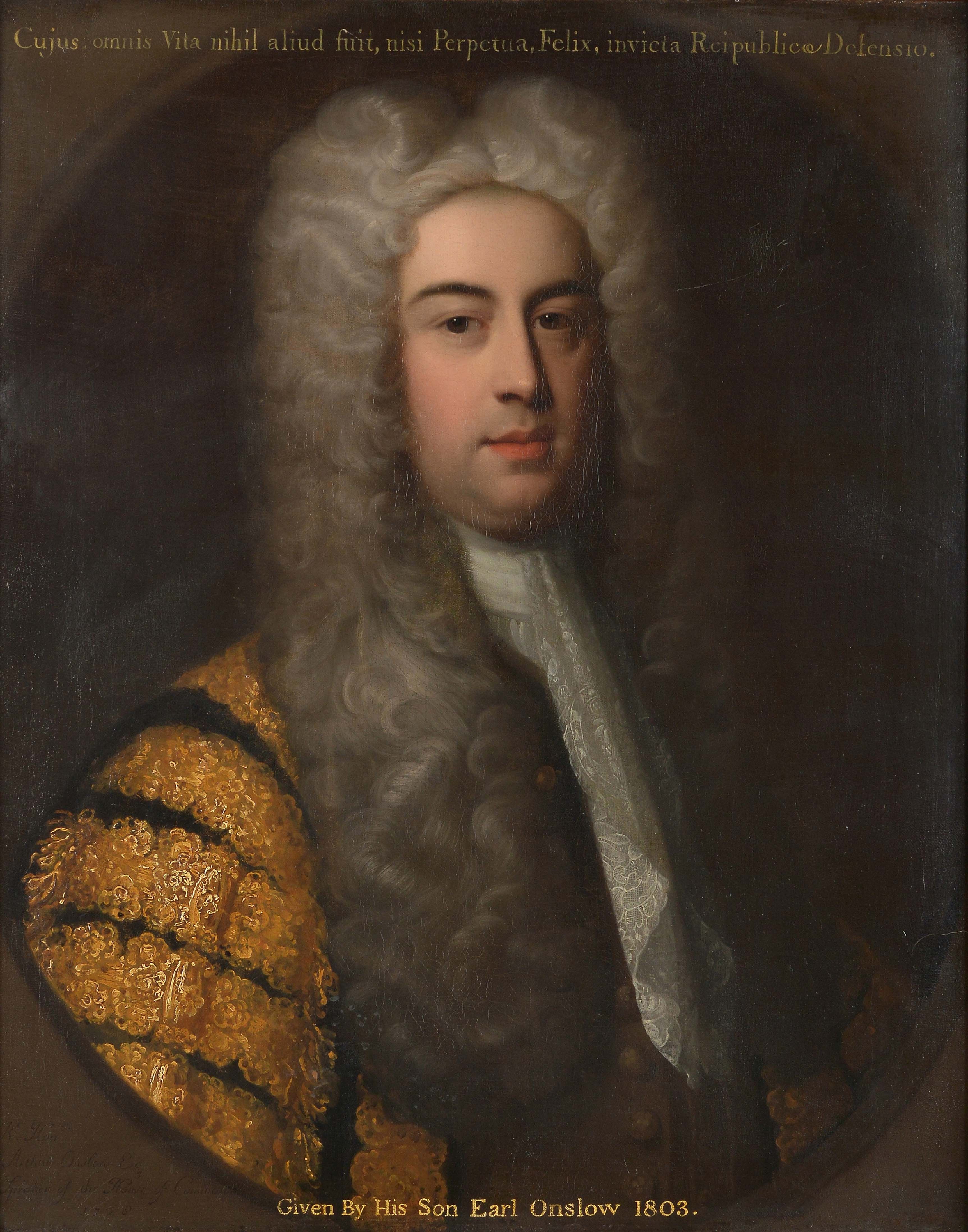
-
Speaker of the House of Commons of Great Britain
The longest serving Speaker of the House of Commons, Onslow served for 33 years, a tenure described as ‘distinguished by talents of the highest order, the most refined dignity, and a zealous watchfulness of the liberties and privileges of Parliament’. Born in 1691 and Called to the Bar at the Middle Temple in 1713, he was elected MP for Guildford in 1720 and then for Surrey in 1727. Elected Speaker in 1728, he was notable for his active and energetic defence of the rights of MPs and staunch observation of procedure. In 1753 persuaded Parliament to fund the acquisition of the Sloane collection and Harleian Library, collections which formed the nucleus of the British Museum. He served until his retirement in 1761.
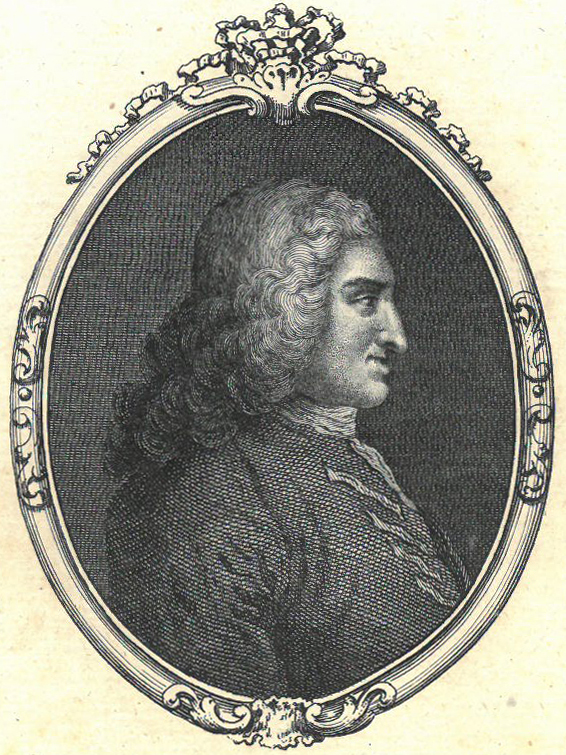
-
Novelist
Born in 1707 and educated in England and Leiden, Fielding started writing satirical dramas for the theatre in the late 1720s, but retired following the Theatrical Licensing Act of 1737 which limited the possibilities of this sort of work, and gained admission to the Inn in November of that year. Turning to the law as a way of supporting his wife and children, he was Called to the Bar in 1740 and practiced as a barrister. He took to writing novels in the 1740s, the most famous of which was Tom Jones. He also found time to be London's chief magistrate, in which position he founded the Bow Street Runners, said to be London's first police force, in 1749, and published numerous pamphlets on juridicial and humanitarian matters.
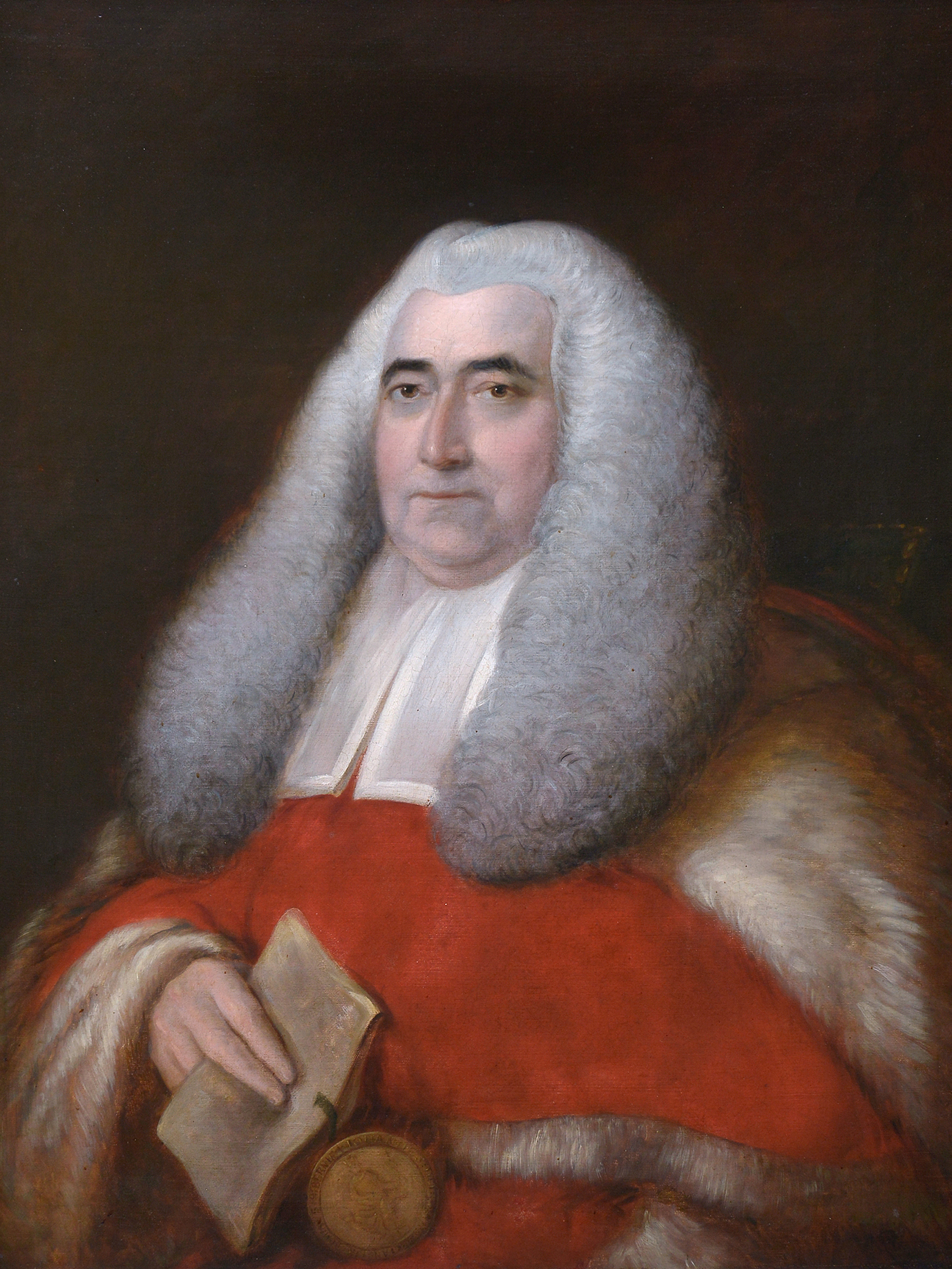
-
Jurist, judge and politician, author of The Commentaries on the Laws of England
William Blackstone was born in Cheapside in 1723 and was admitted to Charterhouse on the nomination of Sir Robert Walpole. At Oxford he studied Greek and Latin literature and architecture, but on admission to the Middle Temple in 1741 he devoted himself solely to the study of the law, being Called to the Bar in 1746. After involving himself in University administration back at Oxford, Blackstone began a course of lectures in 1753, which became immensely popular. He started publishing legal texts in 1756 and after seven years as Oxford's Vinerian Professor of English Law, published his masterly The Commentaries on the Laws of England in 1765, a work which made the common law readable and accessible for the first time and was required reading for students for decades to come. He was an opponent of slavery, stating that he believed it to be ‘repugnant to reason, and the principles of natural law’. He became a Serjeant-at-Law and Justice of the Common Pleas in 1770 and died in 1780.
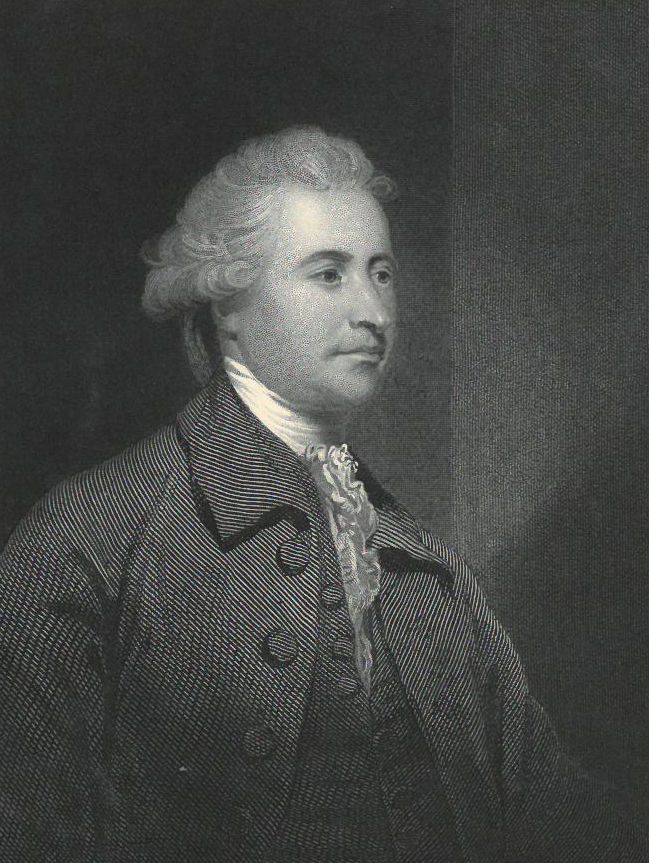
-
Statesman and man of letters
Edmund Burke, born in Dublin in 1729, is sometimes considered the father of modern British Conservatism. After graduating from Trinity College, Dublin, he travelled to London to take up the study of law, gaining admission to the Middle Temple. It was not long, however, until he abandoned his legal studies and set off to travel Europe. He began to publish philosophical and historical works and founded a political journal. Elected a Member of Parliament in 1765, Burke began a long career in the Commons. Over 1774 and 1775, he gave a number of speeches in support of the American Colonies and their grievances, appealing repeatedly for peace. In 1790, he published an influential pamphlet reflecting upon and criticising the French Revolution and died in 1797 at the age of 68.
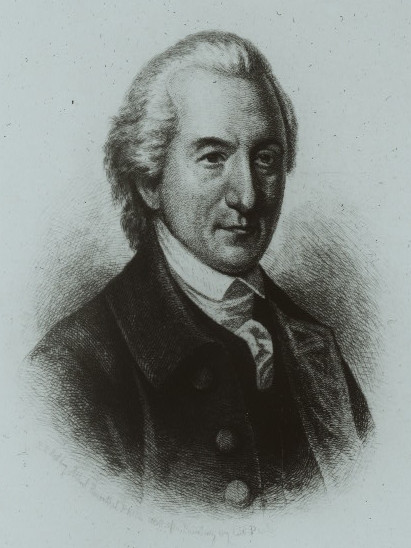
-
US Founding Father and 'Penman of the Revolution'
Born in Maryland in 1732 to a family of tobacco planters, John Dickinson studied law in Pennsylvania before travelling to London in 1753, where he was admitted to the Middle Temple, and returned in 1757 to practice at the Pennsylvania Bar. He was a delegate to the First and Second Continental Congresses in the 1770s, but was opposed to declaring independence in 1776, refusing to sign the Declaration once it was made. Dickinson was notable for freeing his slaves in 1777 and drafting the articles of Confederation. He served as President of Delaware and then of Pennsylvania and was instrumental in the drafting of the United States Constitution in the 1780s and 1790s.
© The New York Public Library
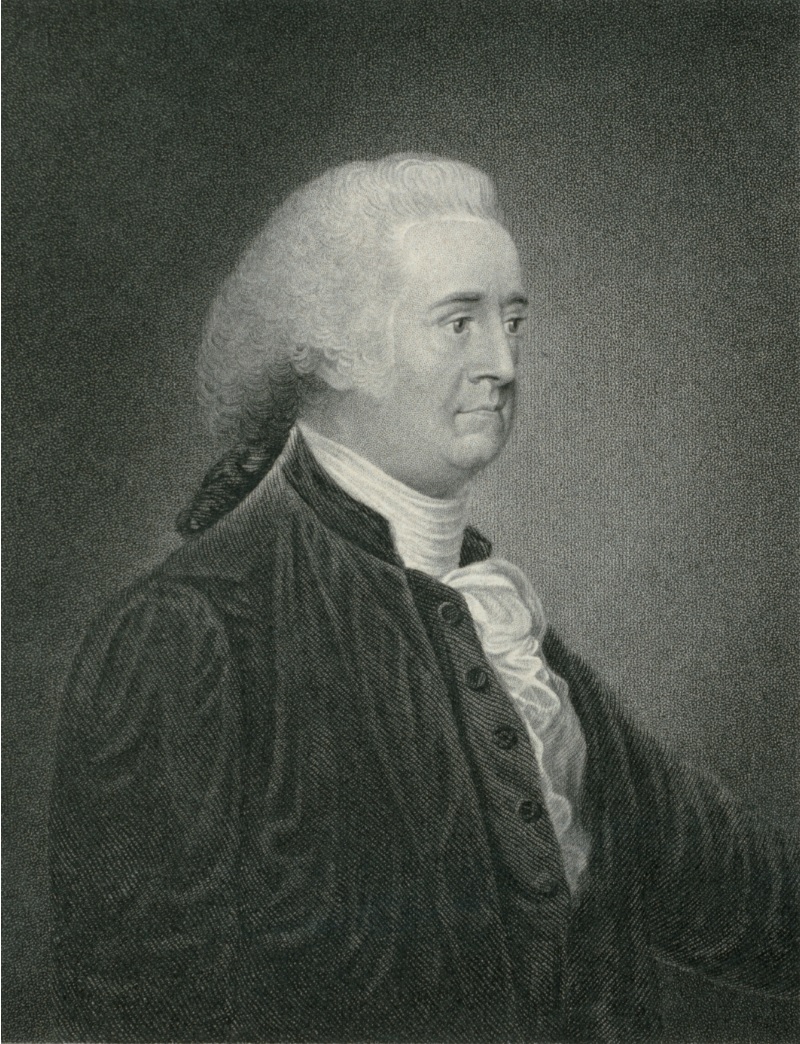
-
2nd Chief Justice of the United States of America, President and Governor of South Carolina
Born in Charleston, South Carolina in 1739, Rutledge was admitted to the Inn in 1754 and Called to the Bar in 1760, returning to South Carolina to begin a successful and lucrative career in the law. Elected to the first Continental Congress in 1774, he was elected President of South Carolina in 1776 and oversaw the defence of Charleston against British attack, later becoming Governor of the state under a revised constitution. His younger brother, Edward, was also a Middle Templar and one of the signatories of the Declaration of Independence.
After the Revolutionary War, he represented South Carolina at the first Constitutional Convention and was instrumental in drafting the Constitution, convincing the convention against the abolition of slavery (he himself owned sixty enslaved people at the outbreak of the Revolution). He later served in the newly constituted Supreme Court, and in 1795 Washington nominated him the second Chief Justice of the United States, but his nomination was rejected by the Senate.
© The New York Public Library
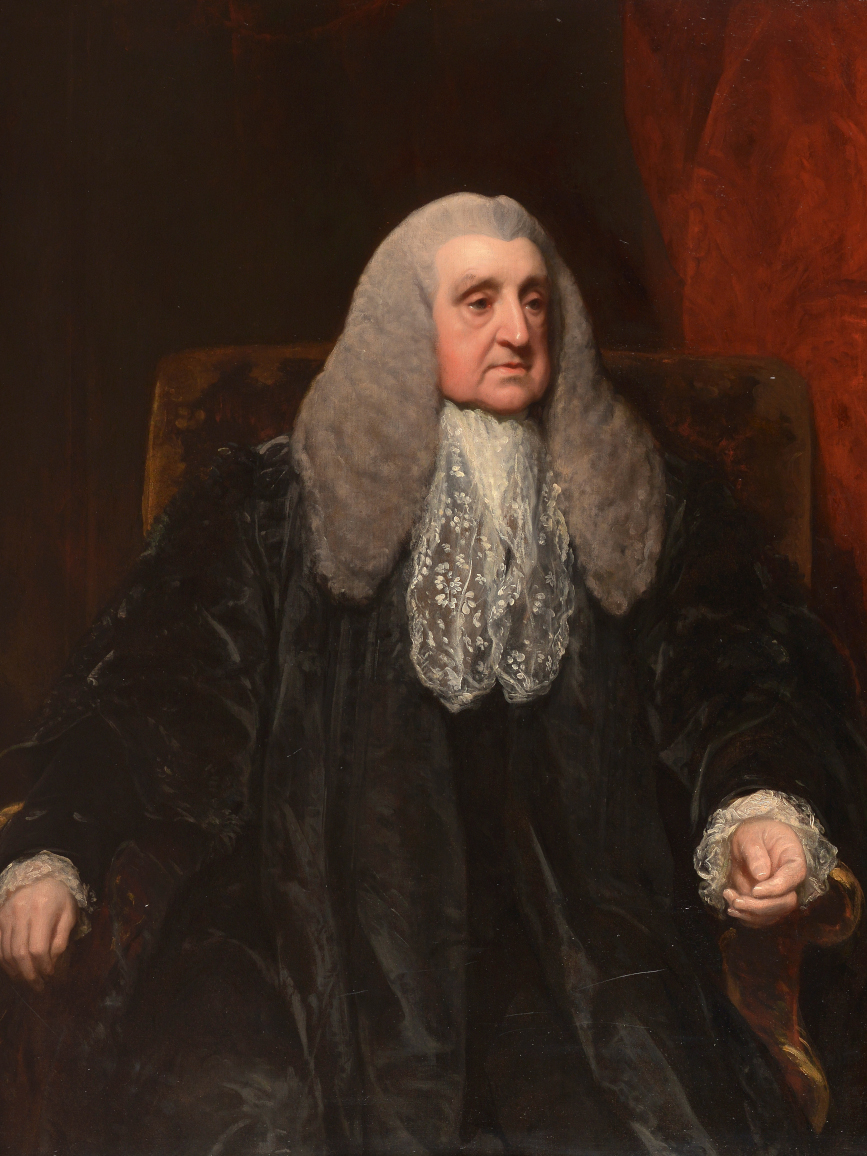
-
Judge of High Court of Admiralty and jurist
William Scott was born in Durham in 1745. His father was an ironmonger and his mother had fled Newcastle on the approach of Scottish rebels. After an education at Newcastle Grammar School and Oxford, he was Called to the Bar at the Inn in 1780. Rising quickly through the profession, he was appointed King's Advocate-General in 1787 and Judge of the Consistory Court in London in 1788. In 1798, Scott became Judge of the High Court of Admiralty, where he made his name and heard two particularly notable cases relating to the abolition of the slave trade. He also served as member of Parliament for the University of Oxford from 1801 to 1821 and was raised to the peerage in 1821. He retired from the Admiralty Court in 1828. Scott was Reader at the Inn in 1799, and its Treasurer in 1807. He was an abolitionist but upheld the letter of international law in regarding actions taken to supress the slave trade and advocated for remedies through international treaties. He was the elder brother of John Scott, 1st Earl of Eldon.
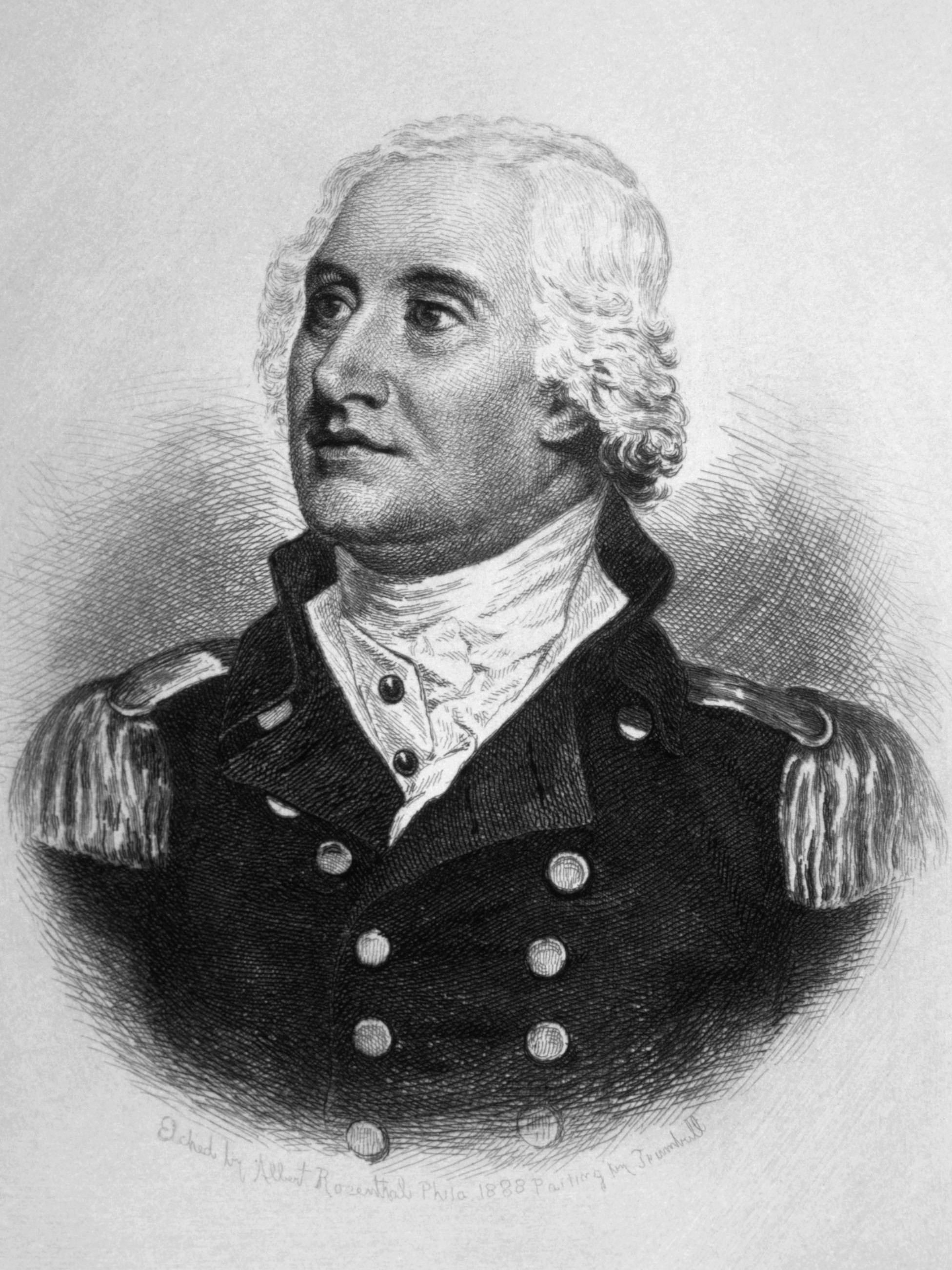
-
American statesman and revolutionary
Elder brother of Thomas Pinckney, Charles was born in Charleston, and travelled to Great Britain with his family at a young age. Following a spell at Oxford, he was admitted to the Inn in 1764, and Called to the Bar in 1769. Records survive in the Inn's Archive of his participation in exercises as a student. He returned to South Carolina a few years later and combined legal practice with involvement in colonial politics. On the outbreak of war, Pinckney joined the Revolutionary cause and took part in a number of significant engagements. These included the Siege of Savannah, the Battle of Brandywine and the defence of Charleston, the latter of which saw him taken prisoner by the British. Following the war, he returned to politics, standing (unsuccessfully) for President in 1804 and in 1808 as the Federalist candidate. A slave owner throughout his life, he opposed Rutledge’s attempts to end the importation of slaves on the basis of the reliance of the South Carolinan economy on slavery. He supported the abolition of the slave trade in 1808 but was opposed to emancipation.
© Shutterstock.com
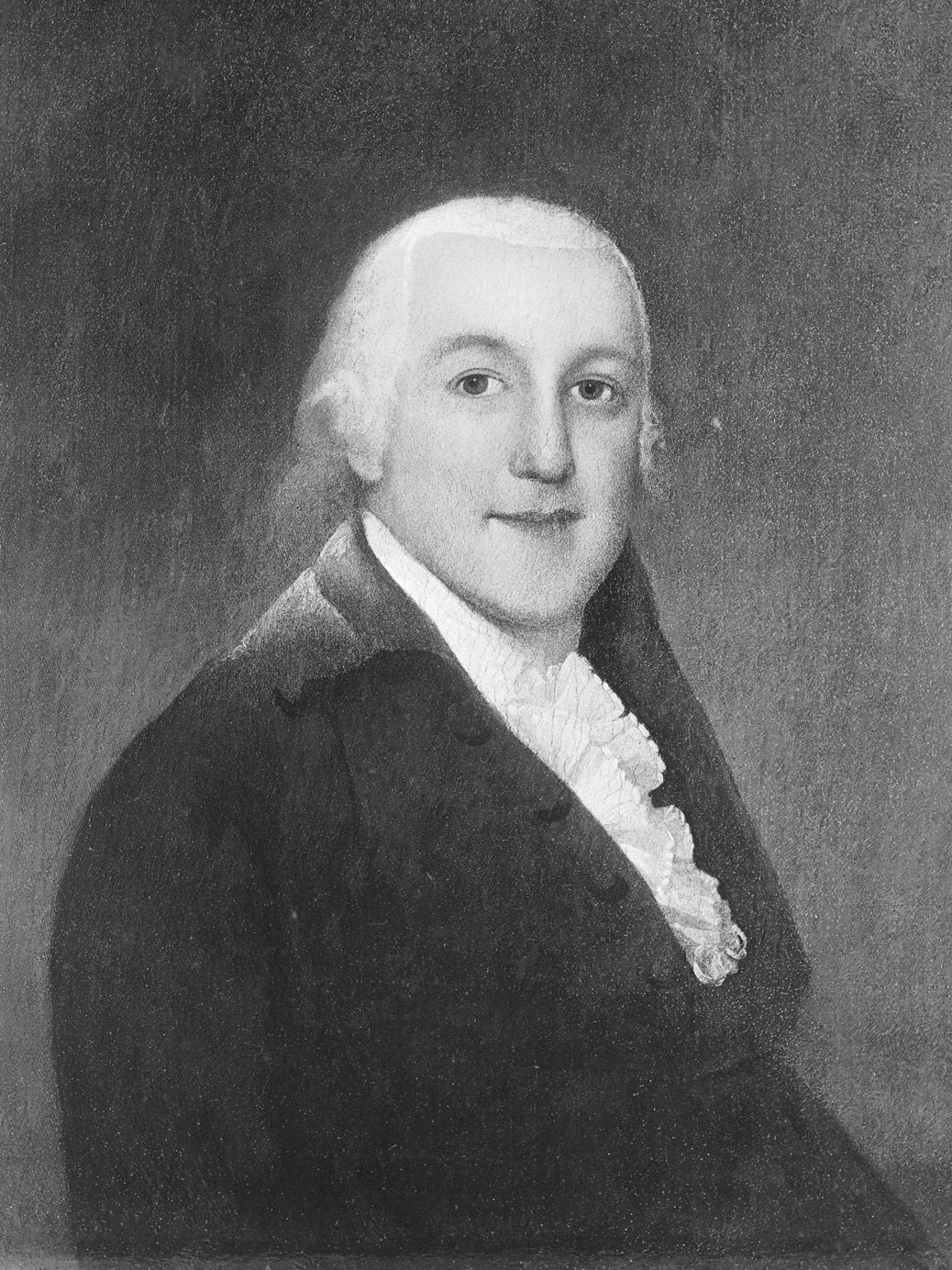
-
American statesman
Edward Rutledge was born in Charleston, South Carolina. He was admitted to the Inn in 1767 and was Called in 1772. Returning to Charleston, he became a successful lawyer in practice with Charles Cotesworth Pinckney and represented the colony at the Continental Congress. Rutledge was the youngest delegate to sign the Declaration of Independence and saw action before being captured in 1780. After the war, he served in state politics and was became his home state's governor in 1798. He died in 1800.
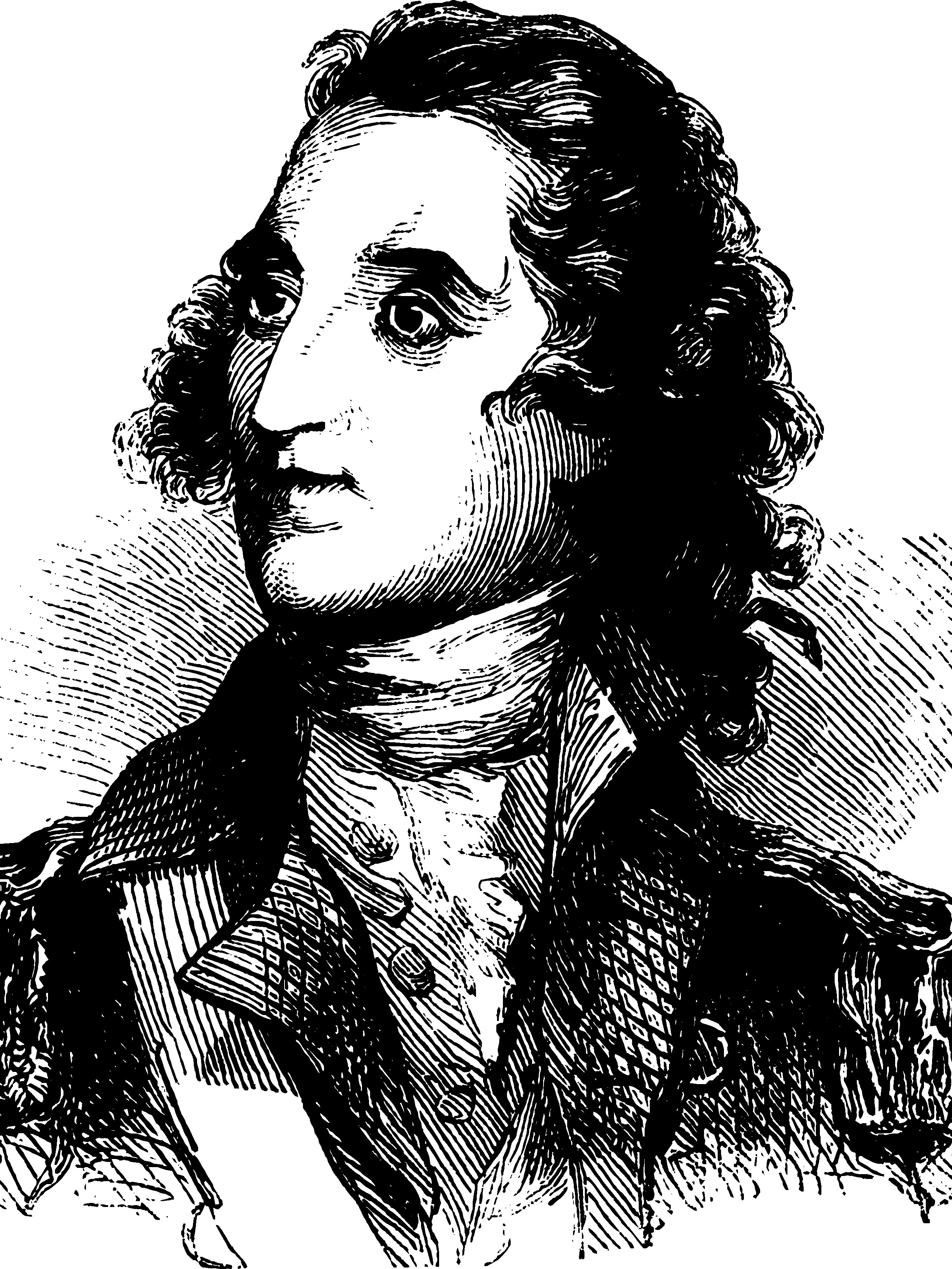
-
American statesman and revolutionary
Thomas Pinckney was born in Charleston, South Carolina, but at the age of three was taken by his father to Great Britain and remained there throughout his youth. He studied at Westminster and Oxford and was admitted to the Middle Temple at the age of eighteen. Pinckney was Called to the Bar in 1774, returned to South Carolina soon afterwards, becoming heavily involved in the Revolution. After the war, he served as Governor of South Carolina from 1787 to 1789, and in 1792 was appointed by President Washington as ambassador to Great Britain. He later served in the House of Representatives and as a Major-General in the war of 1812, dying in 1828 in his hometown of Charleston.
© Shutterstock.com
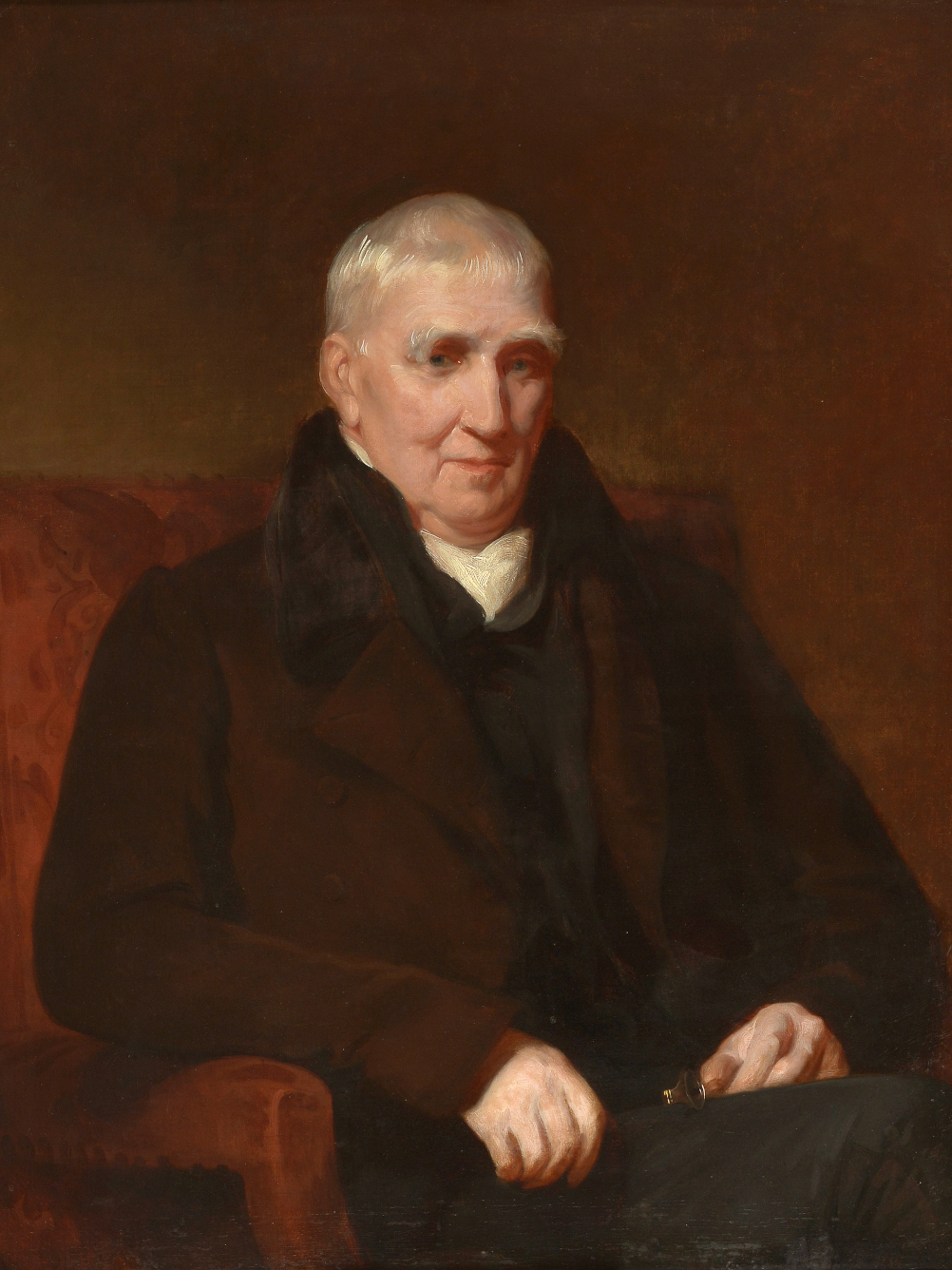
-
Barrister, politician and Lord High Chancellor of Great Britain
John Scott was born in Newcastle-on-Tyne in 1751. His father was an ironmonger and his mother had fled Newcastle on the approach of Scottish rebels. He was educated at Newcastle Grammar School and at University College, Oxford, where his elder brother William was a Fellow. Despite early academic promise he was obliged to give up his own fellowship (and his hopes of taking holy orders) on his elopement with Bessie Surtees and was forced to turn to the law. He was admitted to the Inn in 1773, Called in 1776, and rose to prominence in the 1780s, in part thanks to the support of his elder brother William. Scott was elected as Bencher of the Inn in 1783, serving as Reader in 1792 and Treasurer in 1797. He entered Parliament in the same year he was Benched, and soon rose to prominence under Pitt, becoming his Solicitor-General in 1788 and Attorney-General five years later. As Attorney-General he prosecuted Hardy, Horne Tooke and Thelwall for high treason, and was involved with the suppression of seditious writings and other political offences in that time of continental turmoil. He was made Lord Chancellor in 1801 and, excepting a brief intermission, held the position until 1827. He opposed the abolition of the slave trade in the House of Lords, as well as the emancipation of debtors and Catholics.
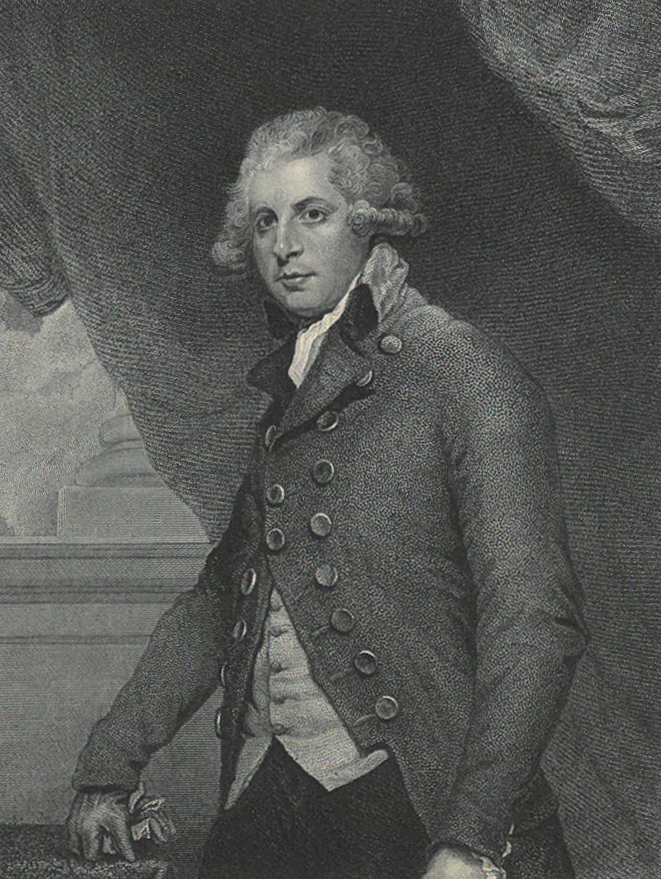
-
Orator, statesman and dramatist
Richard Sheridan was born in Dublin in 1751 and was educated at Harrow. As a young man he fought two duels for the honour of the singer Elizabeth Linley, who he went on to marry in 1773. It was allegedly the opposition of her friends and family to an engagement to a man with no prospects that induced him to join the Inn. His first comedy, The Rivals, was produced in 1775 at Covent Garden Theatre. Sheridan followed this with a succession of hugely popular plays and comic operas, including The School for Scandal, that were performed at the Drury Lane Theatre. He took over David Garrick’s shares in the theatre on the latter’s retirement in 1776, and took over full ownership two years later with the support of his father-in-law, Thomas Linley. Later in life he became a Member of Parliament and became known for his powerful oratory. Sheridan served as Treasurer of the Navy from 1806 to 1807. He died in poverty in 1816.
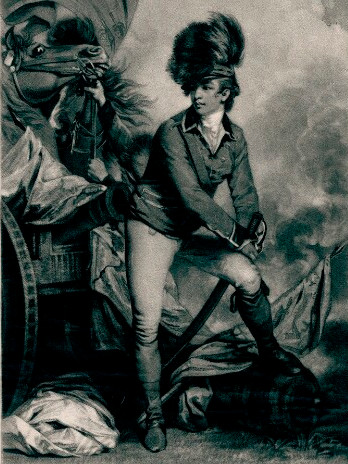
-
Soldier and politician, prominent in the American Revolutionary War
Banastre Tarleton, born in 1754 to a successful merchant, was admitted to the Inn in 1770, though he was never Called. Having burned through a large inheritance from his father, he became a cavalry officer at the age of twenty-one and sailed to North America with Lord Cornwallis to fight in the American Revolutionary War. He fought in a number of prominent engagements, including the Battle of Brandywine, and gained a reputation for ruthlessness and brutality, in part due to the alleged massacre of surrendering Continental soldiers at the Battle of Waxhaws. In later life, he served as an MP, becoming a significant Whig and supporter of the slave trade.
Sir Banastre Tarleton, Bt by Samuel William Reynolds, after Sir Joshua Reynolds. Mezzotint, published 1820 or after (1782). NPG D4350 © National Portrait Gallery, London. This image has been cropped and is licenced under a Creative Commons Attribution-NonCommercial-NonDerivs 3.0 Unported Licence.
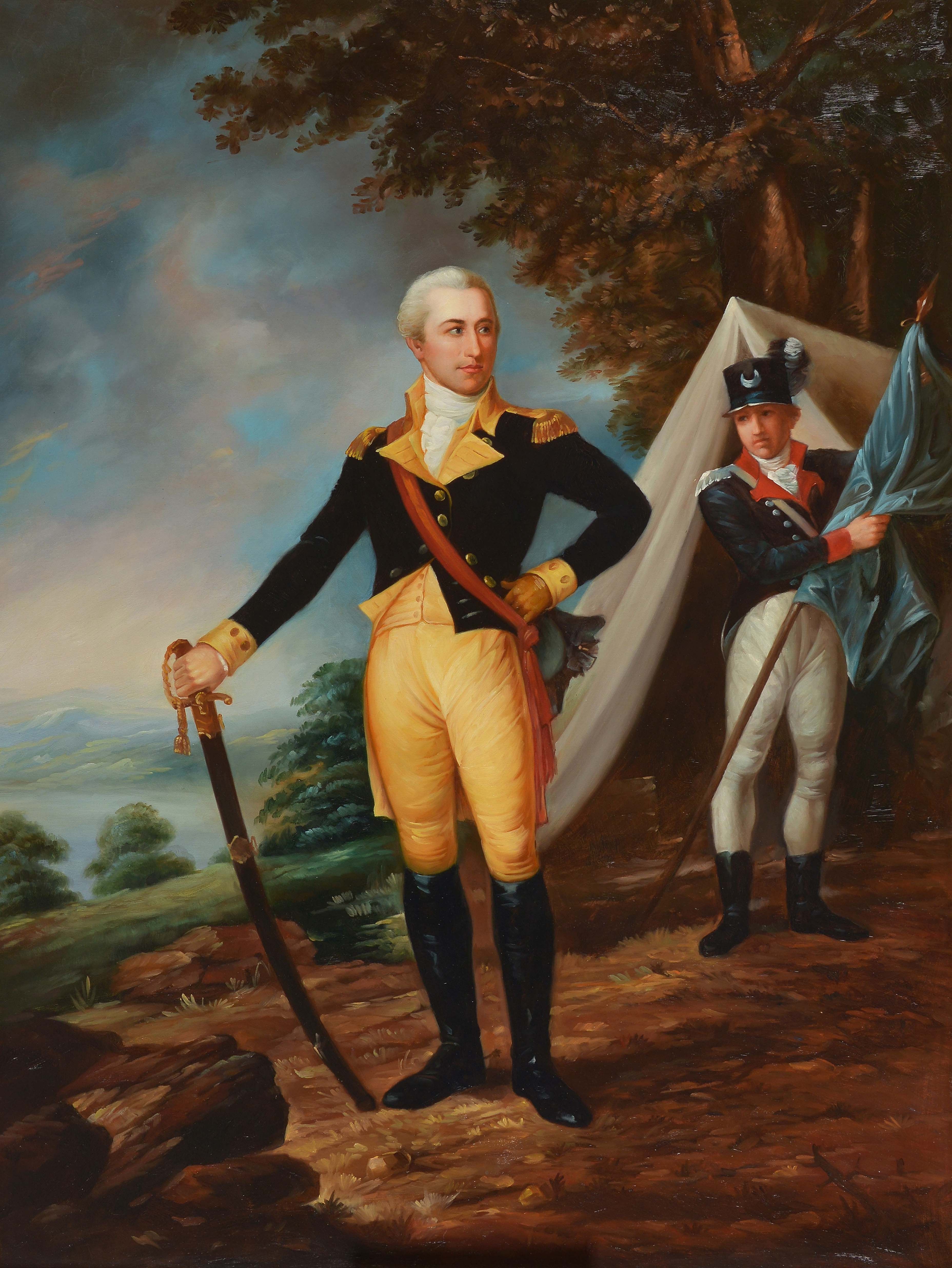
-
American statesman and revolutionary
John Laurens was born in 1754, the son of rice planters in South Carolina. He and his brothers were taken to London for their education and he was admitted to the Inn in 1772. He commenced his legal studies in 1774 and returned to South Carolina in 1776 to fight in the American Revolutionary War. In 1777, Laurens joined the Continental Army under George Washington, fighting at the Battle of Brandywine and being appointed an aide-de-camp to Washington alongside Hamilton and the Marquis de Lafayette. He fought at Charleston, Savannah and the Siege of Yorktown, before being killed at the Battle of the Combahee River in 1782. He is well known for his criticisms of slavery and promoting the idea of arming slaves and granting them freedom in return to military service, although his father’s wealth arose from his joint ownership of one of the largest slave trading houses in America.
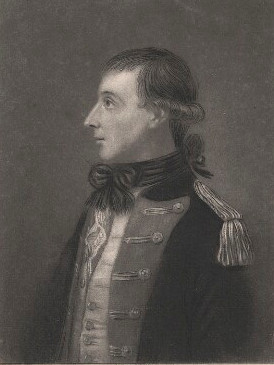
-
Irish revolutionary and 'Father of Irish Republicanism'
Known as Wolfe Tone, he was born in Dublin in 1763, and graduated from Trinity College, Dublin, in 1787, the same year he was admitted to the Inn – at the time it was a requirement to keep terms at an English Inn of Court before being able to practice at the Irish Bar. He shared chambers in Hare Court with his brother while a student, though confessed that after two years studying the Law 'I knew exactly as much about it as I knew of necromancy'. In 1789, Tone returned to Dublin and was Called to the Irish Bar. Following the outbreak of the French Revolution he became prominent in politics, forming the 'Club of the United Irishmen', a society aimed at a complete reform of the legislature of Ireland. Having failed to achieve this by constitutional means, he travelled to Paris in 1796, and negotiated the invasion of Ireland by Generals Lazare Hoche and Jean Joseph Humbert. Tone was taken prisoner during the failed invasion and condemned to death. He took his own life in prison in 1798.
Theobald Wolfe Tone by T.W. Huffam, after Unknown artist. Mezzotint, mid 19th century. NPG D13755 © National Portrait Gallery, London. This image has been cropped and is licenced under a Creative Commons Attribution-NonCommercial-NonDerivs 3.0 Unported Licence. https://creativecommons.org/licenses/by-nc-nd/3.0/legalcode
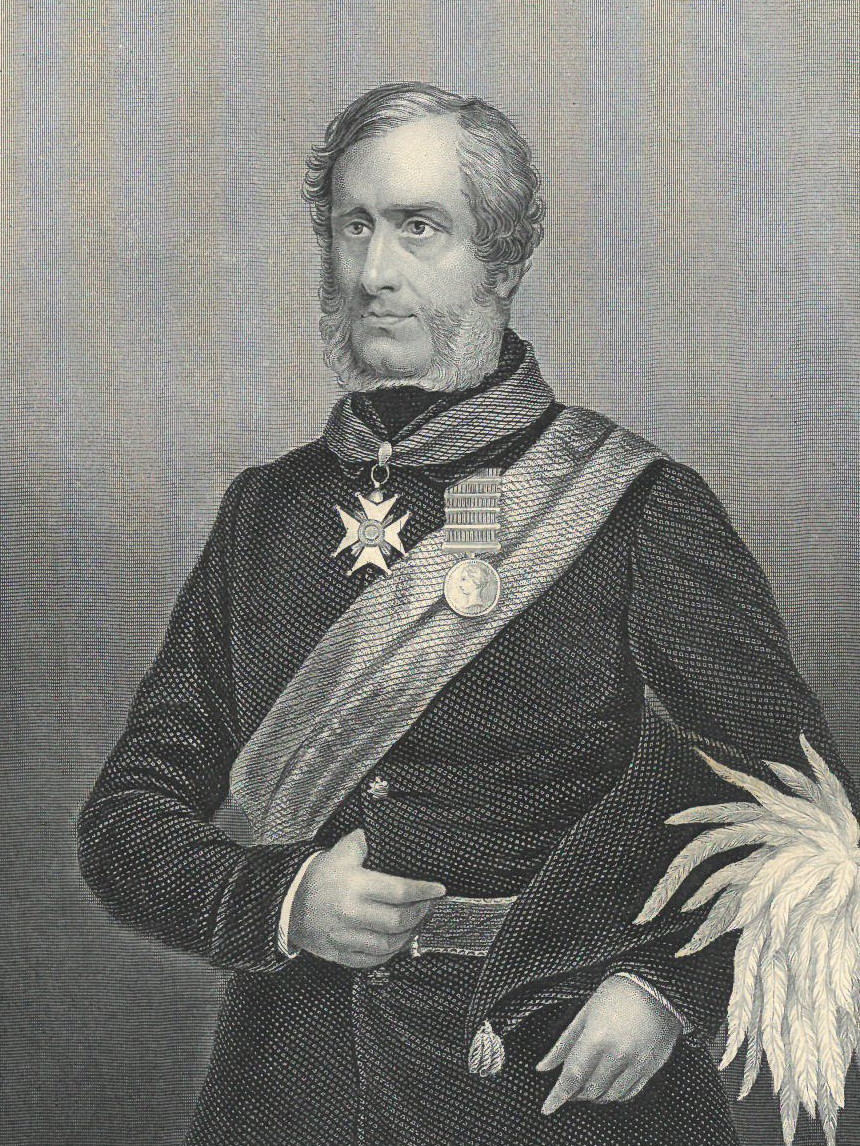
-
General, associated with India and the Mutiny of 1857
Henry Havelock was born in 1795 to a wealthy family and boarded at Charterhouse until the age of seventeen. He was admitted to the Middle Temple in 1813, but family problems and their financial consequences forced him to give up the law, and he joined the army as a Second Lieutenant in 1815. In the 1820s, Havelock served in the First Anglo-Burmese War and became a Baptist, having married the daughter of missionaries. He fought in the First Afghan War and was appointed Adjutant-General of the Indian Army in 1854. On the outbreak of the Indian Mutiny in 1857, he led a force to suppress the disturbances, recapturing Cawnpore and relieving the first siege of Lucknow. It was at Lucknow that he died of dysentery, his army having been besieged a few days later. Havelock gained a reputation as a military hero, but the brutality of his actions during the Indian Mutiny has made him a controversial historical figure.
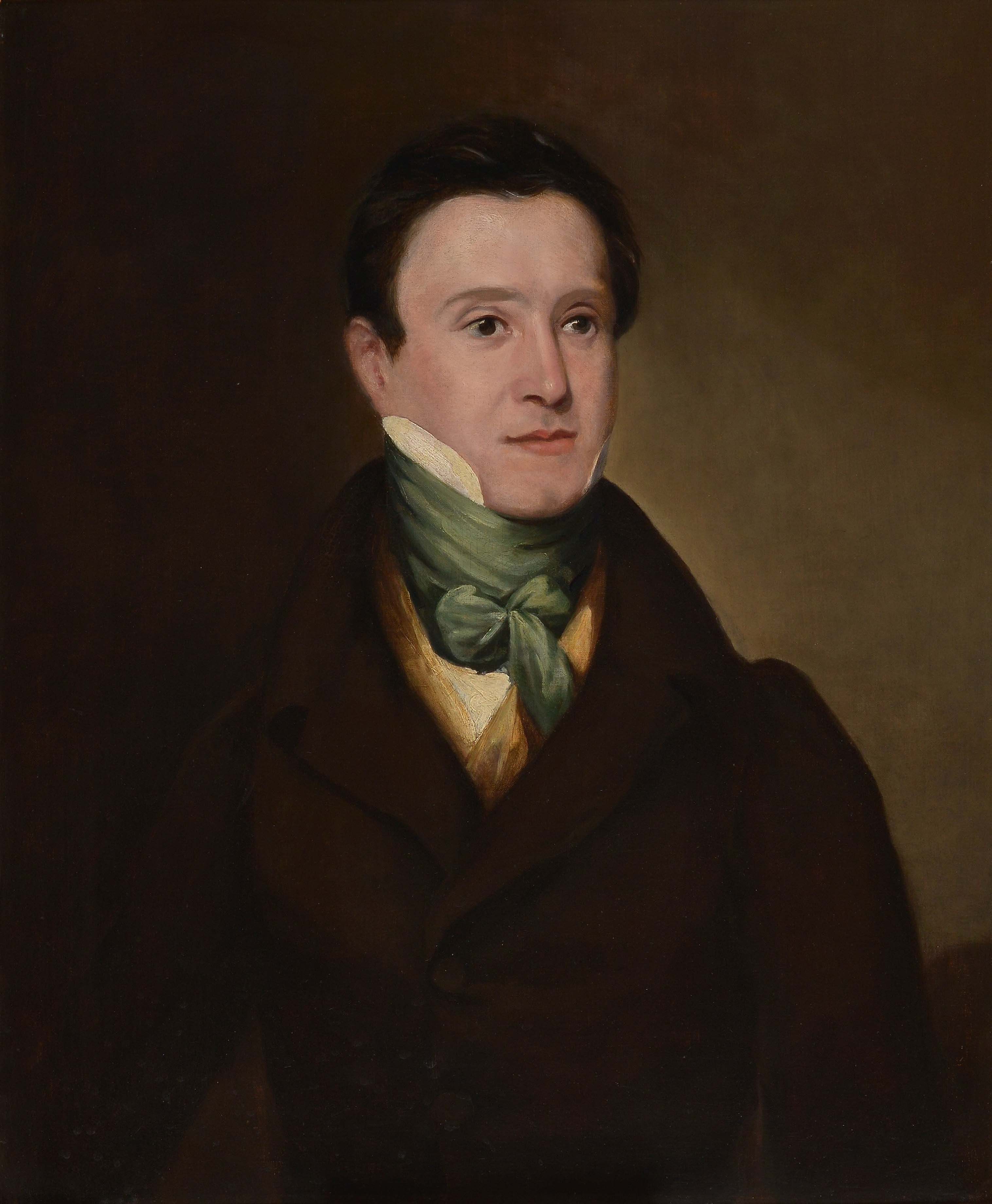
-
Judge, Radical politician and author
Sir Thomas Noon Talfourd, whose portrait hangs today in the Bench Apartments, was born in 1795, and joined the Middle Temple in 1813. He was Called to the Bar in 1821, and proceeded to a successful career as a judge and a Radical MP, as well as achieving note as a poet and playwright. A staunch abolitionist, Talfourd’s works Ion and The Athenian Captive used Ancient Greek settings to attack tyranny, autocracy and slavery.
He is known particularly as a supporter and friend of Charles Dickens – being one of the young author’s guarantors upon his own admission to the Inn in 1839. They were close for many years: Dickens dedicated The Pickwick Papers to his friend, and the two frequently socialised and holidayed together. Talfourd was also the proposer in Parliament of the Copyright Act, which was a cause close to Dickens’ heart. Dickens reportedly modelled David Copperfield’s Tommy Traddles upon Talfourd, and his children Kate and Frank (the latter also a Middle Templar) are said to have inspired the two characters so named in Nicholas Nickleby.
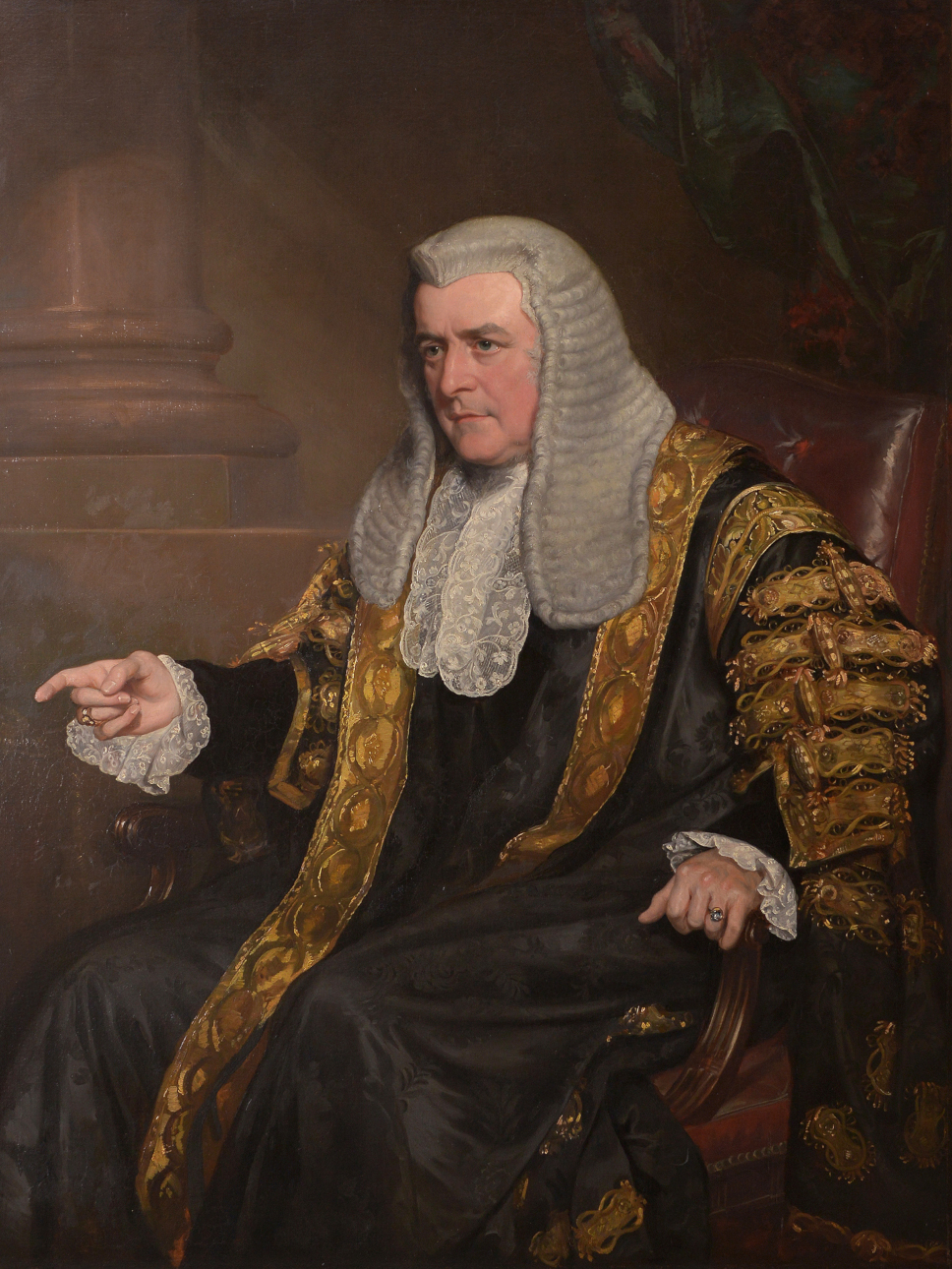
-
Lawyer, judge and legal education reformist
Richard Bethell was born in 1800 and found success in his classical and mathematical studies at Oxford. Admitted to the Inn in 1819, he was Called in 1823 and after a successful practice was made a Queen's Counsel in 1840. He served as Reader in 1844 and Treasurer in 1848. Elected MP for Aylesbury in 1851 as a supporter of the Liberal government, he was made Solicitor- and then Attorney-General, and in 1861 succeeded to the office of Lord Chancellor. Bethell was instrumental in the revolution in legal education during the middle decades of the 19th century.
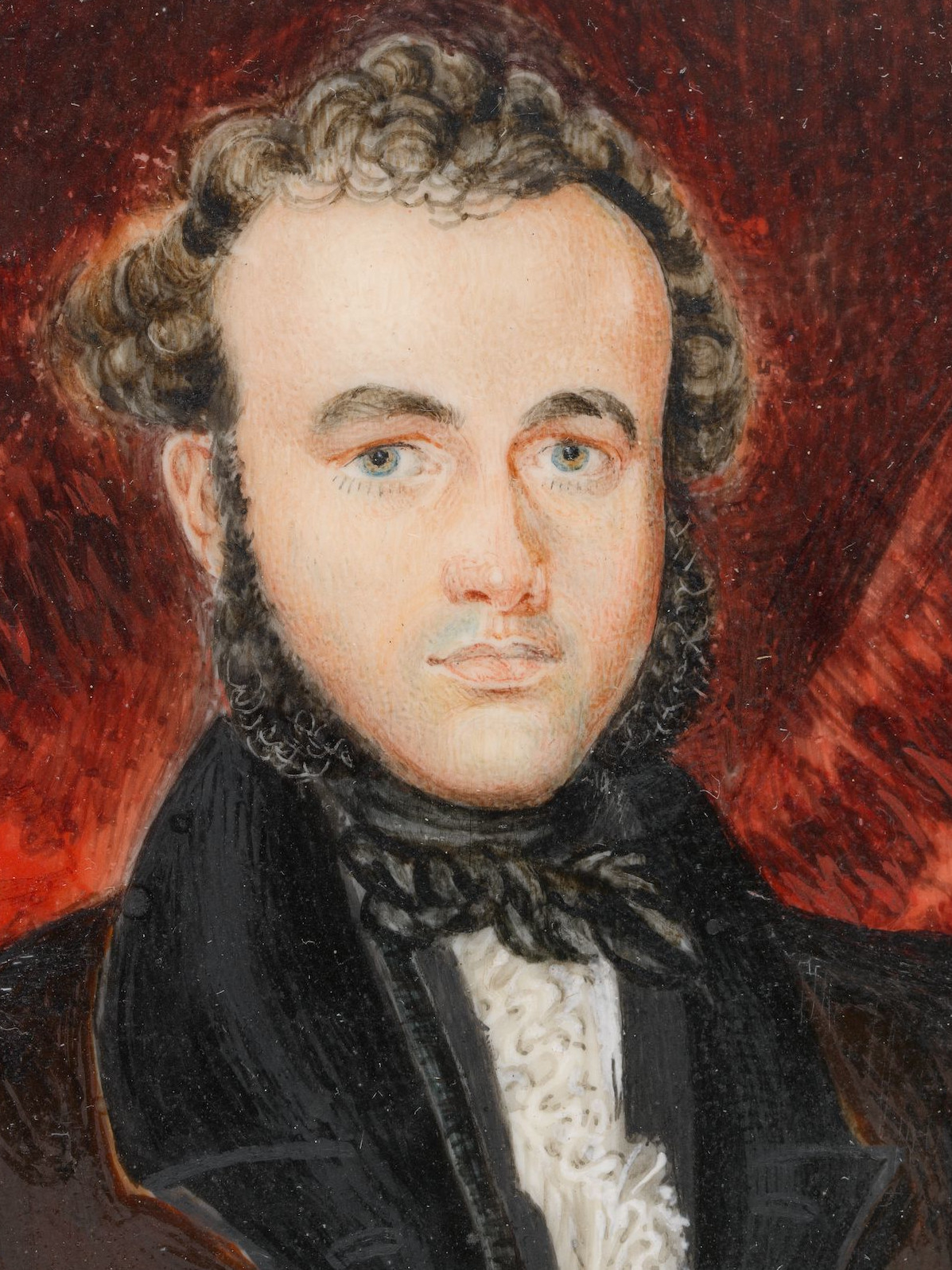
-
Journalist, barrister and Australian politician
Richard Windeyer was born in London in 1806, the son of a Parliamentary Reporter, and remained in London to follow in his father's footsteps when the rest of the family emigrated to Sydney. He was admitted to the Inn in 1829 and Called in 1834, shortly after which he followed his family to Sydney, making his name as a barrister in the years afterwards. Elected to the New South Wales Legislative Council in 1843, he became a prominent politician. Windeyer fought for the cause of the Aboriginal population and died as a result of anxiety and overwork in 1847.
Richard Windeyer 1830s by an unknown artist Collection: National Portrait Gallery, Australia. https://www.portrait.gov.au/portraits/2009%252E158/
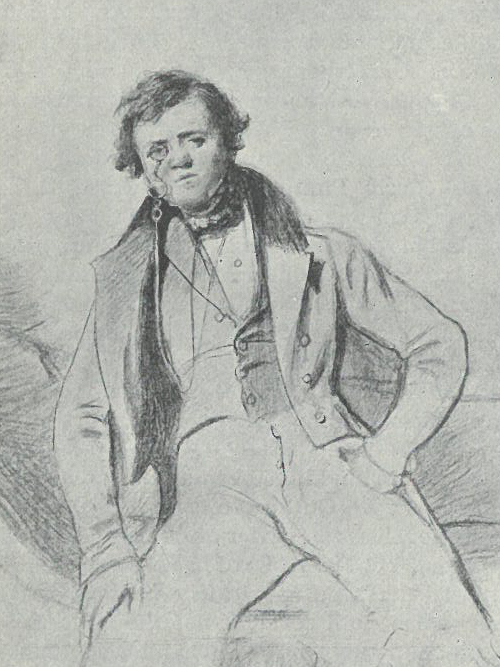
-
Novelist
Born in Calcutta in 1811, he was educated at Charterhouse and Cambridge, and was admitted to the Inn in 1831. He occupied chambers in Hare Court and read for the Bar, but described the legal curriculum as 'one of the most cold-blooded prejudiced pieces of invention that ever a man was slave to'. Nonetheless, he was eventually Called to the Bar in 1848, and occupied chambers in Crown Office Row until 1855. He had, however, been successful in the sphere of literature for some time by this point in his life, writing for The Times from 1838, and making his name as a novelist. He is best remembered today for writing Vanity Fair.
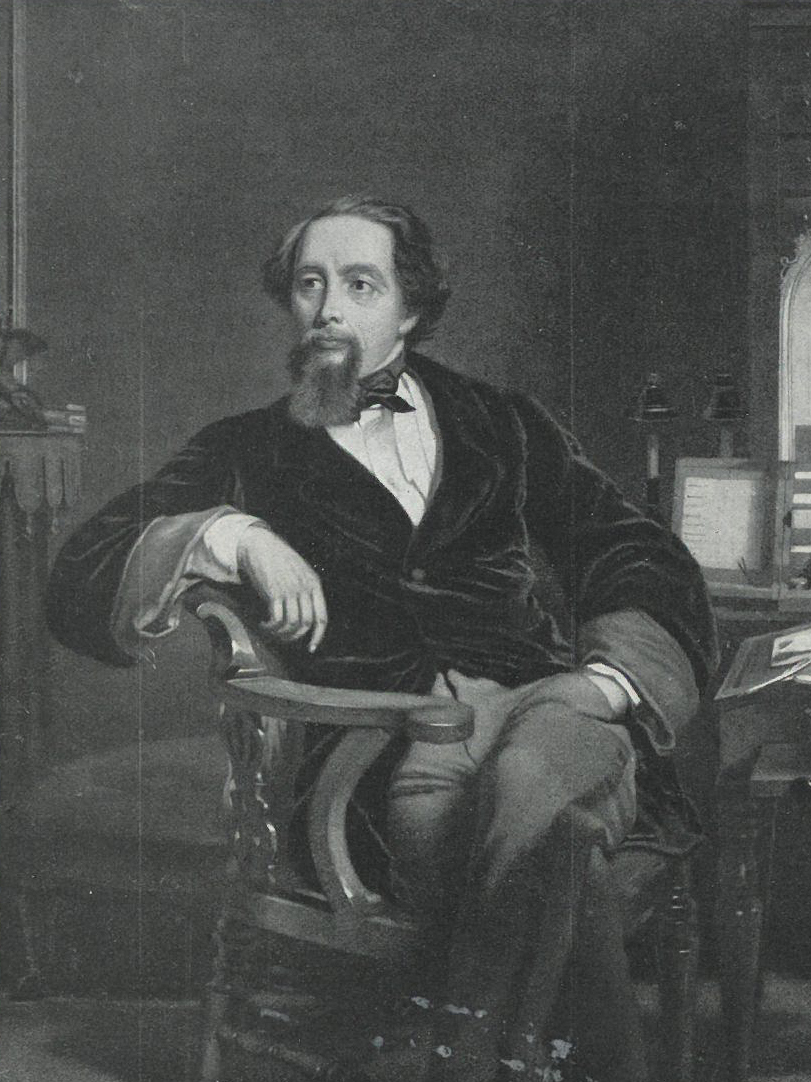
-
Novelist
Charles John Huffam Dickens is one of the world's best-known novelists, immensely popular in his lifetime and in the one and a half centuries since his death. Born in Portsmouth in 1812, he grew up in Kent and London. After a dalliance with the stage in his early twenties, Dickens took to writing and journalism. By the end of the 1830s he had published Oliver Twist, The Pickwick Papers and Nicholas Nickleby, and produced numerous great works over the following decades, many of them characterised by fierce social commentary and criticism of the poverty widespread in Victorian society. Dickens was admitted to the Inn in 1839 with the intention of reading for the Bar. His time at the Inn gave rise to descriptions of the dingy alleyways and dilapidated buildings in his works, and the bright, sparkling fountain that features at a key juncture in Martin Chuzzlewit. Despite his familiarity with the Inns of Court, and records indicating his having dined in Hall, he was never Called to the Bar, and eventually petitioned to withdraw from membership of the Inn in 1855.
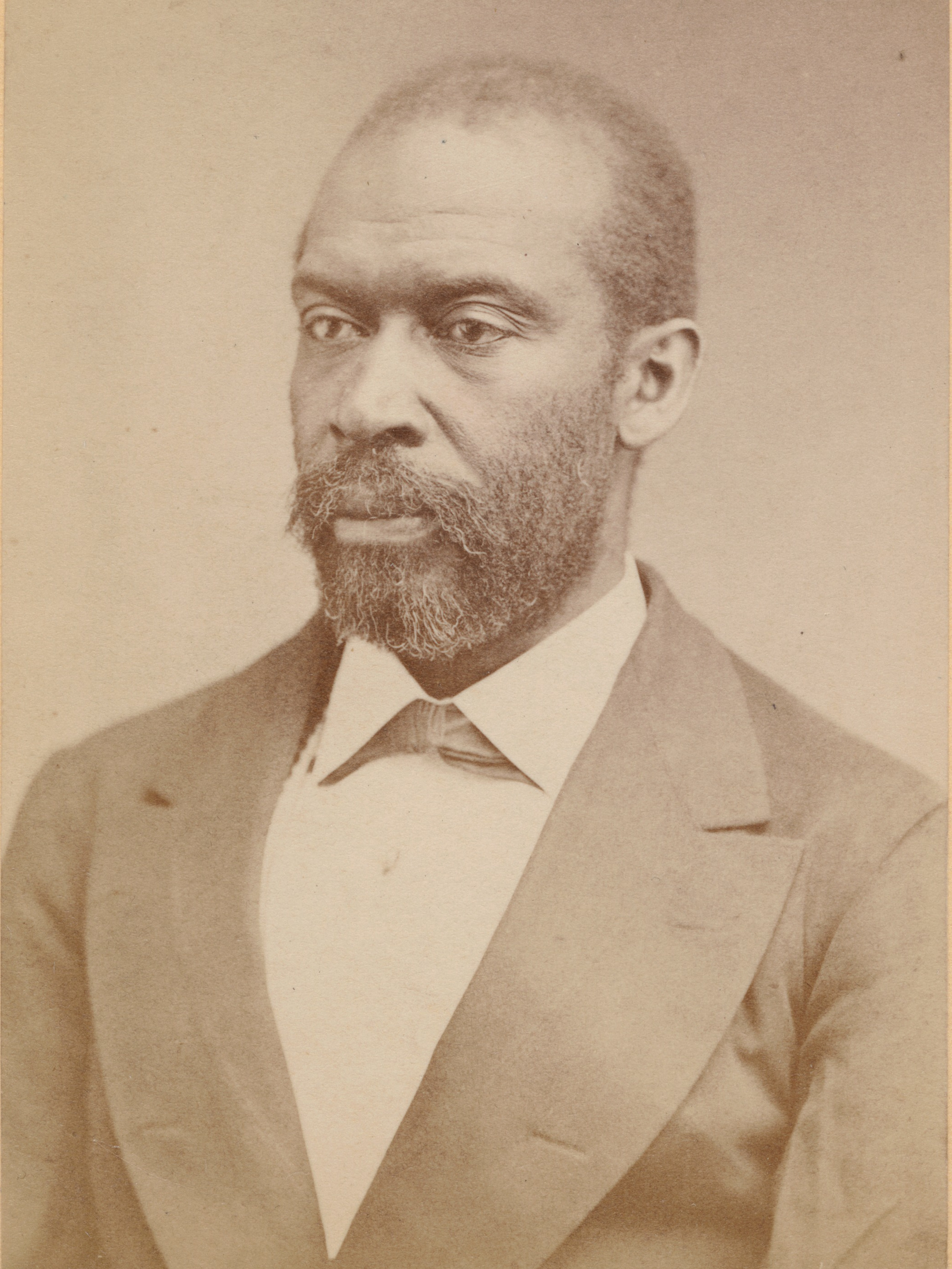
-
First African American at the English Bar, war correspondent and American Civil War soldier
Thomas Morris Chester was born in Harrisburg, Pennsylvania in 1834, the son of abolitionist campaigners, and was educated in Pittsburgh and Vermont, before travelling to work as a lawyer in Liberia. On the outbreak of the American Civil War in 1861 he returned to the US to serve as a recruiter of Black troops and as a war correspondent. Touring Europe after the war, he spent time at the court of Tsar Alexander II in St Petersburg as a representative of the Liberian government, before arriving in London and being admitted to the Middle Temple in 1867. He maintained an involvement with Liberian politics, requesting more than once to be Called to the Bar early on important business for the President. Called to the Bar in 1870, he became the first African American to practice at the English Bar. Chester returned to the US to practice law in 1871 and died in his hometown in 1892.
© The New York Public Library
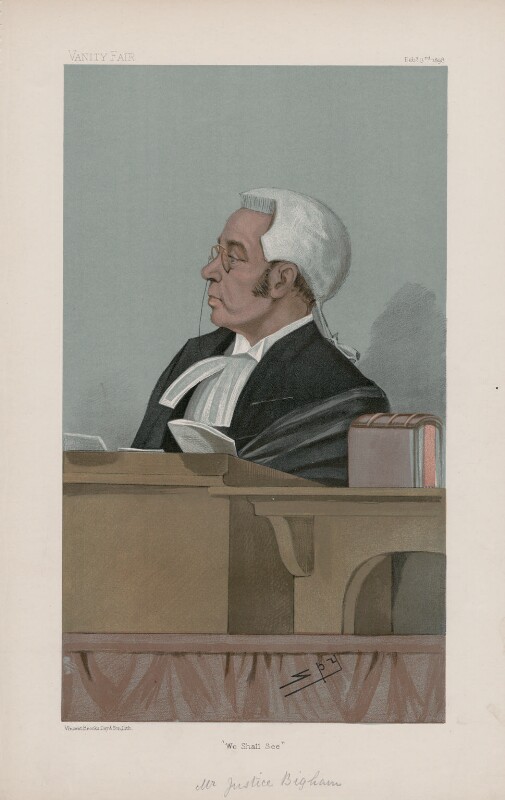
-
Judge and Liberal politician
John Bigham was born in Liverpool, the son of a merchant, and was educated at the Liverpool Institute High School for Boys and the University of London. Called to the Bar in 1870, he was made a QC in 1883 and built up a prosperous commercial practise. He was elected to Parliament in 1895 as a Liberal Unionist MP for a Liverpool constituency, although remained focussed on his legal career. Knighted and made a judge of the Queen’s Bench in 1897, he went on to become President of the Probate, Divorce and Admiralty division in 1909 and was raised to the peerage in 1910. He is best known for leading the inquiry into the sinking of RMS Titanic in 1912 and the RMS Lusitania in 1915. Despite deafness, he continued working into his old age, and returned to the bench in his eighties to assist divorce courts with a heavy backlog.
John Charles Bigham, 1st Viscount Mersey ('Judges. No. 51.') by Sir Leslie Ward. Chromolithograph, published in Vanity Fair 3 February 1898. NPG D44893 © National Portrait Gallery, London.
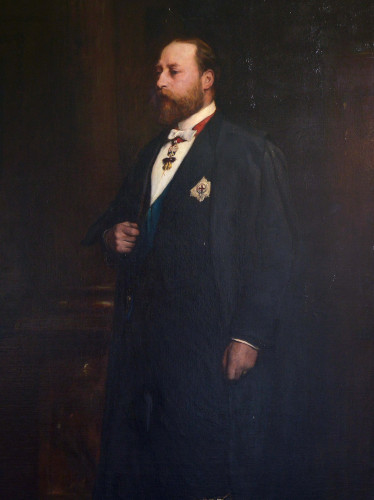
-
King of the United Kingdom of Great Britain and Ireland and Emperor of India, eldest son of HM Queen Victoria
HRH Albert, Prince of Wales was elected to the Bench in 1861 and on the day of his Call officially opened the new Middle Temple Library. In 1872, he attended a soiree of the International Prison Congress at the Inn and attended a dinners and Grand Days in 1874, 1877, 1883, 1887 for the Golden Jubilee, 1891 and 1893. After his ascension to the throne as King Edward VII, he was the first reigning monarch elected to the Bench to dine at an Inn of Court in 1903. He is also credited with making smoking permissible in Hall after he lit a cigar at dinner, which led to a change in policy. Other events that the Prince of Wales attended were a luncheon on the opening of the law courts in 1882, the Call to the Bench of HRH Prince Albert Victor, Duke of Clarence and Avondale in 1885, a smoking concert in 1896, and a performance of Twelfth Night in 1897. He was Treasurer of the Inn in 1886 with Sir Peter Edlin deputising for him and became its Senior Bencher in 1907, forty-six years after his Call.
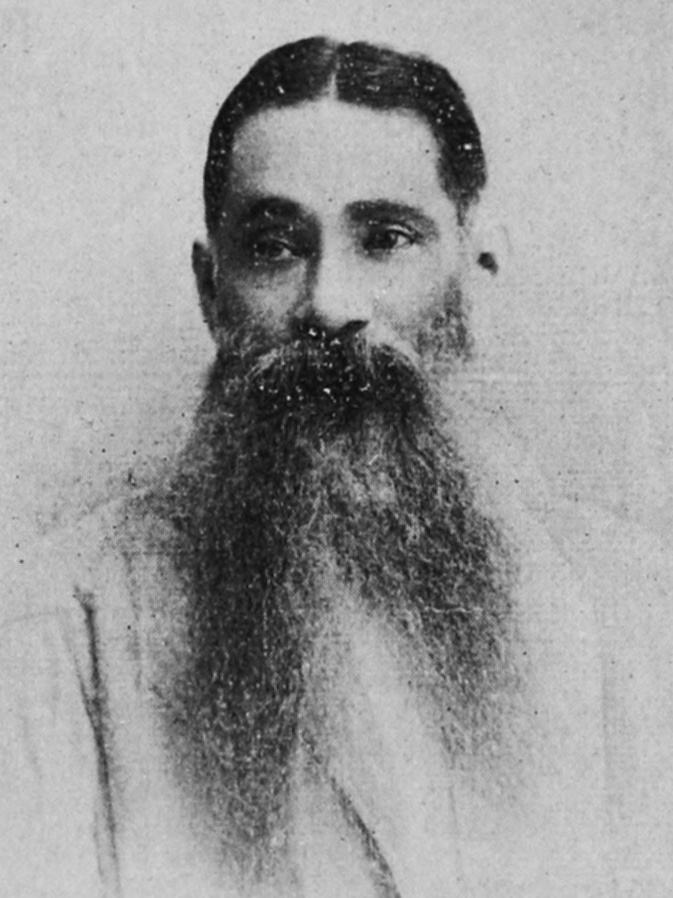
-
Co-Founder and first President of Indian National Congress
Womesh Chunder Bonnerjee was born in Calcutta (Kolkata), India, in 1844. After his Call to the Bar in 1867, he quickly became the most sought after barrister in the Calcutta High Court. He was the first Indian to act as a Standing Counsel, in which capacity he officiated four times - 1882, 1884, 1886-87. Bonnerjee presided over the first session of the Indian National Congress held in Bombay (Mumbai) in 1885. He was President for a second time in 1892. Bonnerjee also assisted in raising funds in India for a London Agency that had been established to propagate India's case in Britain in 1888. He also advocated for the establishment of a Royal Commission for the reduction of military expenditure and its just apportionment between Britain and India. Bonnerjee split his time between living in Britain and living in India and stood for election to the seat of Barrow and Furness in the British Parliament in 1892, but he did not succeed in his attempt. In 1902 he moved to Britain due to ill health and started practising before the Privy Council. He died in Croydon in 1906.
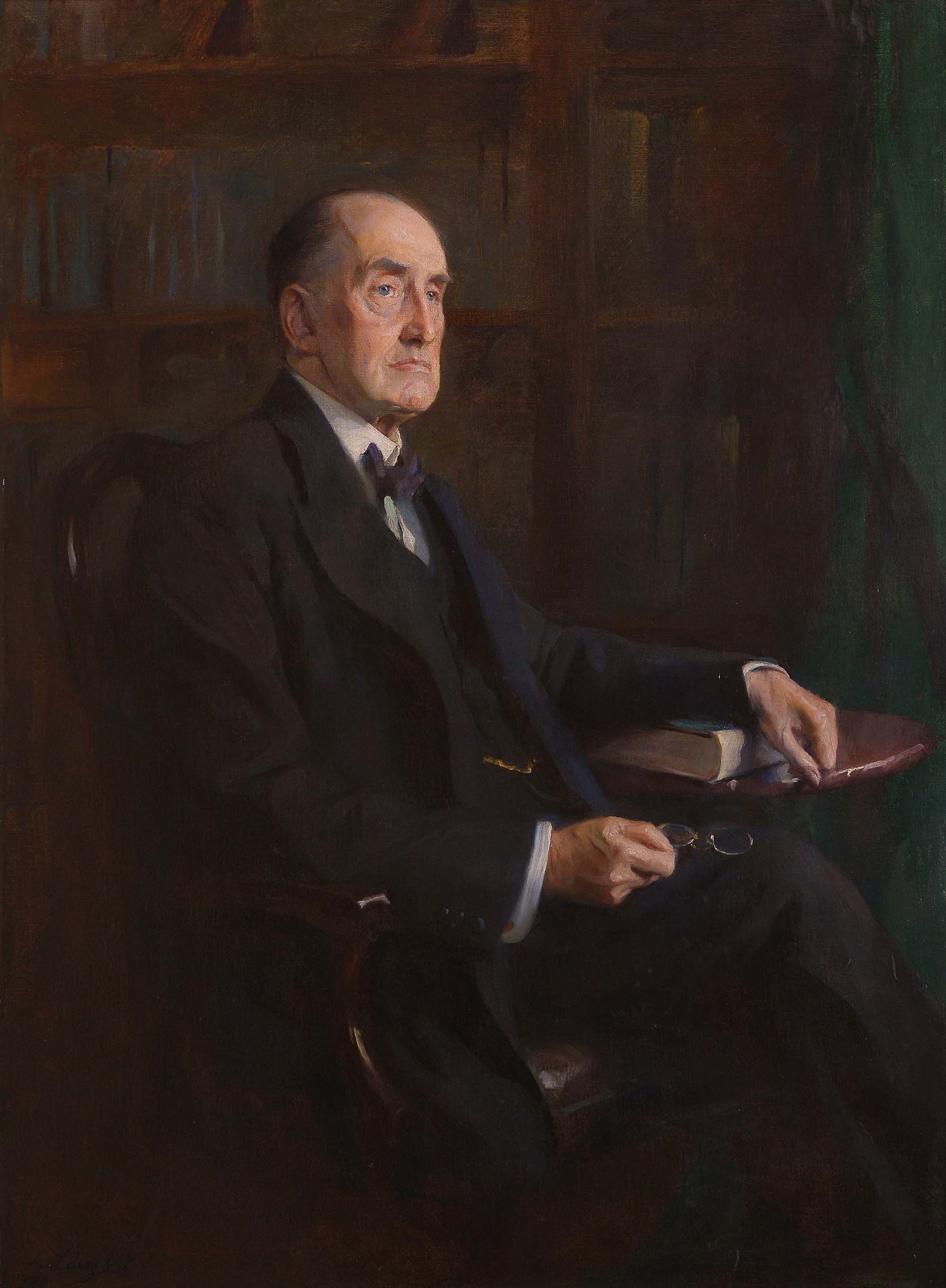
-
Irish Unionist politician, barrister and judge
Edward Carson was born in Dublin to a wealthy Anglican family, and read law at Trinity College Dublin before joining the Inn in 1875. He was Called to the Irish Bar at King’s Inns and soon made a name for himself as one of the most notable barristers in Ireland, being appointed QC in 1889 and Solicitor-General for Ireland in 1892. He was Called to the English Bar in 1893 and practised primarily in England from then on, being notable for his cross-examinations of Oscar Wilde in the latter’s criminal libel action which led to his eventual prosecution for gross indecency. In 1900, he was appointed Solicitor General for England, knighted and made a Bencher of the Inn.
A fierce opponent of Home Rule in Ireland during the 1910s, he became First Lord of the Admiralty in 1916 and was elevated to the British War Cabinet. In 1920, he was instrumental in the establishment of the Parliament of Northern Ireland and was invited by the Unionists to lead the party in an election to become the first Prime Minister of Northern Ireland, but declined. After his retirement in 1929, his portrait was painted for the Inn by the renowned society painter Philip de Lazslo. On his death in 1935 he was granted a state funeral in Belfast and is the only person to have been buried at St Anne’s Cathedral.
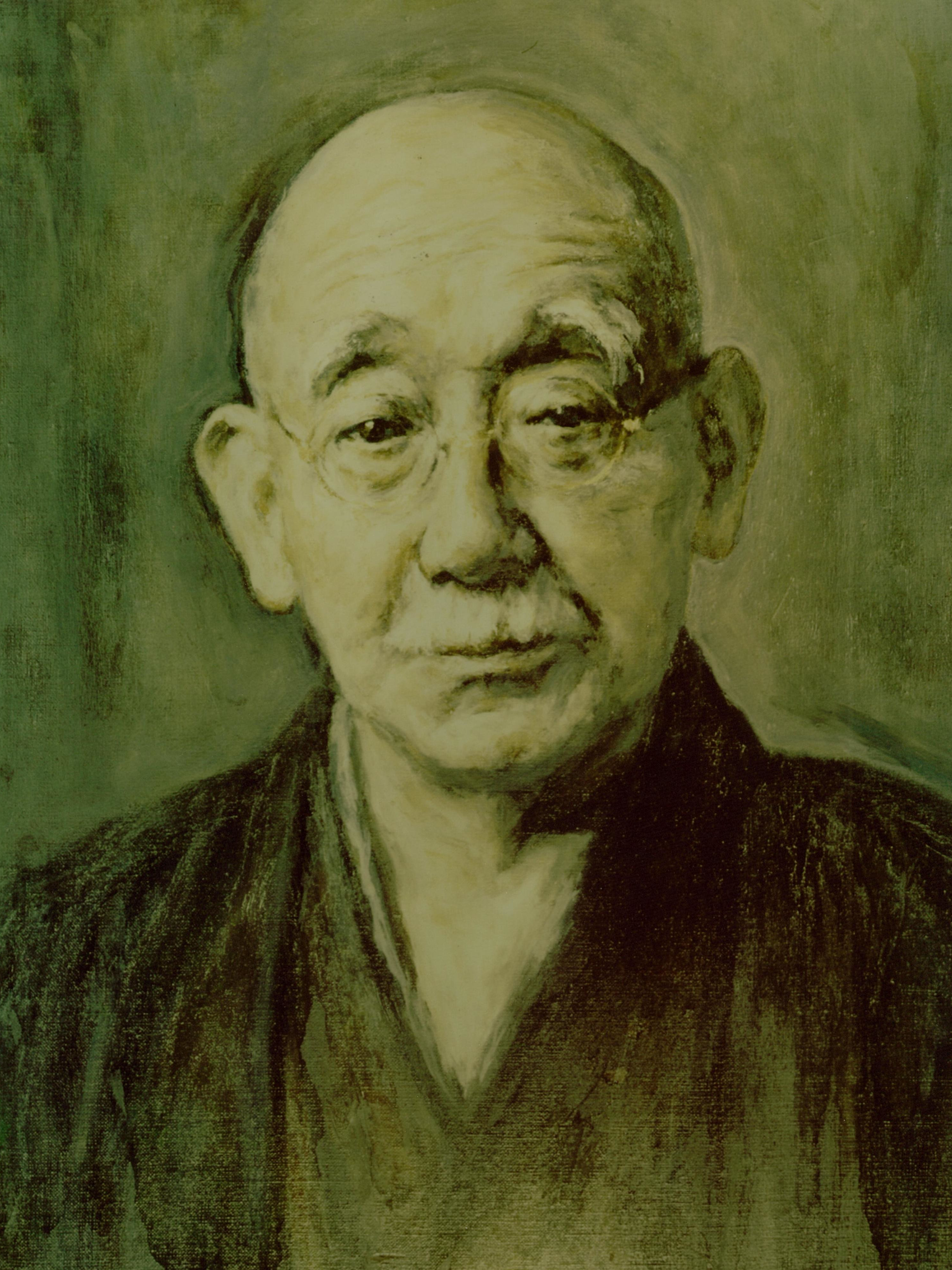
-
International lawyer and founder of Chuo University, Tokyo
Born in 1857, Rokuichiro Masujima studied law at the University of Tokyo. He was admitted to the Inn in 1881 at the age of twenty-three and and was Called to the Bar in 1883. Masujima returned to Japan to practice the law, and in 1885 founded the 'English Law School' in Tokyo, which went on to become Chuo University ('Chuo' meaning 'Middle' in Japanese), still a leading law school today. He also established the Sei-diu-Do Common Law Institute in Tokyo in 1934 in order to provide a library of the Common Law for Japanese students and promote knowledge of Anglo-American law in that country.
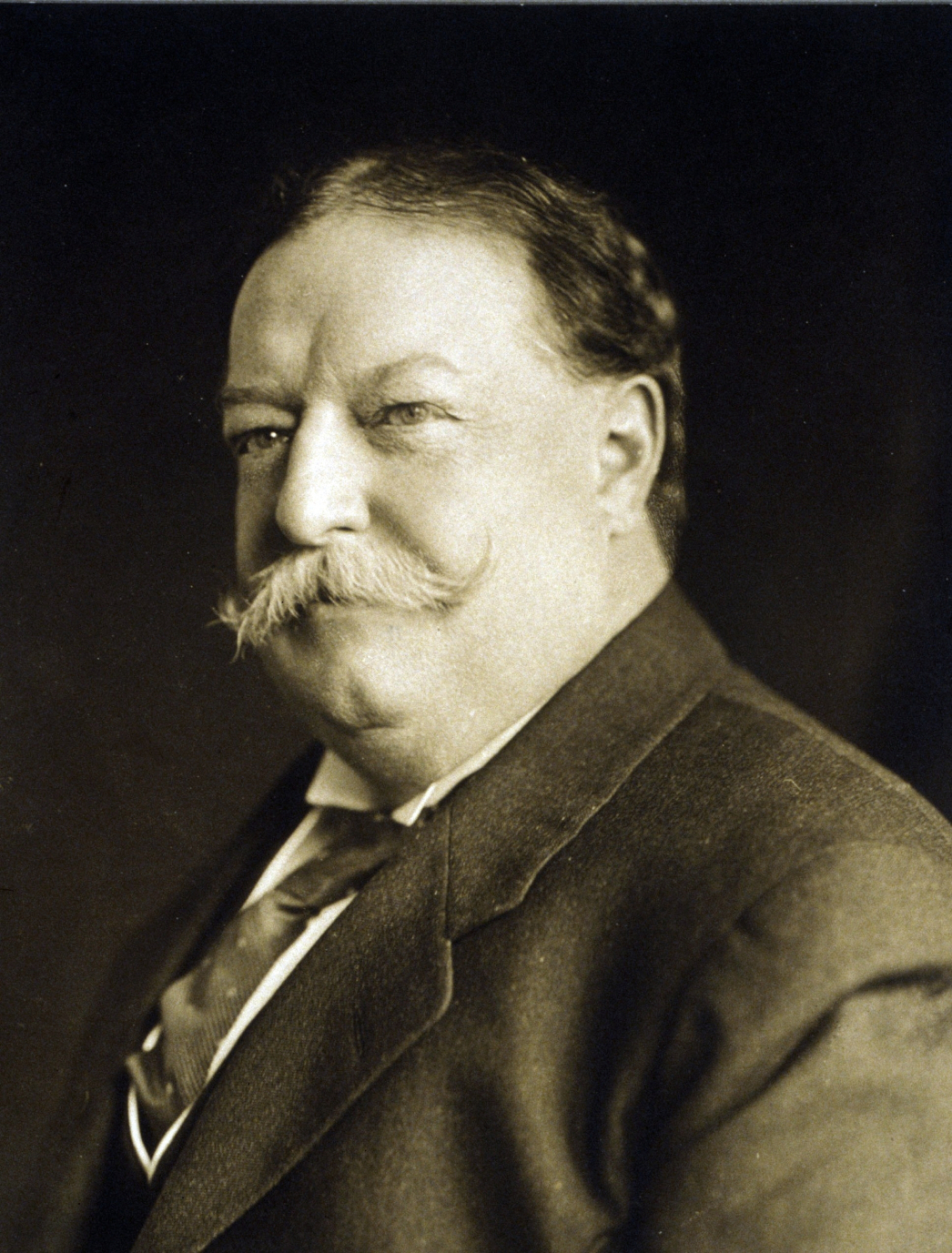
-
27th President of the United States of America and Chief Justice
Taft was born in 1857 and is the only person to have served both as President and as Chief Justice of the United States. He attended Yale and trained as a lawyer. He was appointed a judge while still in his twenties and Solicitor-General at the age of thirty-two. Taft later served as a Governor of the Philippines and Secretary of War, before being elected President in 1908. After a difficult presidency, he failed in his bid for re-election in 1912. He was appointed Kent Professor Law and Legal History at Yale the following year and in 1921 he was appointed Chief Justice, serving until his death in 1930. Taft was made an Honorary Bencher of the Inn in 1922.
© Shutterstock.com
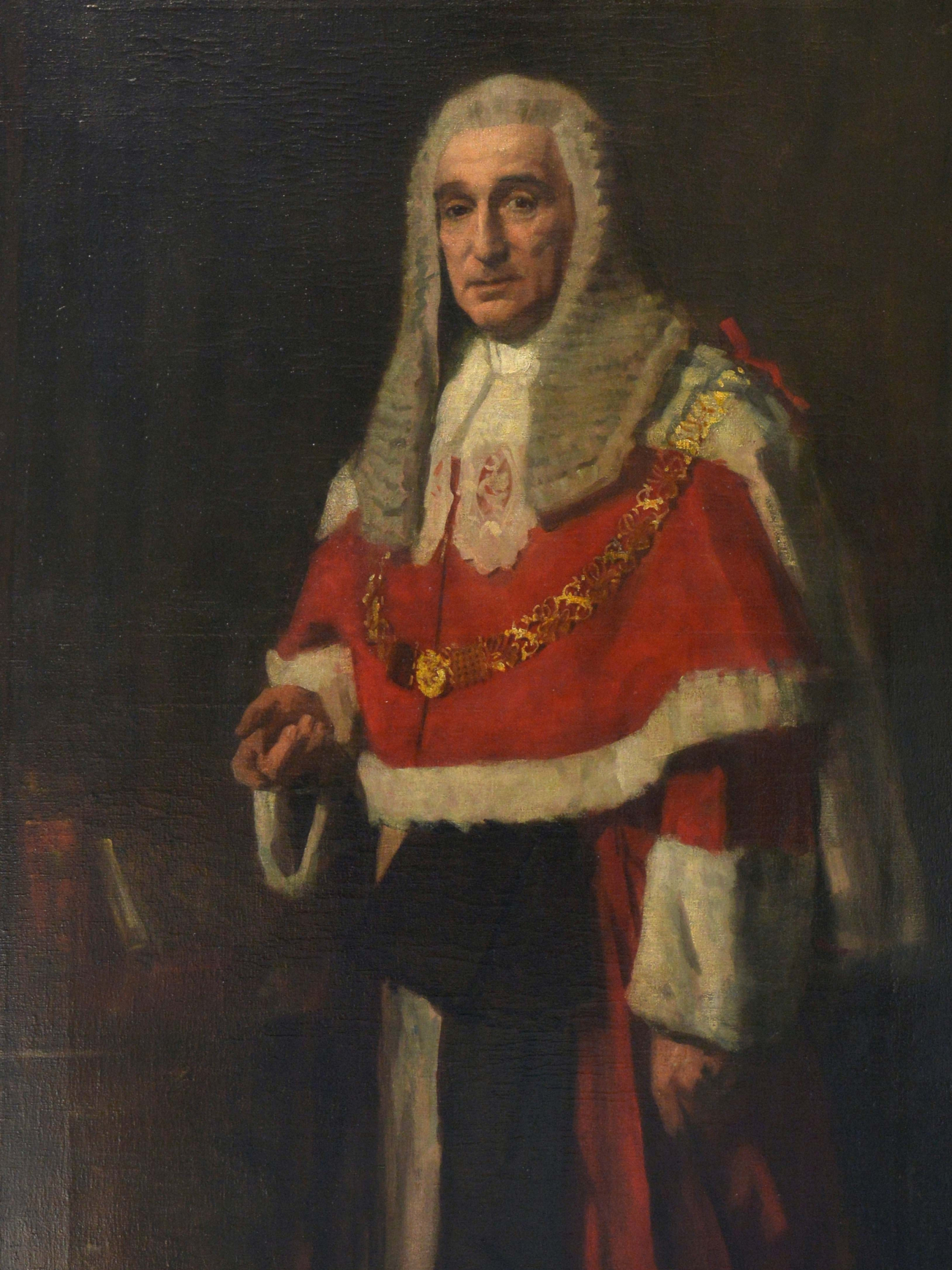
-
Lord Chief Justice of England, Viceroy of India and politician
Rufus Isaacs was born in 1860 to a Spitalfields fruit merchant, and after spells as a ship's boy and a jobber on the stock-exchange, was admitted to the Inn in 1885. After being Called in 1887, he went on to a career as a successful and well-known barrister, becoming a QC in 1898. Isaacs entered the Commons as a Liberal MP in 1904 and served as Attorney-General and Solicitor-General, becoming Lord Chief Justice in 1913. He served as Autumn Reader at the Inn in 1917, and in 1918 he was sent to Washington as the British Ambassador. In 1921 he was appointed Viceroy of India, a position in which he served until 1926. Isaacs was Treasurer of the Inn in 1927 and died in 1935.
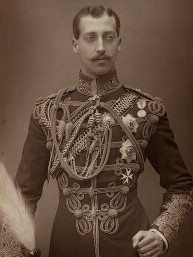
-
Eldest son of HM King Edward VII, second in line to the throne during his lifetime, predeceased father
HRH Prince Albert Victor, Duke of Clarence and Avondale, was elected to the Bench in 1885 at a ceremony attended by his father, HRH Albert, Prince of Wales. The only recorded subsequent visit that he made to the Middle Temple was for the occasion of the Golden Jubilee Grand Day in 1887. He died from influenza in 1892 at the tragically young age of twenty-eight.
Prince Albert Victor, Duke of Clarence and Avondale by W. & D. Downey. Carbon cabinet card, circa 1891. NPG x29171 © National Portrait Gallery, London. This image has been cropped and is licenced under a Creative Commons Attribution-NonCommercial-NonDerivs 3.0 Unported Licence. https://creativecommons.org/licenses/by-nc-nd/3.0/legalcode
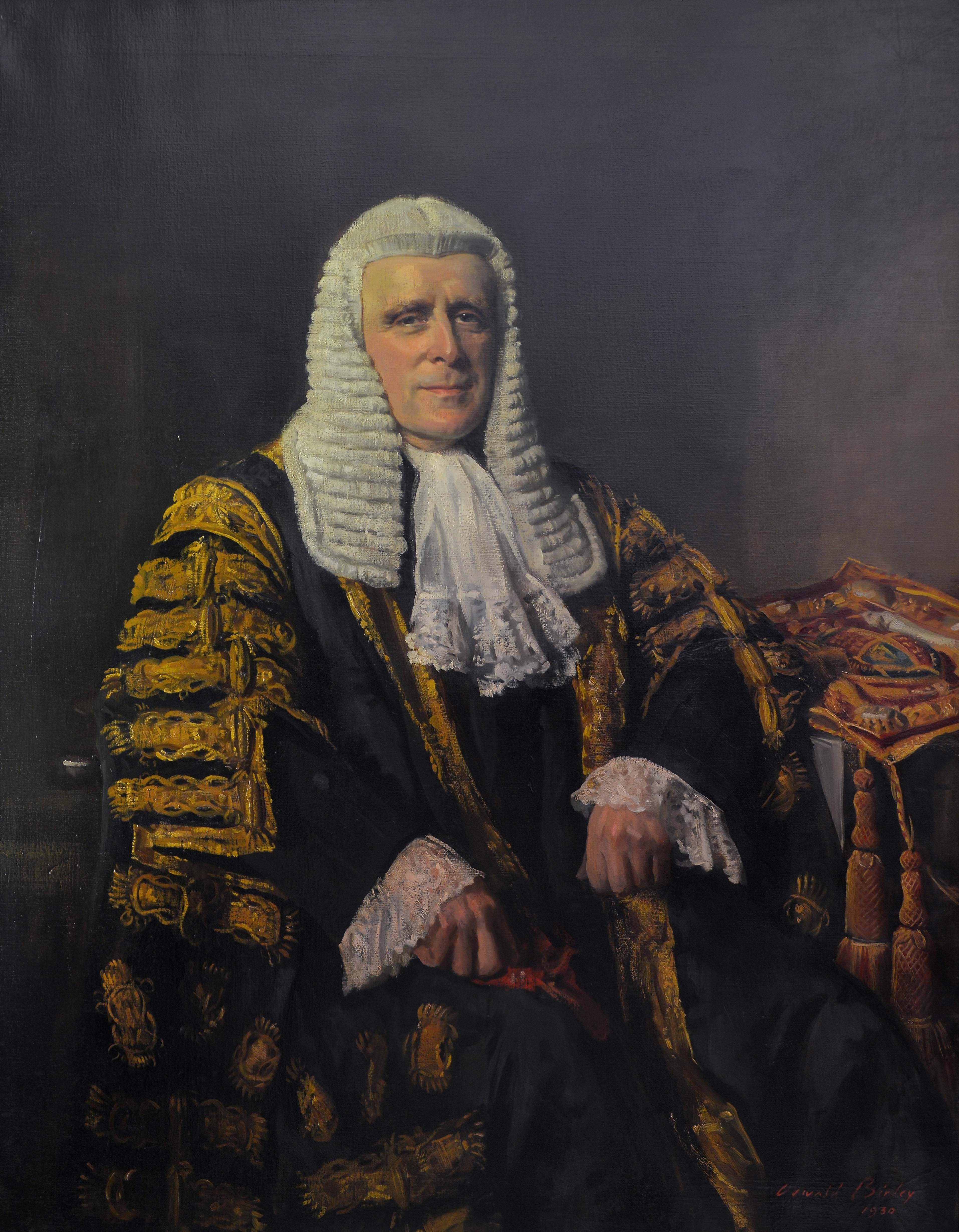
-
Judge, Labour politician and Lord High Chancellor of Great Britain
John Sankey was educated at Lancing College and Jesus College, Oxford, before being Called to the Bar in 1892. Appointed a KC in 1909 and a High Court judge in 1914, he went on to serve as Lord Chancellor between 1929 and 1935. He is remembered today for his landmark judgement setting out the ‘living tree’ doctrine which became the foundation of Canadian constitutional law, and for his chairmanship of the Sankey Committee, which produced the Sankey Declaration of the Rights of Man identifying eleven fundamental human rights. The Sankey Declaration was a notable influence on the 1948 Universal Declaration of Human Rights.
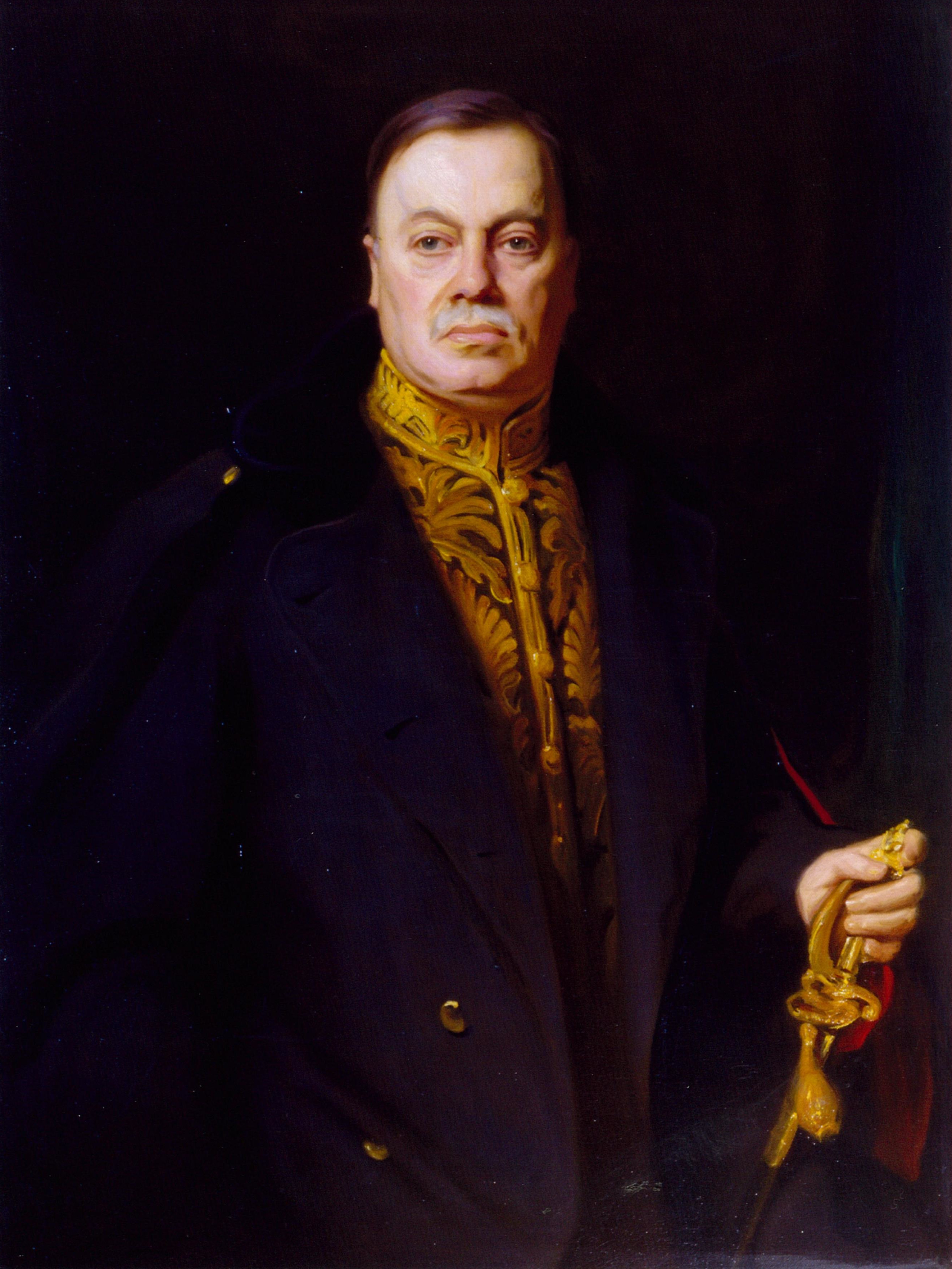
-
Newspaper proprietor and benefactor of the Inn
Harold Harmsworth was born in 1868, the son of Alfred Harmsworth, a barrister and Middle Templar, and the younger brother of the newspaper mogul Alfred Harmsworth. In 1888 he joined Alfred's newspaper company and later went on to launch the Daily Mail and the Daily Mirror. He also served in government during the First World War and continued his involvement in politics and other activities, some controversial then and now, through his newspapers in later decades. He was a significant benefactor of the Inn, establishing the Harmsworth Memorial Fund in 1924 and giving a significant collection of 16th and 17th century silver. These gifts continue to benefit the Inn and its members to this day.
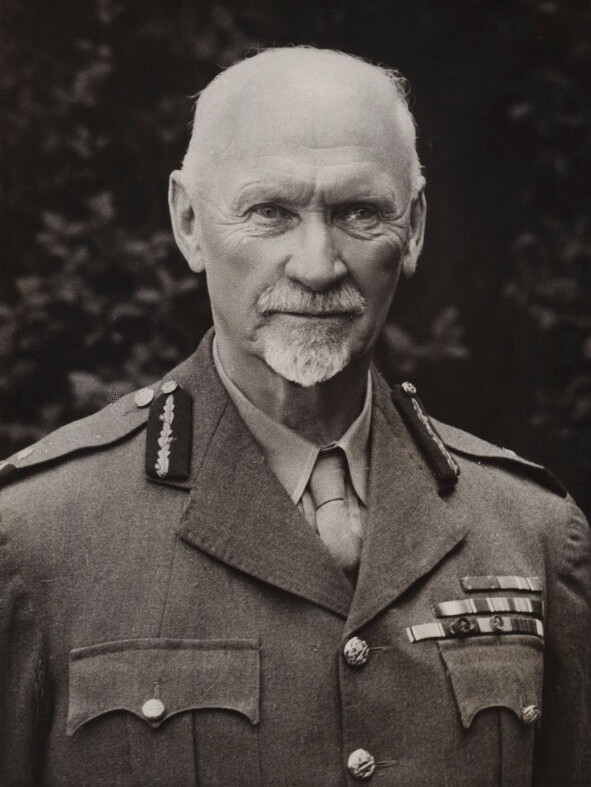
-
South African statesman and military leader
Jan Christiaan Smuts, future Prime Minister of South Africa, was born in 1870 in Cape Colony. Travelling to the United Kingdom after schooling, he matriculated at Cambridge, where he read Law. He graduated with a double First and was admitted to the Middle Temple to read for the Bar in 1892. It was not long, however, before he returned to Cape Colony, where he moved between law and the military over the next few years, finally becoming a cabinet minister in the newly constituted Union of South Africa in 1909. In 1917, Smuts was elected an Honorary Bencher of the Inn and had a distinguished record of service during World War One. After the war he returned to South Africa where he was elected Prime Minister in 1919, serving until 1924 but taking the office once again in a wartime coalition government in 1939. While initially a supporter of racial segregation, Smuts began to oppose it over time, a position which contributed to his political downfall in 1948. He died in 1950.
Jan Christian Smuts by Bassano Ltd. Bromide print, 1947. NPG x84808 © National Portrait Gallery, London. This image has been cropped and is licenced under a Creative Commons Attribution-NonCommercial-NonDerivs 3.0 Unported Licence. https://creativecommons.org/licenses/by-nc-nd/3.0/legalcode
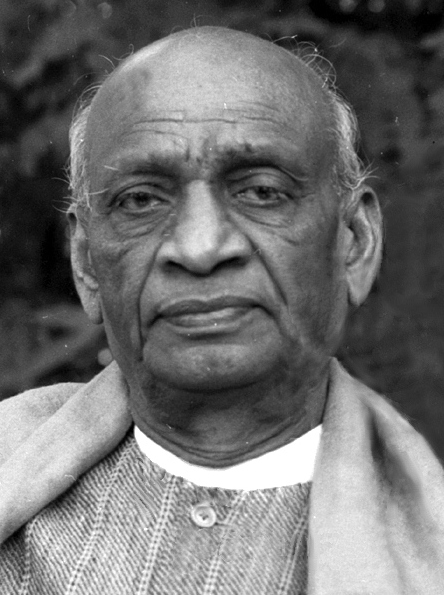
-
Indian barrister and statesman, founding father of the Republic of India
Born and raised in Gujarat, the ambitious young Patel studied the law and set up a practice, gaining a reputation for his ability and talent. Following the death of his wife in 1909, he travelled to England and was admitted to the Middle Temple in October 1910. He was Called to the Bar in January 1913. On his return to India, Patel established himself as a successful barrister and by the end of the decade had become increasingly involved with Gandhi and the fight for self-rule. Over the course of the 1920s he became more prominent in what was by then the struggle for independence and was elected President of the Indian National Congress in 1931. Following the outbreak of the Second World War, Patel was one of the leading figures in the Quit India movement. After independence, having played a prominent role in negotiation and the political integration of the new republic, he became India's first Deputy Prime Minister and Minister for Home Affairs. He died in 1950.
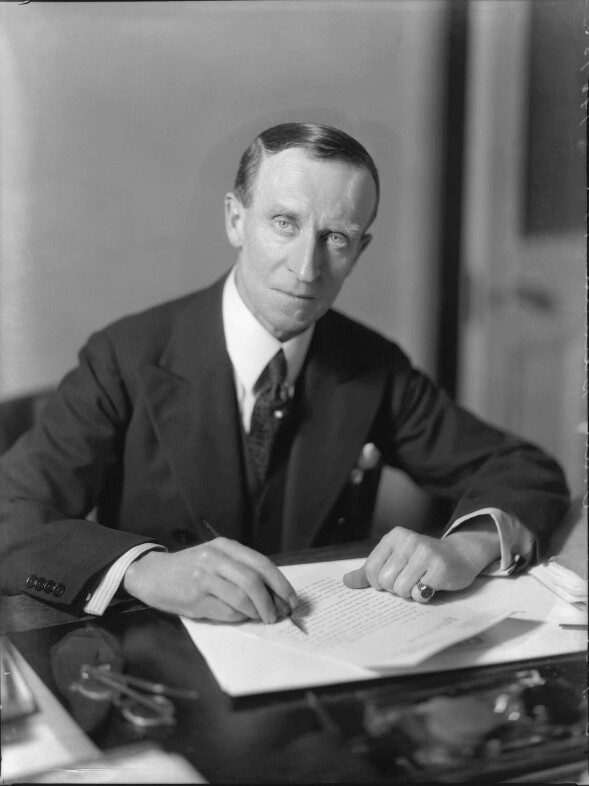
-
Novelist, historian and politician
John Buchan, born in Perth, Scotland in 1875, was a politician, novelist and historian, perhaps best-known today as the author of The Thirty-Nine Steps. He was admitted to the Inn in 1897, and lived in Brick Court and Temple Gardens, becoming the pupil of John Hamilton and Sydney Rowlatt. He initially failed his Bar exams but passed in the summer of 1901 and was Called to the Bar in June. After work involving the reconstruction of South Africa after the Boer War, he returned to the Inn in 1903 and made a name as a specialist in tax cases, publishing a significant textbook on the subject. He became editor of The Spectator in 1906, and began publishing adventure novels, including Prester John and The Thirty-Nine Steps. He also turned his literary talents to writing propaganda during World War One and became Director of Information in 1917. He established himself as an active Member of Parliament, and in 1935 was made Governor General of Canada, a position he held until his death in 1940.
John Buchan, 1st Baron Tweedsmuir by Bassano Ltd. Whole-plate film negative, 3 April 1935. NPG x81241 © National Portrait Gallery, London. This image has been cropped and is licenced under a Creative Commons Attribution-NonCommercial-NonDerivs 3.0 Unported Licence. https://creativecommons.org/licenses/by-nc-nd/3.0/legalcode
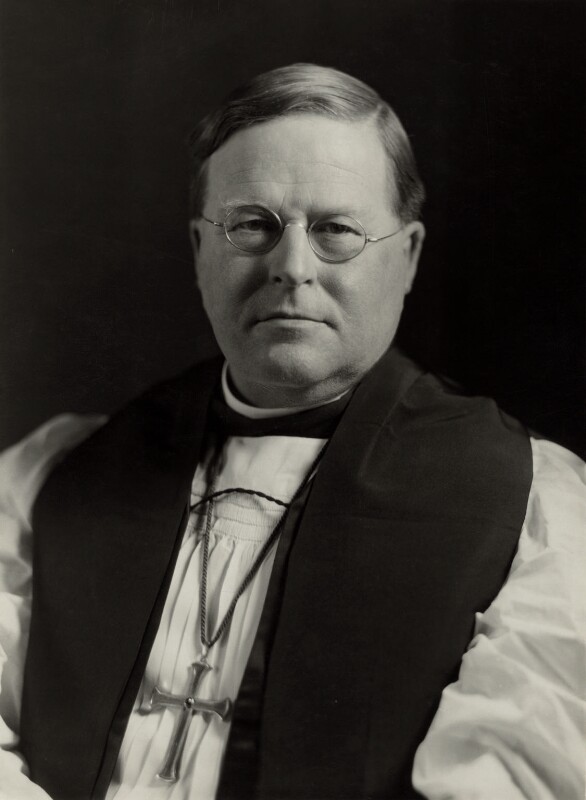
-
Archbishop of Canterbury
William Temple was born in Exeter in 1881, the son of Frederick Temple, Bishop of Exeter and later Archbishop of Canterbury. Educated at Rugby School and Balliol College, Oxford, he lectured at Oxford and was headmaster of Repton School from 1910-1914. He later served as a parish priest in London, and was appointed Bishop of Manchester in 1921, in which capacity he actively promoted measures of social improvement and fought for the interests of workers. Despite his prominent support for the Labour party, he was made Archbishop of York in 1929 by the Conservative Government, and took office as Archbishop of Canterbury in 1942, being Called as an Honorary Bencher of the Inn in the same year.
William Temple by Bassano Ltd. Bromide print, 17 March 1936. NPG x85079 © National Portrait Gallery, London
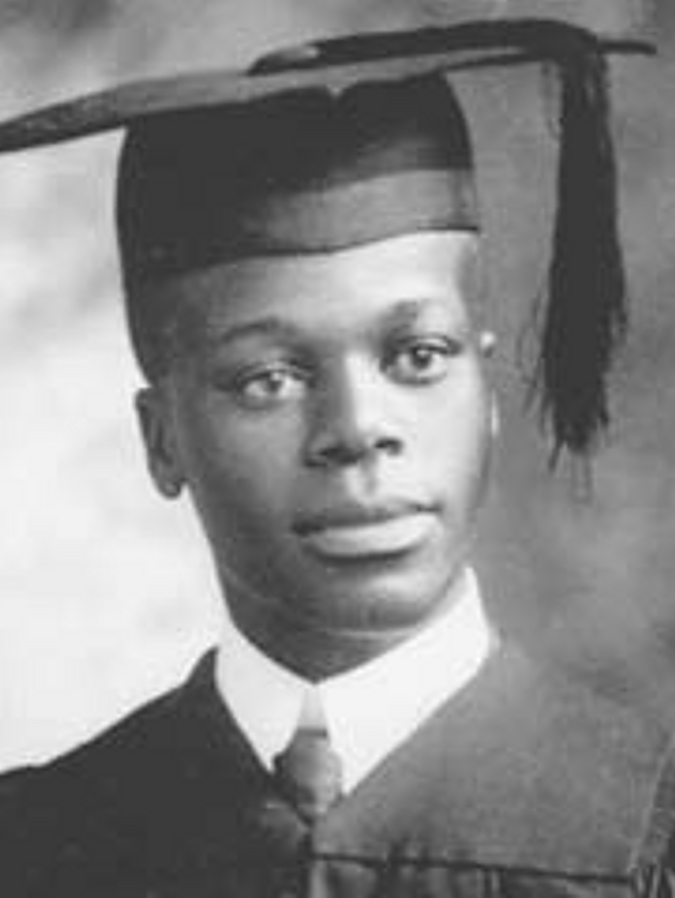
-
Founder and President of the African National Congress
Pixley ka Isaka Seme, born in the Inanda Mission, Colony of Natal (KwaZulu-Natal, South Africa), began practising as a lawyer in Johannesberg in 1910 and established the South African Native Farmers Association in 1911 in order to encourage black farmers to buy land and gain independence. In response, the white government barred black people from owning land in South Africa. After the formation of the Union of South Africa in 1910, Seme and other young African leaders established the South African Native National Congress, later the African National Congress (ANC), in order to unify various African groups from separate colonies. Seme became President of the ANC from 1930 to 1936, coinciding unfortunately with a period of decline for the organisation. In 1937, he left politics and returned to practising law.
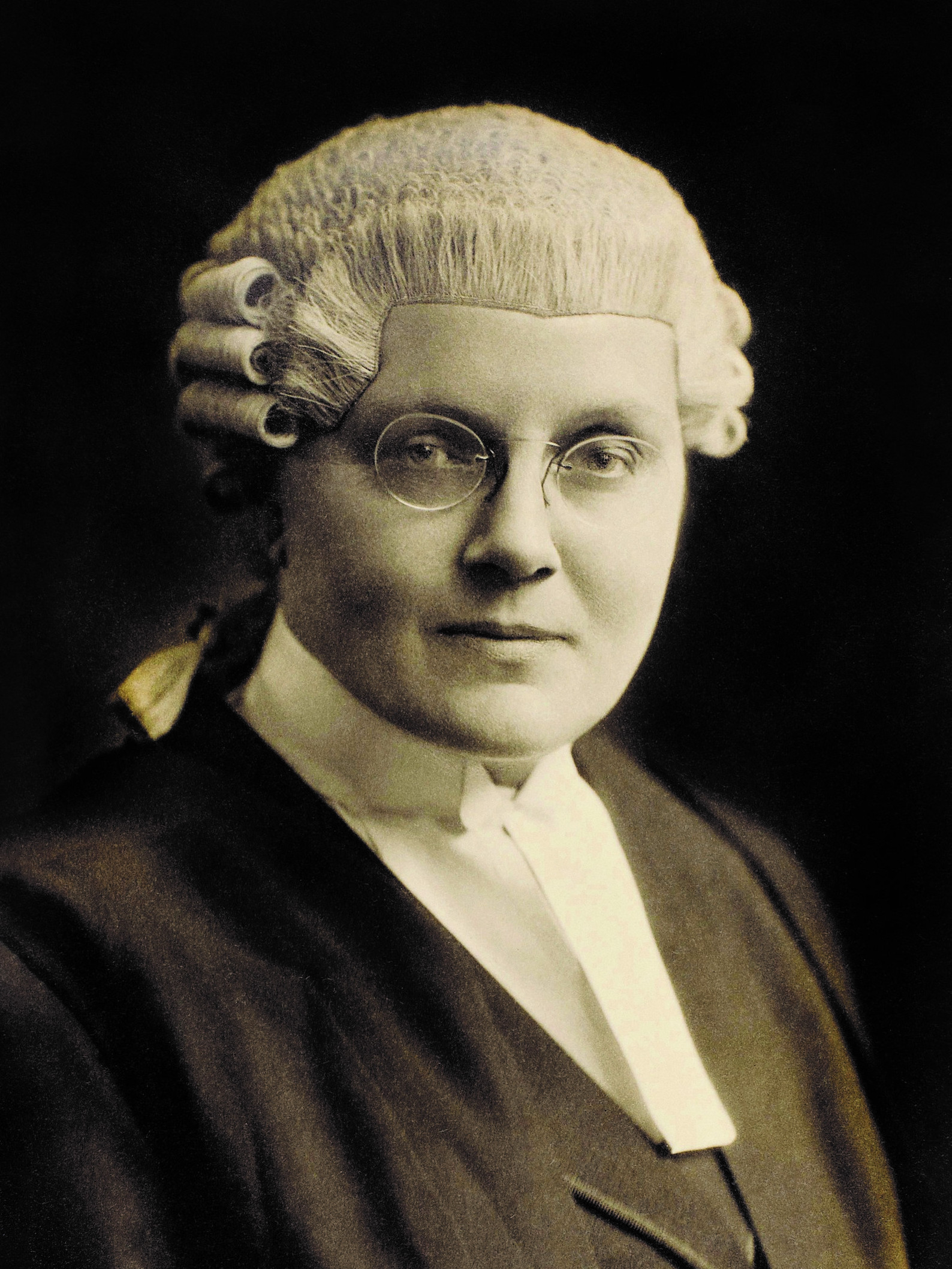
-
First woman to practice at the English Bar
Helena Normanton was born in 1882 and was educated at the University of London. After training as a teacher in Liverpool and travelling in Europe, she became increasingly intent on practicing the law, and began to study it at home. She applied in 1918 to join the Inn but was rejected by the Bench, who considered her unable to become a lawyer on the basis of her sex. Her appeal against this rejection, which took the matter to the House of Lords, was also rejected. However, following the passage of the ‘Sex Disqualification [Removal] Bill’, she was admitted to the Inn on Christmas Eve 1919, the day after the Act received Royal Assent from King George V. In 1922, she became the second woman to be Called to the Bar and was the first to practice as a barrister in the English courts. Normanton was appointed as a KC in 1949 and retired in 1951 after a successful career. During retirement she devoted her energies to the establishment of a university in Brighton and died in 1957. A silver inkstand housing a glass inkbottle from a writing table of George IV's was presented by Normanton to the Inn.
© The Women's Library, London School of Economics and Political Science
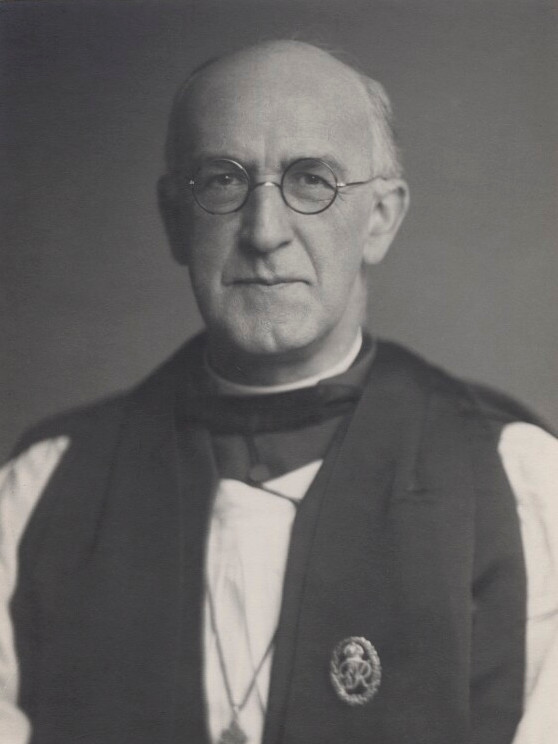
-
Archbishop of Canterbury
Geoffrey Fisher was born in 1887 and educated at Marlborough and Oxford. He became a priest in 1913 and Headmaster of Repton School in 1914. He was appointed Bishop of Chester in 1932 and of London in 1939, and then succeeded William Temple as Archbishop of Canterbury in 1944. Fisher served until 1961, presiding at the Coronation of Elizabeth II, and in 1960 was the first Archbishop of Canterbury to meet with the Pope since the English Reformation. He was made an Honorary Bencher in 1945.
Geoffrey Francis Fisher, Baron Fisher of Lambeth by Walter Stoneman. Bromide print, 1945. NPG x167551 © National Portrait Gallery, London. This image has been cropped and is licenced under a Creative Commons Attribution-NonCommercial-NonDerivs 3.0 Unported Licence. https://creativecommons.org/licenses/by-nc-nd/3.0/legalcode
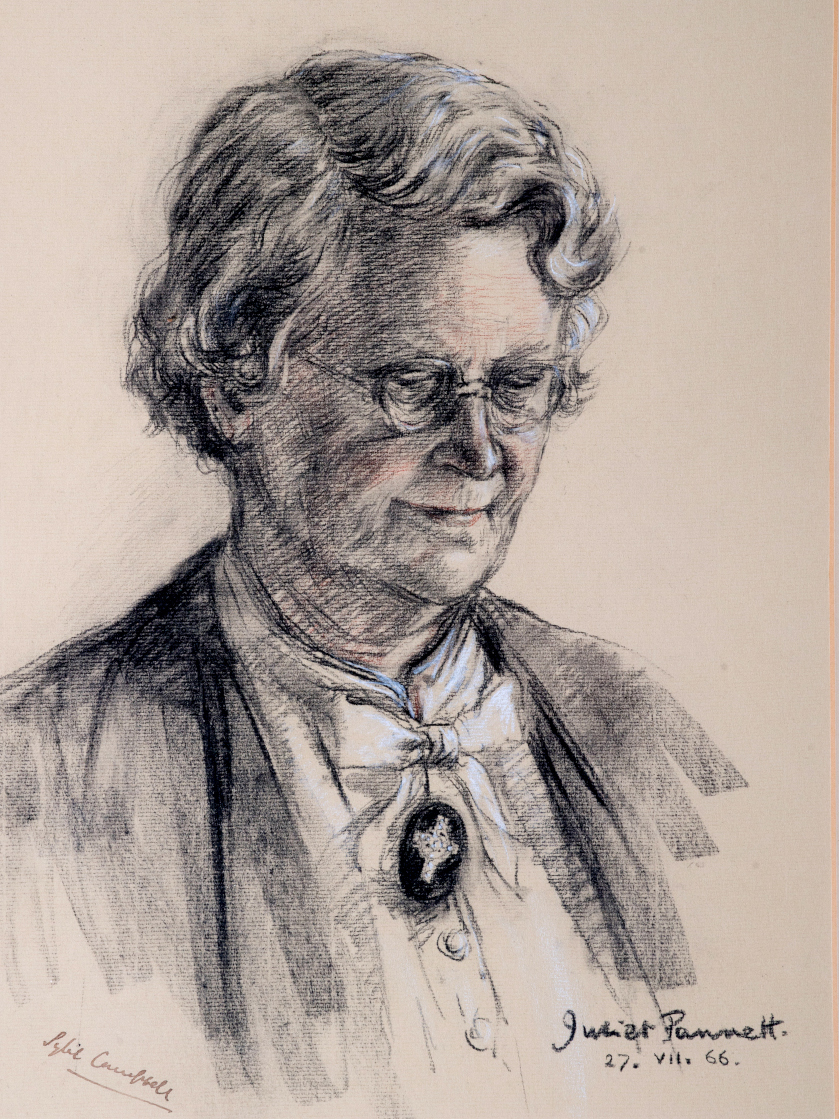
-
First woman to be appointed a stipendiary magistrate in Britain
Sybil Campbell, born in Ceylon (Sri Lanka), was the first woman to be appointed as a stipendiary magistrate in Britain when she became Metropolitan Police Magistrate at Tower Bridge Magistrates’ Court in 1945. In 1920, Campbell became one of the first cohort of women admitted the Inn and was Called alongside Helena Normanton in 1922. Prior to joining the Inn, she was an investigating officer with the Trade Boards, 1913-1918, and an enforcement officer with the Ministry of Food during the First World War. She returned to the Ministry of Food as an enforcement officer during the Second World War and was appointed as an officer of the Order of the British Empire in 1942. Campbell remained the only woman to be appointed a full-time judge in Britain until 1962.
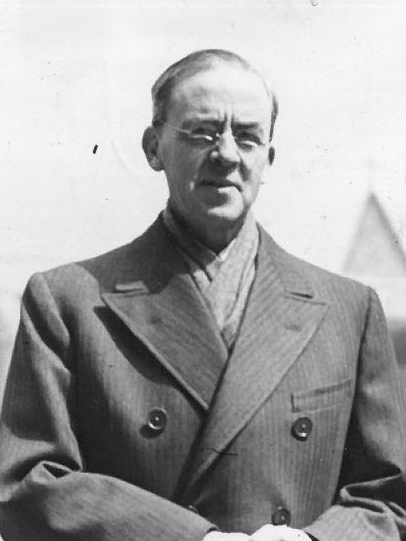
-
Labour politician, barrister and Chancellor of the Exchequer
Sir Richard Stafford Cripps was born in 1889 and, after studying Chemistry at University College London, gained admission to the Middle Temple in 1910 and was Called in 1913. After service as an ambulance driver in WWI, he spent the 1920s at the Bar before joining the Labour Party in 1930. Cripps was appointed Solicitor-General in 1931 and was elected MP for Bristol South East the same year, a seat he held until 1950. He served as Ambassador to the Soviet Union in 1940, and in 1942 was appointed to Churchill's War Cabinet as Lord Privy Seal and Leader of the House of Commons, later becoming Minister of Aircraft Production. Following the Second World War he served in Attlee's Labour government as President of the Board of Trade, and in 1947 was appointed Chancellor of the Exchequer.
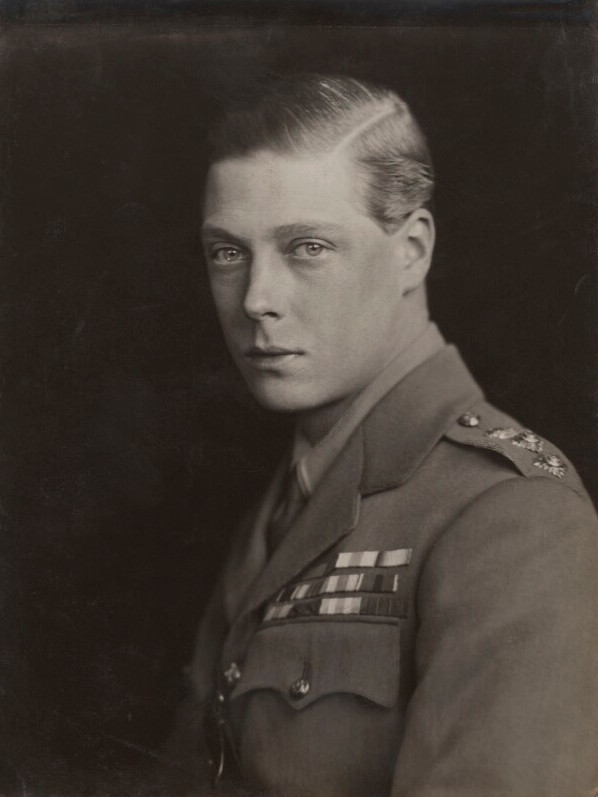
-
King of the United Kingdom and Dominions of the British Empire and Emperor of India (voluntarily abdicated), eldest son of HM King George V
HRH Edward, Prince of Wales was elected to the Bench in 1919 and the feathers of the Prince of Wales and his coat of arms were placed above the gate to honour the Inn’s newest Royal Bencher. His Highness dined twice at the Inn in 1922 and 1929. When Prince Edward became King Edward VIII for a brief period from January to December 1936, the arms above the gate were changed to the Imperial coat of arms and crown in order to signify the King’s decision to remain a Bencher – this crown was offered to Inner Temple, King George VI’s Inn, after King Edward’s abdication and subsequently disappeared. The former king, subsequently titled Prince Edward, Duke of Windsor, remained a Bencher of the Inn, but after serving for much of the Second World War as Governor of the Bahamas, spent the remaining decades of his life in France.
Prince Edward, Duke of Windsor (King Edward VIII) by Vandyk. Vintage print, 27 February 1920. NPG x130086 © National Portrait Gallery, London. This image has been cropped and is licenced under a Creative Commons Attribution-NonCommercial-NonDerivs 3.0 Unported Licence. https://creativecommons.org/licenses/by-nc-nd/3.0/legalcode
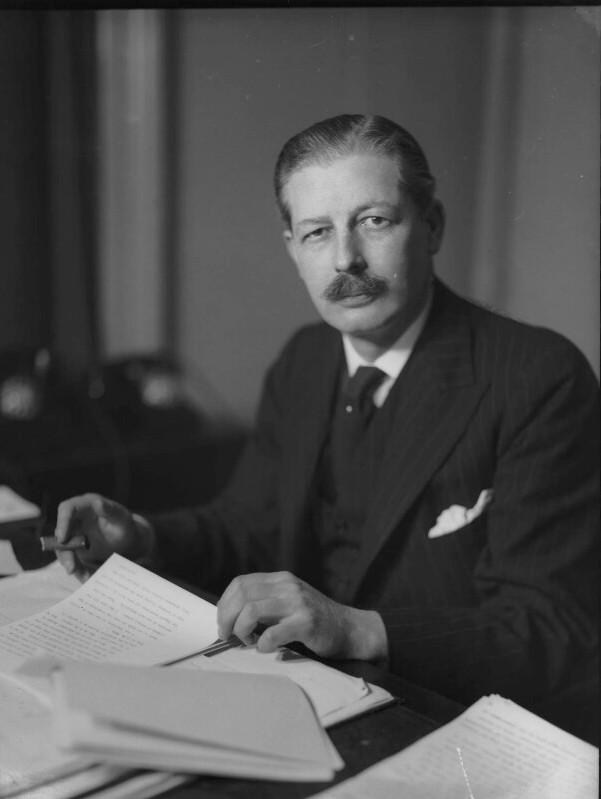
-
Conservative Prime Minister of the United Kingdom of Great Britain and Northern Ireland
Macmillan was born in 1894 and served on the front line in France during the First World War, fighting in engagements such as the First Battle of the Somme in 1916. He held various ministries under Churchill during the Second World War and succeeded Anthony Eden as Prime Minister in 1957. He was made an Honorary Bencher of the Inn the following year. Macmillan served until 1963, after which he involved himself in his family's Macmillan publishing house, and in his retirement was noted for his criticism of various of Thatcher's policies. He was made Earl of Stockton and Viscount Macmillan of Ovenden in 1984.
Harold Macmillan, 1st Earl of Stockton by Elliott & Fry. Half-plate negative, April 1942. NPG x82084 © National Portrait Gallery, London. This image has been cropped and is licenced under a Creative Commons Attribution-NonCommercial-NonDerivs 3.0 Unported Licence. https://creativecommons.org/licenses/by-nc-nd/3.0/legalcode
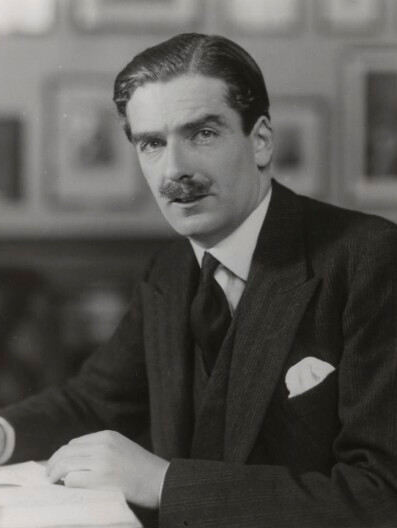
-
Conservative Prime Minister of the United Kingdom of Great Britain and Northern Ireland, wartime Foreign Secretary
Eden was born into the landed gentry in 1897 and was educated at Eton. He served in the First World War, during which he was awarded the Military Cross and fought at the Somme. After the war, he studied Oriental Languages at Oxford and was elected as a Conservative MP in 1923. He served as Foreign Secretary from 1935 to 1938, when he resigned in protest at Chamberlain's appeasement of Hitler. Eden returned to the Cabinet under Churchill, played a number of important wartime roles, and after the war became Churchill's deputy. He was made an Honorary Bencher of the Middle Temple in 1952. He eventually took over as party leader and Prime Minister in 1955, but his initially popular premiership was scuppered by the Suez crisis, which forced his resignation and retirement in 1957. He died twenty years later in 1977.
Anthony Eden, 1st Earl of Avon by Bassano Ltd. Bromide print, 17 November 1931. NPG x84149 © National Portrait Gallery, London. This image has been cropped and is licenced under a Creative Commons Attribution-NonCommercial-NonDerivs 3.0 Unported Licence. https://creativecommons.org/licenses/by-nc-nd/3.0/legalcode
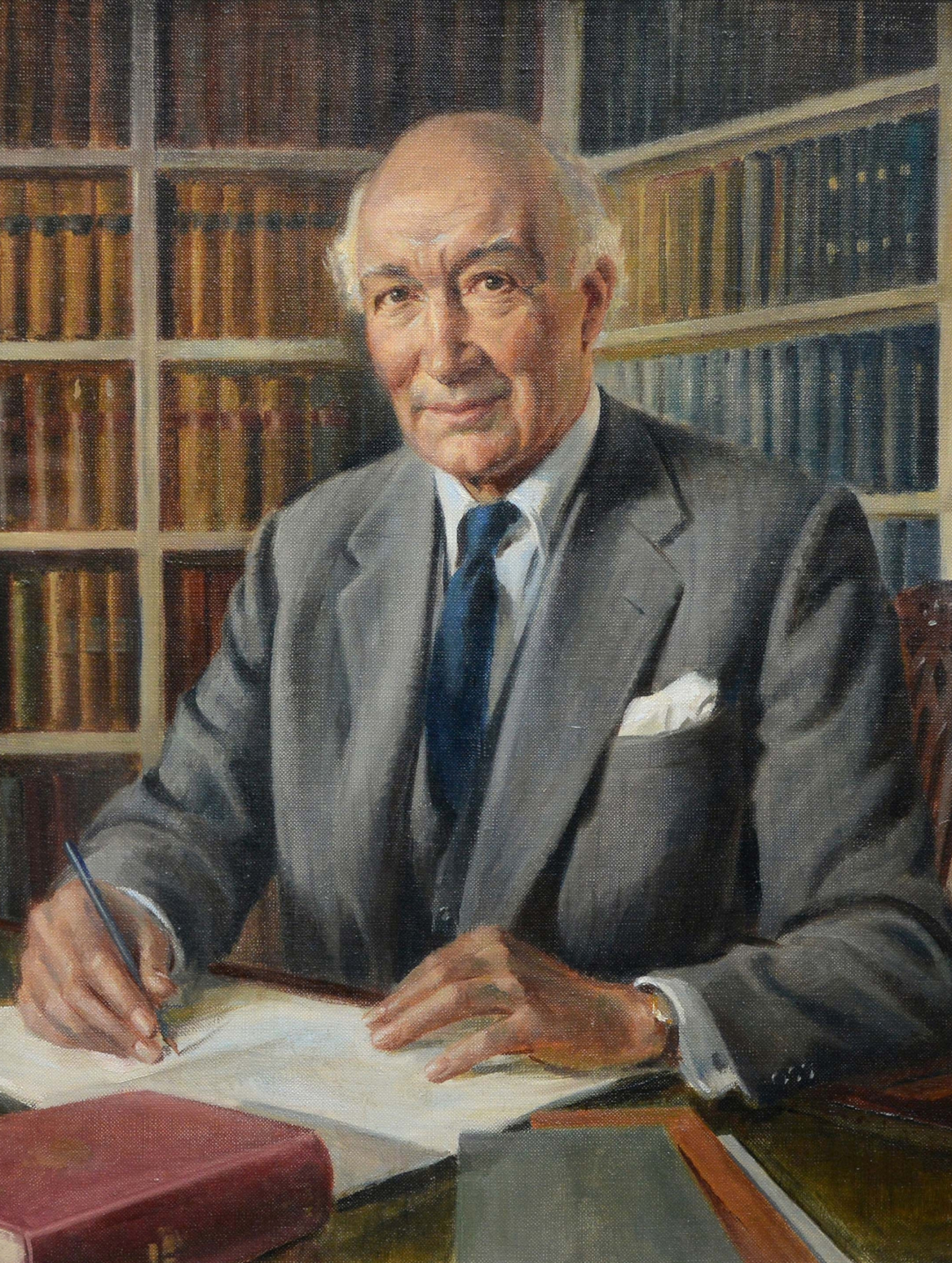
-
Lawyer and judge known as 'The People's Judge'
Alfred Thompson ‘Tom’ Denning was born in 1899 in Hampshire and studied mathematics at Oxford. His studies were interrupted by service in the First World War. After undertaking further study in Jurisprudence, he was admitted to Lincoln's Inn in 1921 and was Called in 1923. After just over twenty years at the Bar, he was appointed a High Court Judge in 1944 and then a Lord Justice of Appeal in 1948, a position in which he made several notable judgements. He continued to build his reputation in the House of Lords as a Law Lord before becoming Master of the Rolls in 1962, a position he held until retirement in 1982. He was made an Honorary Bencher of the Inn in 1972, and is remembered for his individualism and boldness.
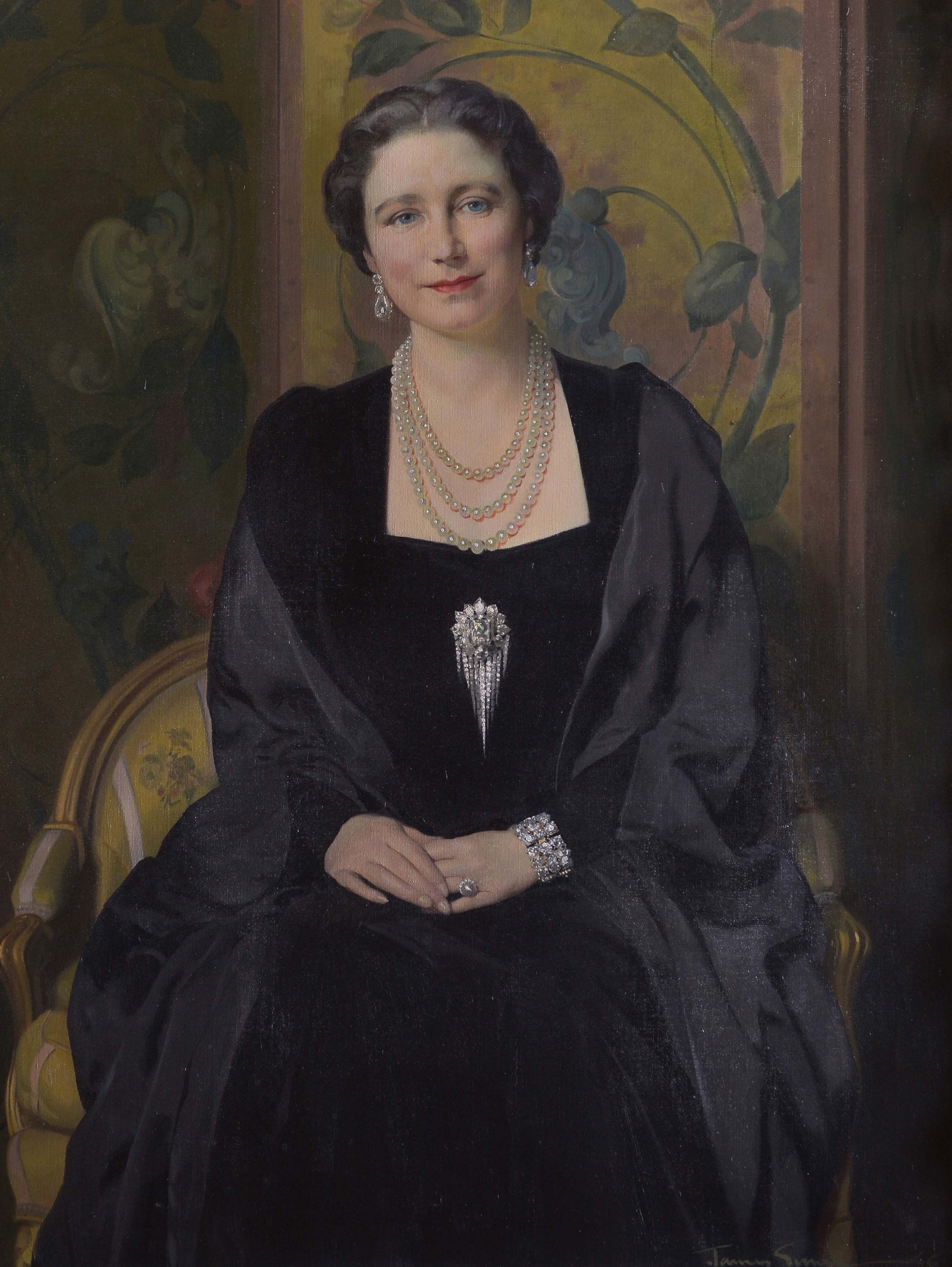
-
Queen Consort of HM King George VI, mother of HM Queen Elizabeth II
HM Queen Elizabeth was Called to the Bench in 1944 despite falling German rockets and was the first female Bencher of the Society. After the war, Her Majesty visited to view many of the restoration works in progress at the Inn, opening a temporary Library in 1946, the restored Hall in 1949, the Queen Elizabeth Building in 1957, the new Library in 1958, and was also present at the rededication of Temple Church in 1958. In 1949, she was elected Treasurer of the Inn in the same year her husband, HM King George VI, was Treasurer of Inner Temple and gifted the Society with a monogramed silver snuff box. A Joint Bench Dinner was held in Middle Temple Hall to celebrate the Treasurership of the two monarchs, which was immortalised in a painting by Terence Cuneo that now hangs in the Queen’s Room. The Queen Mother became a reliable presence at Grand Day and Family Dinners throughout her lifetime, attending her last Family Dinner three months before her death in 2002. Her fondness for the Middle Temple was returned in equal part by the Inn’s membership and she is remembered for her remarkable warmth and charm.
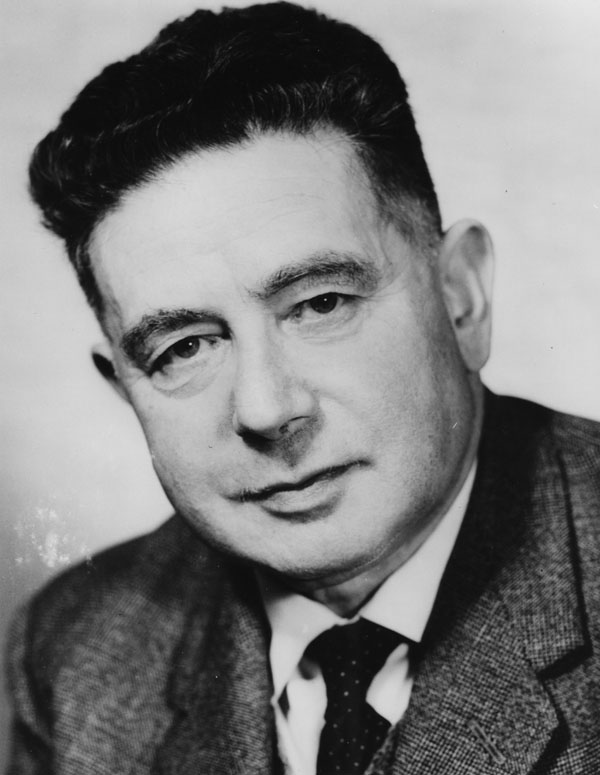
-
Law scholar, professor at the London School of Economics and University of Oxford
Otto Kahn-Freund was born in 1900 in Frankfurt am Main, the only son of a German-Jewish family, receiving a strict and conventional Jewish upbringing. He was educated at the Goethe-Gymnasium, Frankfurt, read law at Frankfurt University and became a judge in the Berlin Labour Court in 1929. In 1933, shortly after Hitler seized the Chancellorship, he delivered a judgement following the principles of judicial independence in favour of radio technicians accused of Communist support. As a result of this judgement he was dismissed from the judiciary, interrogated and put under observation by the Gestapo. A few months later, he and his wife travelled on holiday to the United Kingdom - they did not return.
Kahn-Freund enrolled at the London School of Economics to study English Law, and in 1936 was Called to the Bar at the Middle Temple. He was later appointed a Professor of Comparative Law at the University of Oxford and became a fellow of Brasenose College in 1964. He became Queen’s Counsel in 1972 and was knighted in 1976. Made an Honorary Bencher in 1969, a QC in 1972 and knighted in 1976, Kahn-Freund is best known for the establishment of labour law as a separate area of study in Britain and was the senior lawyer on the Donovan Commission, which reported in 1968 and was highly significant in the development of British labour law.
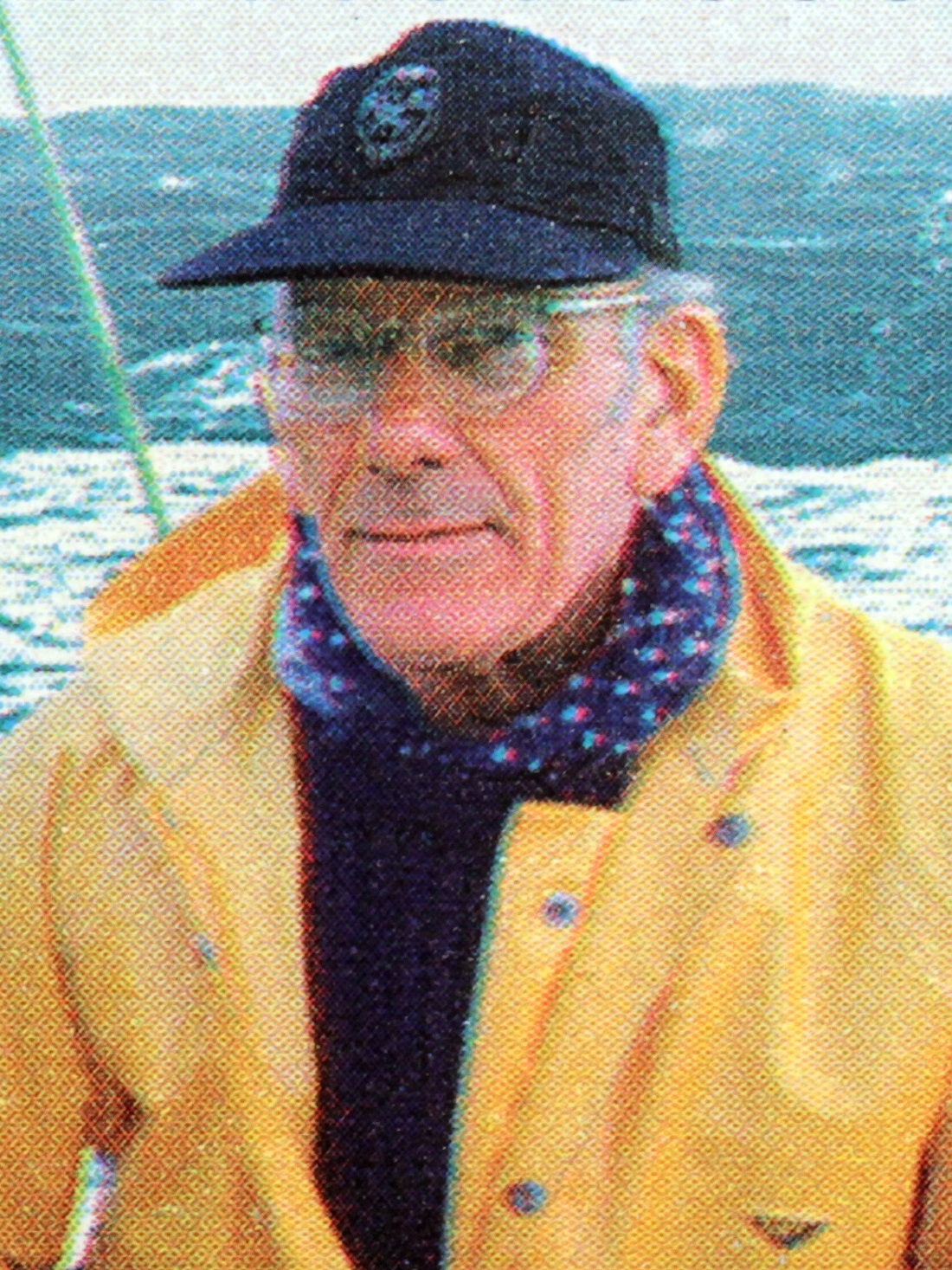
-
Aviator and sailor
Francis Chichester was born the son of a clergyman in 1901, and after his education emigrated to New Zealand where he became a successful businessman. Returning to England in 1929 during the Great Depression, he learnt to fly and began to attempt world records. He was involved in flight navigation during the Second World War and in the 1950s and 1960s became a keen yachtsman, becoming the first person to circumnavigate the world solo by the 'clipper route'. He was made an Honorary Bencher in 1967. The hatch cover from his yacht is displayed in the Prince’s Room.
© Sergey Goryachev / Shutterstock.com
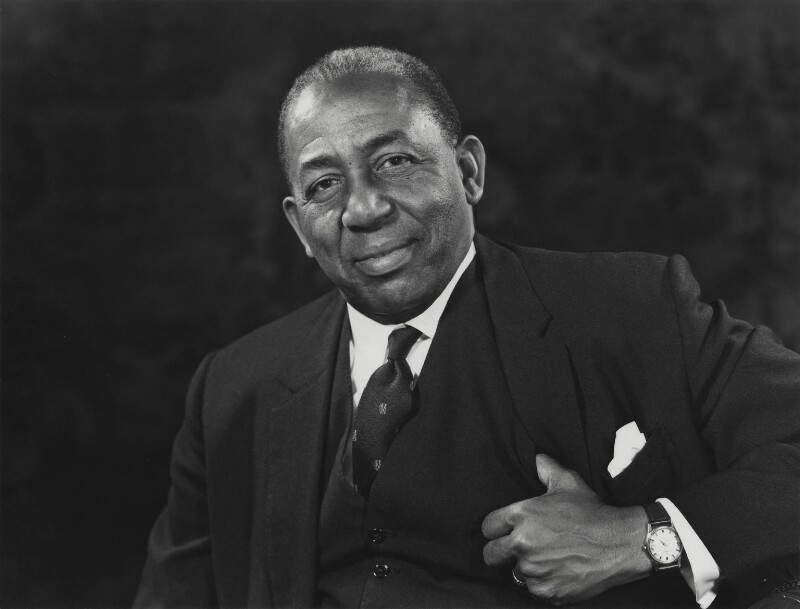
-
West Indian cricketer, lawyer, politician and the UK's first black peer
Learie Constantine was born in Trinidad in 1901 to Lebrun Constantine, the grandson of enslaved people and the overseer of a cocoa estate. On leaving school in 1917 he was briefly clerk to a firm of solicitors, but his legal career was swiftly overtaken by a glittering career in professional cricket, as a member of the West Indies team and later several English clubs. Intending to return to the law, he was admitted to the Inn in 1944, although he continued playing and writing about cricket. In the late 1940s he served as chairman of the League of Coloured Peoples, president of the Caribbean Congress of Labour and a member of the Colonial Social Welfare Advisory Committee. He was Called to the Bar in 1954 and returned to Trinidad.
He became involved in politics and in 1956 became Trinidad’s Minister for Communications, Works and Utilities, later participating in negotiations leading to Trinidad’s independence from Great Britain. In 1962 he was knighted and appointed Trinidad and Tobago’s first High Commissioner in London, in which position he spoke out on domestic racial issues, and in 1963 he was made an Honorary Bencher of the Inn. He spent the remainder of his life living in London, writing and broadcasting on cricket, race and the Commonwealth, and in 1969 was awarded a life peerage, becoming the first black man to sit in the House of Lords. He died in 1971 and received a state funeral in Trinidad.
Learie Constantine by Godfrey Argent. Bromide print, 1 November 1967. NPG x21932 © National Portrait Gallery, London
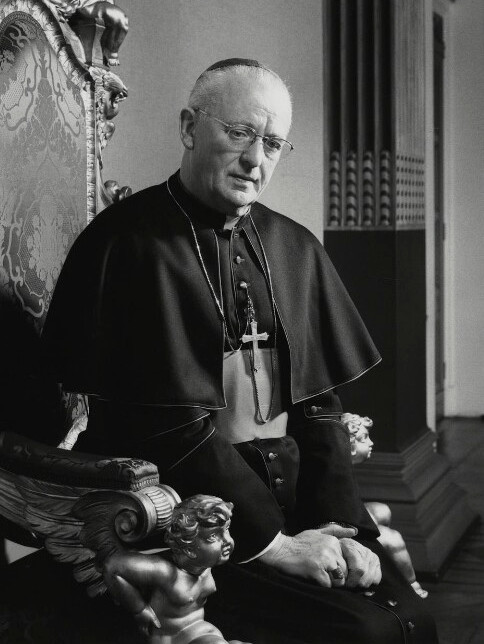
-
Prominent Roman Catholic Cardinal, Archbishop of Westminster
Cardinal John Heenan was a prominent Englishman in the Roman Catholic Church. Born in Ilford, he was ordained in 1930 and was appointed Bishop of Leeds in 1951. He became Archbishop of Westminster in 1963, took part in the Second Vatican Council, and became a Cardinal in 1965. He was made an Honorary Bencher in 1968.
John Carmel Heenan by Godfrey Argent. Bromide print, 24 February 1969. NPG x166008 © National Portrait Gallery, London. This image has been cropped and is licenced under a Creative Commons Attribution-NonCommercial-NonDerivs 3.0 Unported Licence. https://creativecommons.org/licenses/by-nc-nd/3.0/legalcode
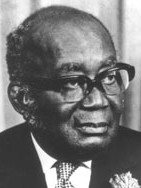
-
President of the Republic of Ghana
Edward Akufo-Addo, born in Dodowa, Ghana, in 1906, was one of the founding fathers of the Republic of Ghana. In 1947 he became a founding member of the United Gold Coast Convention (UGCC) and was one of the "Big Six" detained after disturbances in Accra in 1948. From 1949-1950, he was a member of the United Gold Coast Legislative Council and the Coussey Consititional Commission. After Ghana declared independence from British rule, Akufo-Addo was appointed a Supreme Court Judge and Chief Justice from 1966-1970. In 1970, he became the 2nd President of the Republic of Ghana serving until his deposition by a military coup d'état in 1972.
-
Chief Justice of the Supreme Court of Nigeria
Ademola was born the son of Prince Ladapo, later Ademola II, Alake of Egbaland in Nigeria. After an education in Nigeria, he joined the colonial Civil Service in 1925 and later studied law at Cambridge. He was Called to the Bar at the Inn in 1934, in which year his father was a guest of honour at the Middle Temple Garden Party. Starting a private practise in Nigeria in 1936, he was appointed Magistrate of the Protectorate Court in 1939 and was later Chief Justice for Western Nigeria in 1955, the first Nigerian head of judiciary. He was knighted in 1957 and appointed a member of the Privy Council in 1963, also being awarded a KBE and the title Grand Commander of the Order of Niger by the government of the Republic of Nigeria.
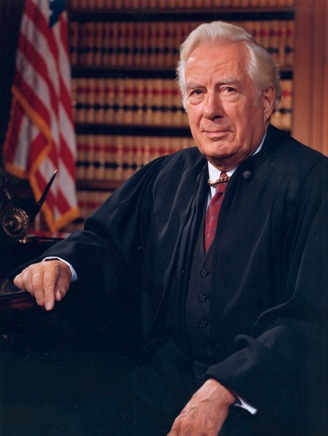
-
Chief Justice of the United States of America
Burger was born in 1907 in Saint Paul, Minnesota, and attended St. Paul College of Law in 1931. After a lengthy judicial career, he was made Chief Justice of the United states in 1969, an office he held until 1986. He was made an Honorary Bencher in 1971. In 1974 one of his court rulings played a pivotal role in President Nixon’s resignation after the Watergate Scandal.
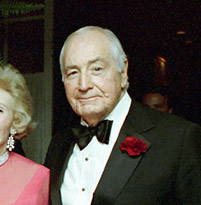
-
American publisher, philanthropist and diplomat
Walter Annenberg was born in 1908 and took over his family's media businesses following his father's death in 1942. He greatly expanded his publishing empire over the following years, became involved in politics, and was appointed US Ambassador to the UK in 1969 by Richard Nixon. He donated considerable sums of money to educational, cultural and civic institutions. He was made an Honorary Bencher in 1969 and died in 2002.
-
Soldier and Barrister, Prosecuting Counsel at Nuremburg and Judge.
Born in Hampstead and educated at Eton and Trinity, Cambridge, Griffith-Jones was Called to the Bar at the Middle Temple in 1928. Serving with the Coldstream Guards during the Second World War, he was awarded the Military Cross in 1943 and after the war was one of the prosecuting counsel at the Nuremburg Trials. Returning to the Bar in 1946, he was junior counsel for the prosecution of Ruth Ellis, the last woman to be hanged in the UK, in 1955. He became Senior Treasury Counsel and a founding member of the Criminal Law Revision Committee in 1959, and became known for prosecuting obscenity cases, most notably in 1960 when he led the prosecution of Penguin Books for publishing Lady Chatterley’s Lover. He served as Recorder of Grantham and of Coventry and in 1964 became a full time judge, presiding over criminal cases at the Old Bailey as the Common Serjeant of London until 1979.
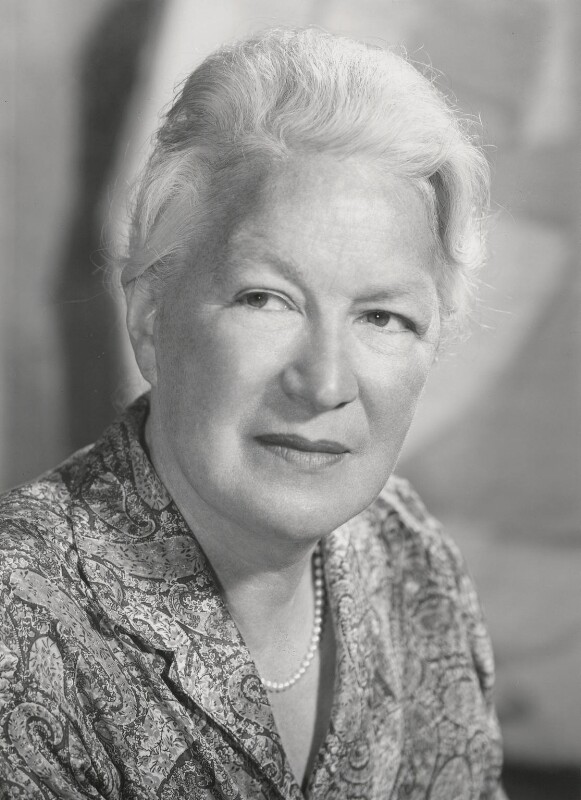
-
Historian
Cicely Wedgwood was born in Northumberland, a descendant of the pottery entrepreneur Josiah Wedgwood. After reading classics and modern history at Lady Margaret Hall, Oxford, she became a noted specialist in European sixteenth and seventeenth century history, in particular the English Civil War, on which she wrote a great many successful books. Well respected in academic circles, she was also a successful broadcaster, being invited by the BBC to present her impressions of the coronation of Queen Elizabeth II in 1953. She became the third woman to be appointed a member of the Order of Merit in 1969, and was elected an Honorary Bencher of the Inn in 1978.
Dame Cicely Veronica Wedgwood by Godfrey Argent. Bromide print, 8 April 1969. NPG x21964 © National Portrait Gallery, London.
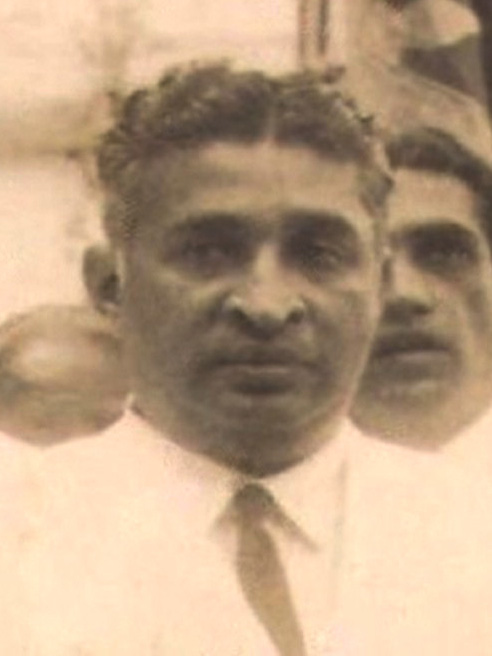
-
2nd Prime Minister of Ceylon (Sri Lanka)
Dudley Shelton Senanayake was born to the wealthy Senanayake family, which was active in colonial era politics. His father, Don Stephen Senanayake, led Ceylon’s (Sri Lanka's) independence movement and became its 1st Prime Minister. In 1935, Senanayake took oaths as an Advocate of the Supreme Court of Ceylon and succeeded his father as Minister of Agriculture and Lands in the second board of ministers of the state council in 1946. In 1947, he was elected to the first parliament of independent Ceylon and was reappointed to his ministry by his father. After the unexpected death of his father in 1952, Senanayake was appointed as the 2nd Prime Minister of Ceylon. In 1953, following widespread civil disobedience and strikes, he resigned from the position on the grounds of ill health. Senanayake returned to politics in 1957, winning a second term as Prime Minister in 1960. He resigned from the position only four months later and became leader of the opposition. He won his third and longest term as Prime Minister in 1965 and served for five years before being defeated in the 1970 elections. Senanayake is remembered for his legacy of simplicity, democratic toleration and moderation. He carried forward his father's legacy by continuing agricultural reforms and large-scale projects.
© Mrs P.K.Tennakoon. This image has been cropped and is licenced under a Creative Commons Attribution-NonCommercial-NonDerivs 3.0 Unported Licence. https://creativecommons.org/licenses/by-nc-nd/3.0/legalcode
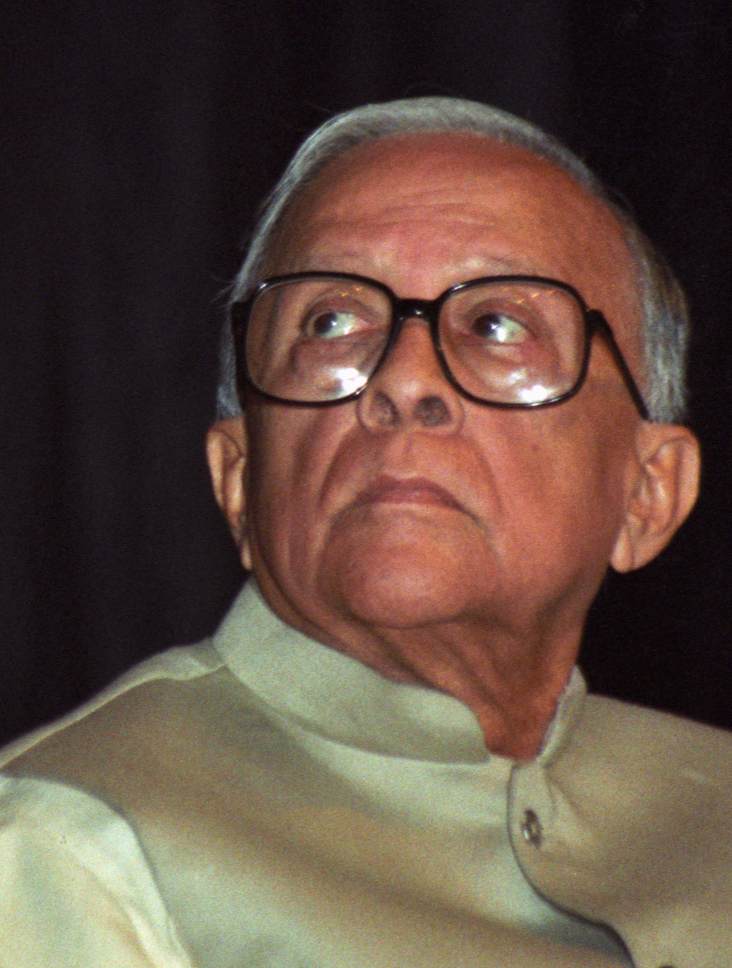
-
Chief Minister of West Bengal State
Jyoti Basu, born in Calcutta (Kolkata), India, in 1914, was the longest serving chief minister in an elected democracy at the time of his resignation. In 1940, Basu inducted himself as an activist affiliated to the Communist Party of India (CPI) and was elected to the Bengal Legislative Assembly in 1946, which became the West Bengal Legislative Assembly after the Partition of India in 1947. Following the 1952 election, Basu was unanimously elected as the legislative party leader for the CPI in West Bengal. Basu split from the CPI in 1964 and co-founded a new party, the Communist Party of India (Marxist) (CPI(M)). In 1977, the CPI(M) won a majority and Basu became the Chief Minister of West Bengal for twenty-three years until his retirement in 2000. His government made strides towards literacy and rural development in West Bengal, with his land reforms receiving particular praise. He also played a large role in the actualisation of a commuter rail project in Kolkata, but was criticised for his industrial policies. His death in 2010 was followed by public mourning on an unprecedented scale.
© Biswarup Ganguly. This image has been cropped and is licenced under a Creative Commons Attribution-NonCommercial-NonDerivs 3.0 Unported Licence. https://creativecommons.org/licenses/by-nc-nd/3.0/legalcode
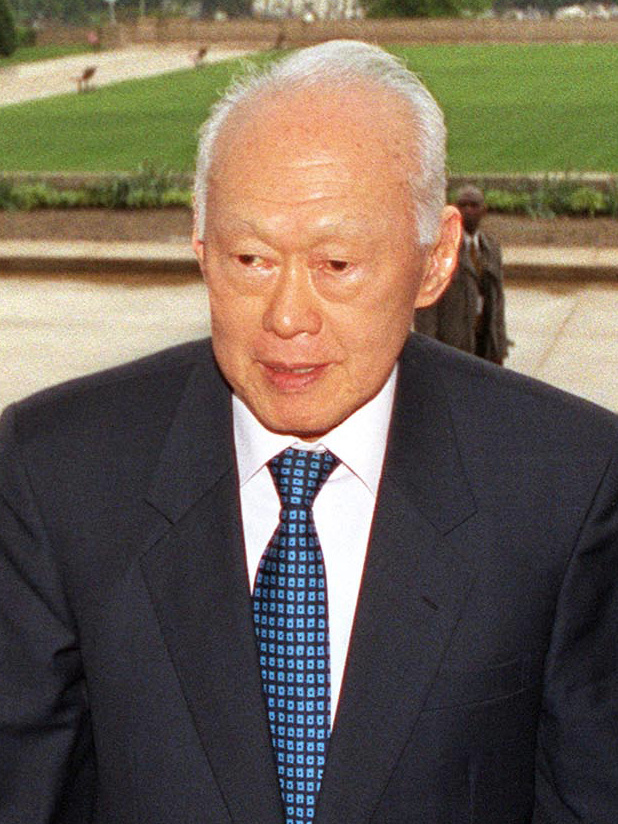
-
First Prime Minister of Singapore
Lee Kuan Yew was born in colonial Singapore in 1923, and was educated first in Singapore, and later at the London School of Economics and the University of Cambridge, where he graduated at the top of his cohort for Law. Having been admitted to the Inn in 1946, he was Called in 1950 and returned to Singapore to practice law. He became involved with Singaporean politics, founding the People's Action Party in 1954, and became the first Prime Minister of Singapore in 1959. He continued in this position through a 1963 union with Malaysia and then full independence for his nation in 1965, serving until 1990.
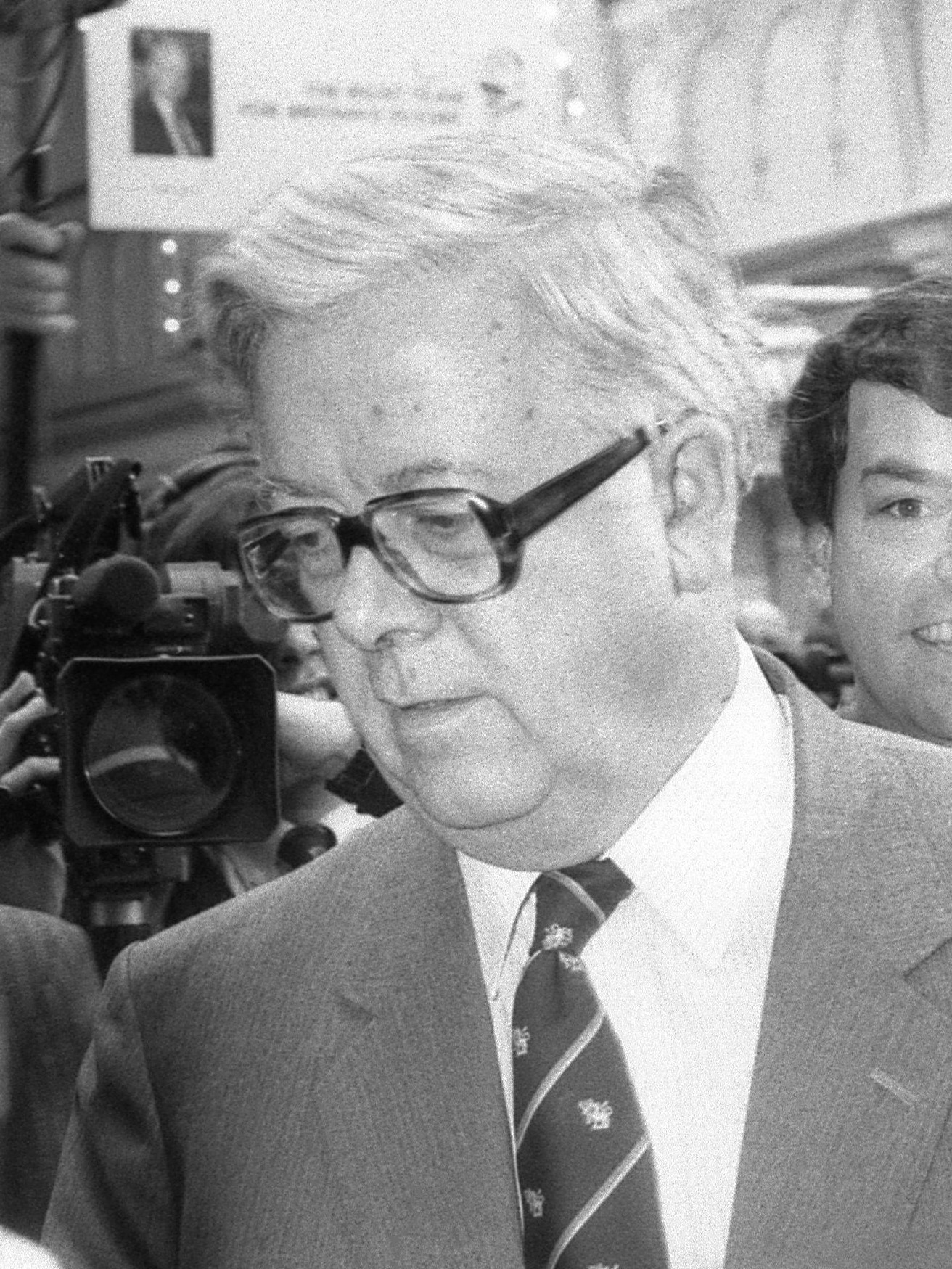
-
Conservative politician and Chancellor of the Exchequer under Prime Minister Margaret Thatcher
Born in Wales in 1926, Howe was educated at Winchester and ran the school's Home Guard during the Second World War. After completing National Service, he read law at Trinity Hall in Cambridge, before being admitted to the Inn in 1945 and Called in 1952. Howe was made a QC in 1965, while serving briefly as MP for Bebington. He returned to Parliament in 1970 and served in Heath's government as Solicitor-General and Minister of State for Trade and Consumer Affairs, and later served under Margaret Thatcher as Chancellor of the Exchequer and Foreign Secretary. His resignation from the government in 1990 was a famously critical blow to Thatcher, catalysing the subsequent challenge to her leadership. He served in the Lords between 1992 and 2015, dying later that year.
© David Fowler / Shutterstock.com
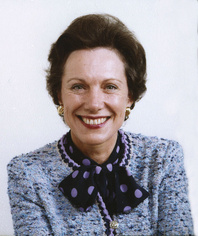
-
U.S. diplomat and Republican politician
Born in New Orleans, Louisiana and educated at Vassar College, Anne moved to Texas in 1950 and established herself in Republican politics. She served as Vice Chairman of the Texas Republican Party from 1966-1968 and Co-Chairman of the RNC from 1971-1973. Named Counsellor to President Nixon in 1972 (continuing in the role under Gerald Ford), she later made history as the first female United States Ambassador the United Kingdom, appointed in 1976, being Called as an Honorary Bencher of the Inn in that year. Awarded the Presidential Medal of Freedom in 1987, she served on the boards of many US corporations and non-profit organisations and was a member of the Founding Council of the Rothermere American Institute. She died in Houston in 2008.
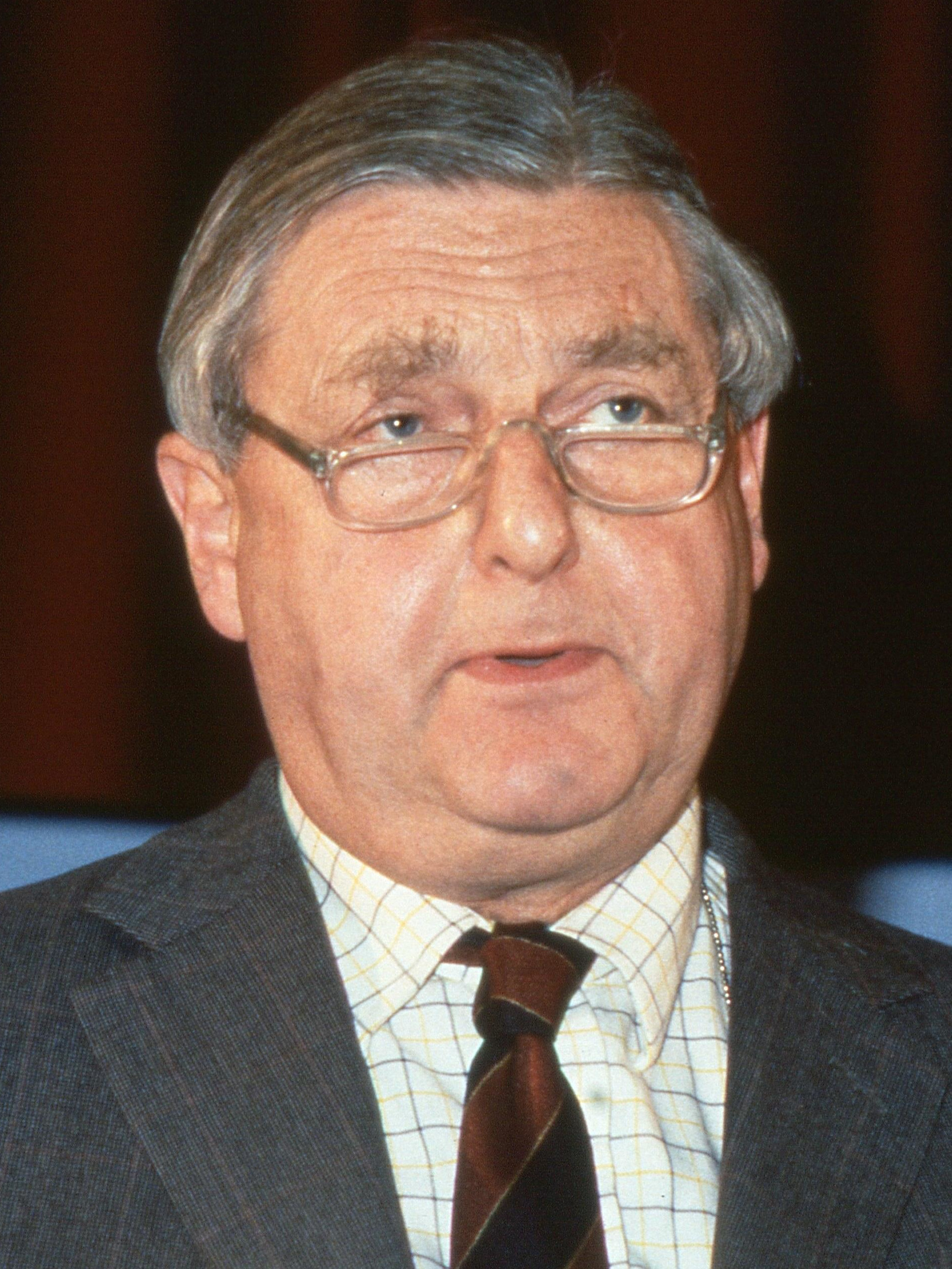
-
Barrister, Conservative politician, Attorney General and Secretary of State for Northern Ireland
Mayhew was born in 1929, and attended Tonbridge School and Balliol College, Oxford. He was admitted to the Inn in 1951 and was Called in 1955. Mayhew was elected a Member of Parliament in 1974 and served under Margaret Thatcher and John Major as Solicitor General, Attorney General and Secretary of State for Northern Ireland. He stood down as an MP in 1997, and was given a life peerage, serving in the House of Lords until 2015.
© David Fowler / Shutterstock.com
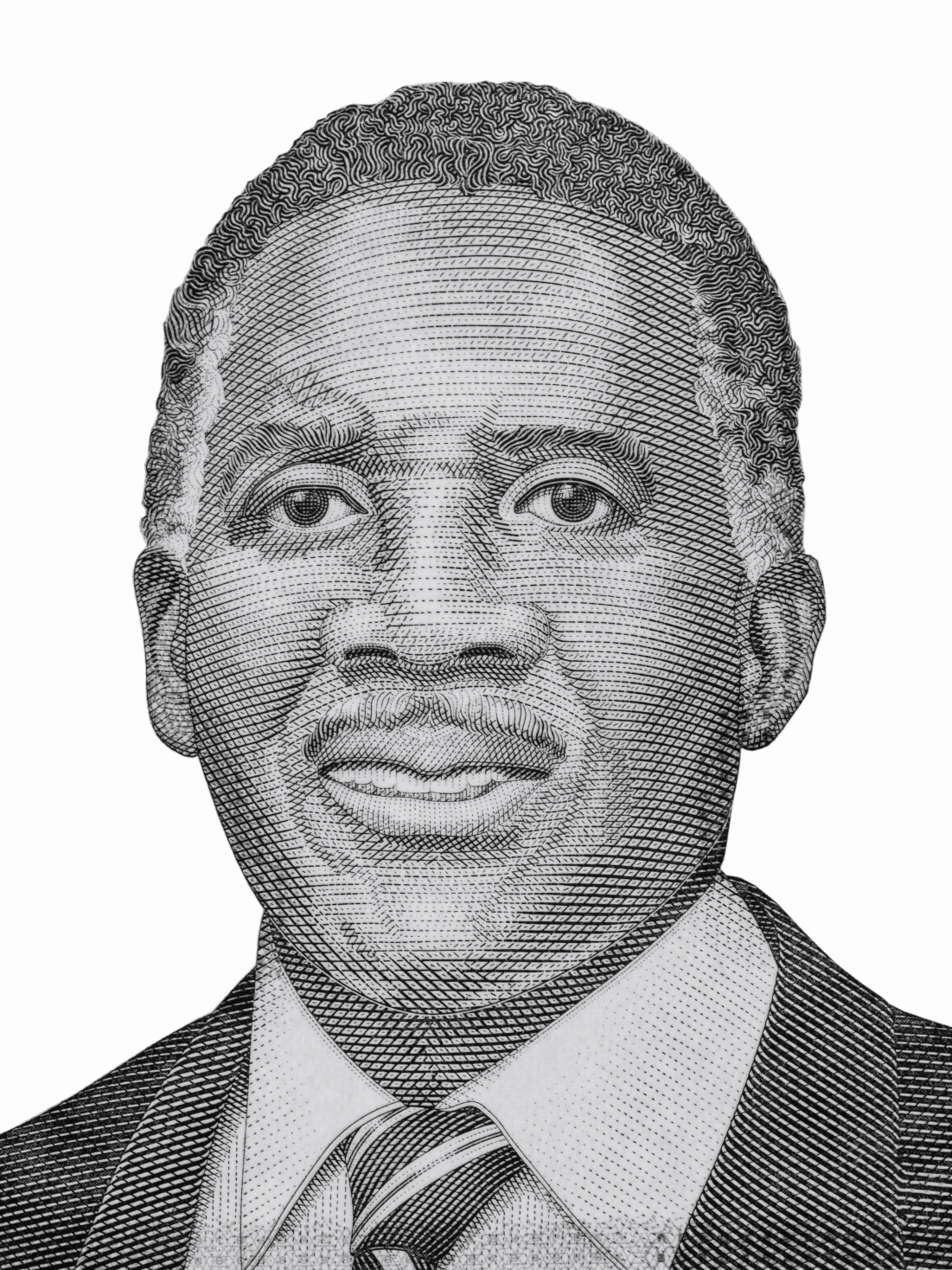
-
1st Prime Minister of the Bahamas
Sir Lynden Pindling, born in Nassau in 1930, is regarded in the Bahamas as ‘the Father of the Nation. He studied law at King’s College, University of London from 1948 to 1952 and was admitted to the Inn in 1948, being Called to the Bar in 1953. At the end of 1953, Pindling joined the newly formed Progressive Liberal Party (PLP) as its legal advisor and was elected Parliamentary Leader of the party in 1956. On a day in 1965 known in Bahamian history as 'Black Tuesday', he delivered a dramatic speech in the House Assembly and ended it by throwing the Speaker's Mace into the street. He was elected Prime Minister in 1967 and formed the first black government in Bahamian history. Pindling led the Bahamas to independence from Great Britain on 10 July 1973. His government introduced social security measures such as a National Insurance Scheme, formed the College of The Bahamas, the Royal Bahamas Defence Force and other organisations. The PLP was defeated in the 1992 election and Pindling retired from politics soon thereafter.
© Shutterstock.com
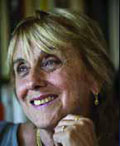
-
Historian
Lisa Jardine (née Bronowski) was born in Oxford, the daughter of mathematician Jacob Bronowski, and was educated at Cheltenham Ladies’ College and Newnham College, Cambridge, where she moved to studying English in her final year. Fluent in 8 languages, her PhD thesis at Cambridge was on Francis Bacon: Discovery and the Art of Discourse and she later became Professor of Renaissance Studies at Queen Mary, University of London; a Fellow of the Royal Historical Society; and a Fellow of King’s College, Cambridge. A trustee and patron of many historical and cultural organisations, Jardine was a Member of Council of the Royal Institution and was the founding director in 2009 of UCL’s Centre for Interdisciplinary Research in the Humanities. Appointed a Director of the National Archives in 2011 and elected an Honorary Bencher of the Inn in 2012, she authored seventeen full-length books and more than fifty scholarly articles in her lengthy career.
© The Royal Society. This image has been cropped and is licenced under a Creative Commons Attribution-NonCommercial-NonDerivs 3.0 Unported Licence.
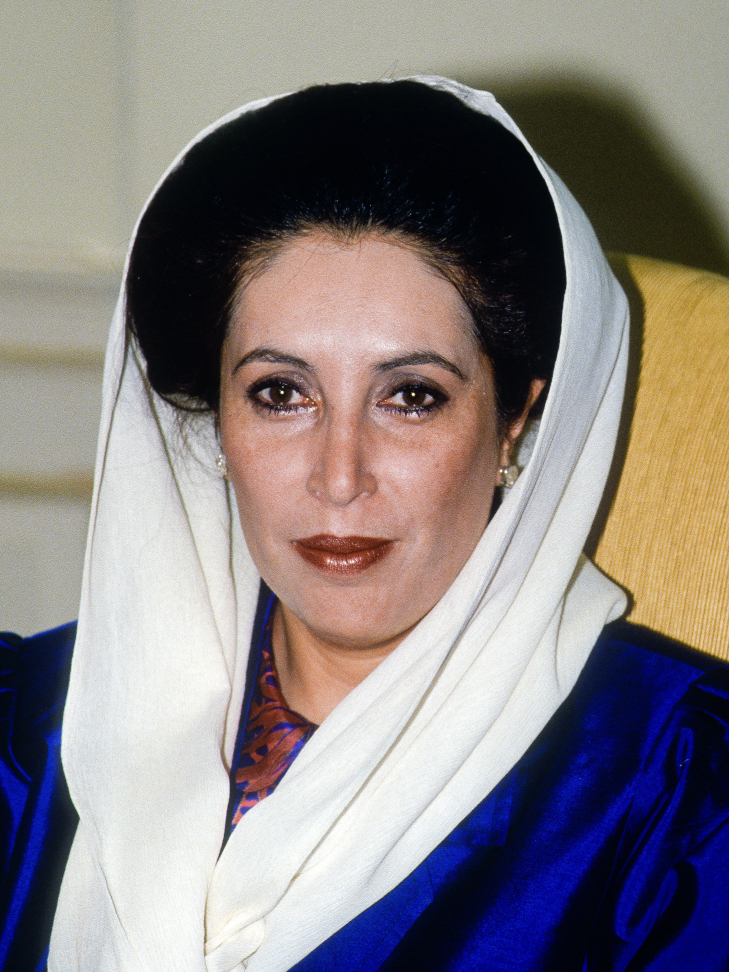
-
Prime Minister of the Islamic Republic of Pakistan
Benazir Bhutto, born in Karachi, Pakistan, in 1953, was the first woman to head a democratic government in a Muslim majority nation. Ideologically a liberal and a secularist, she chaired the Pakistan People’s Party (PPP), which was founded by her father in 1967. She led the party to victory in the 1988 election. Her attempts at reform were stifled by conservative and Islamist forces and her administration was dismissed by the President of Pakistan in 1990 amid accusations of nepotism and corruption. She won a second term of office from 1993-1996. Pakistan experienced severe economic hardship in the 1990s and Bhutto was unable to pursue desired social programs due to a lack of financial resources. She was dismissed a second time for corruption and continued as Leader of the Opposition until 1999. She was assassinated in 2007.
© Mark Reinstein / Shutterstock.com
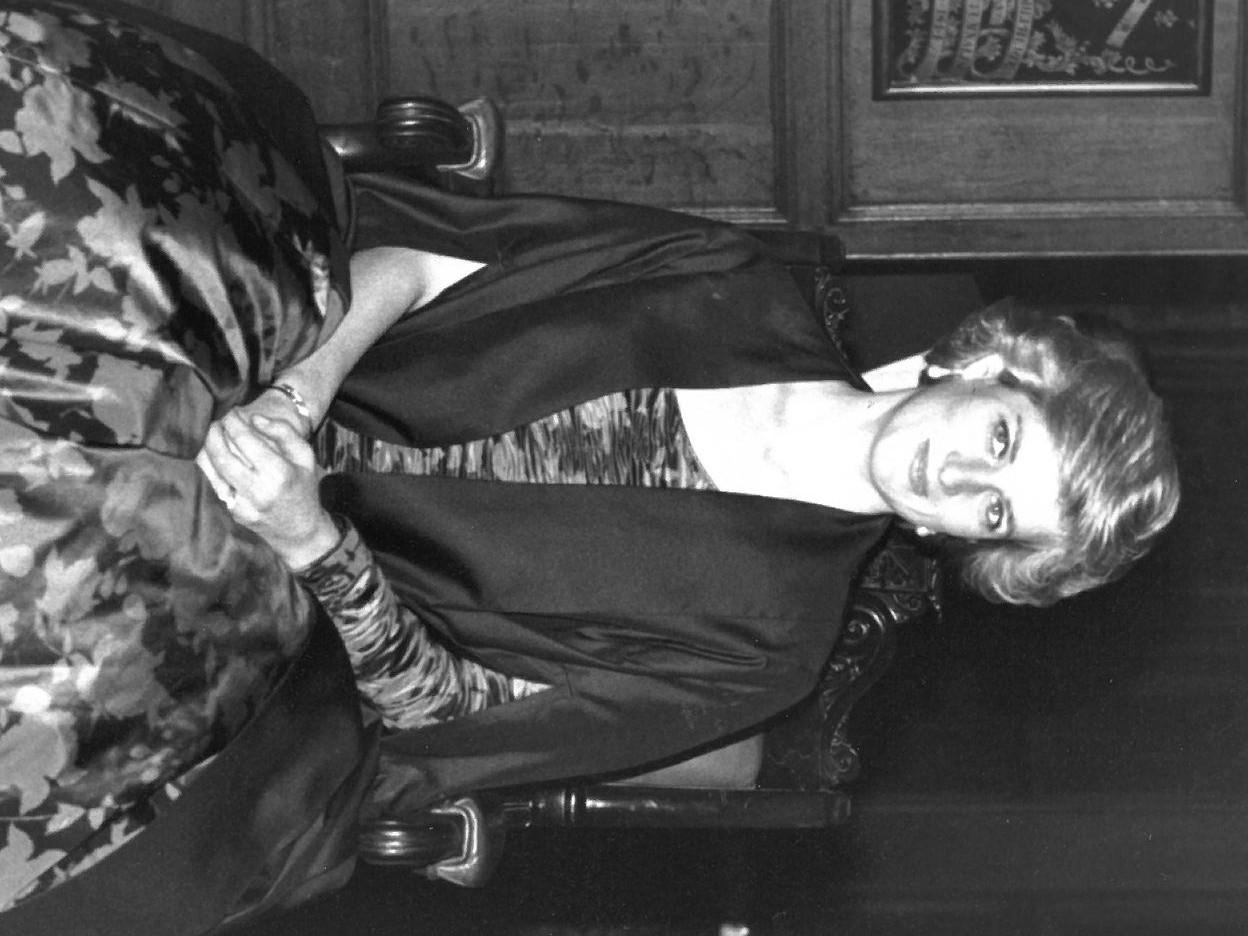
-
First wife of HM King Charles III (divorced)
HRH Diana, Princess of Wales was elected to the Bench in 1988. In 1990, she attended Special Mixed Dining Night and dined again at the Inn in 1992. Princess Diana died tragically after a car crash in 1997 at the age of thirty-six. After her death, a scholarship was created in her honour entitled ‘The Diana, Princess of Wales Scholarship’.
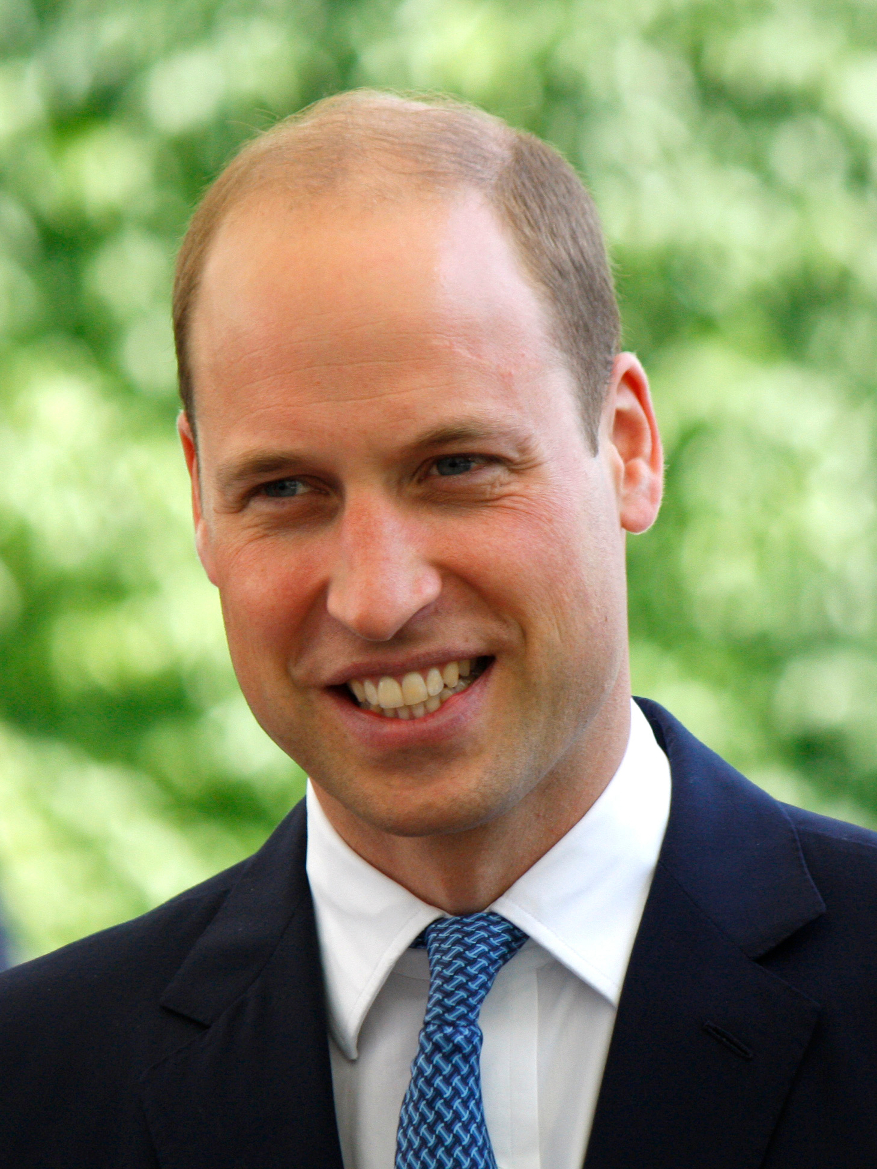
-
Eldest son of HM King Charles III, first in line to the throne
HRH Prince William of Wales, later the Duke of Cambridge and then Prince of Wales, was elected to the Bench in 2009. In 2011, in acknowledgement of the Inn’s relationship with the Prince and as wedding present to him and Duchess of Cambridge, two scholarships were created entitled ‘The Duke and Duchess of Cambridge Scholarship’. In 2015, the Duke and Duchess attended an event in a private capacity in order to meet students awarded the Queen Mother Scholarship, the Diana, Princess of Wales Scholarship and Duke and Duchess of Cambridge Scholarship. In 2017, the Duke of Cambridge attended afternoon tea to meet with scholars.
© 360b / Shutterstock.com